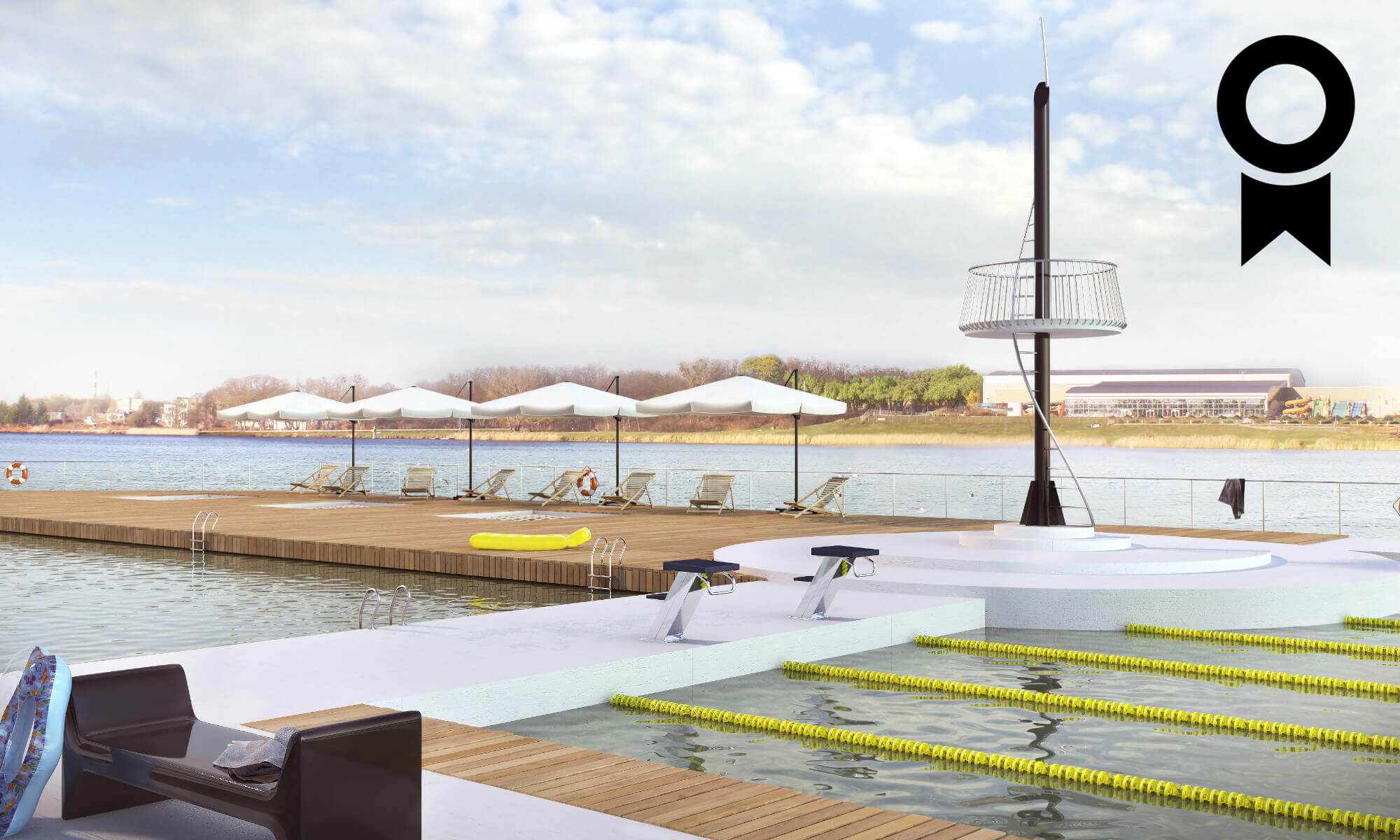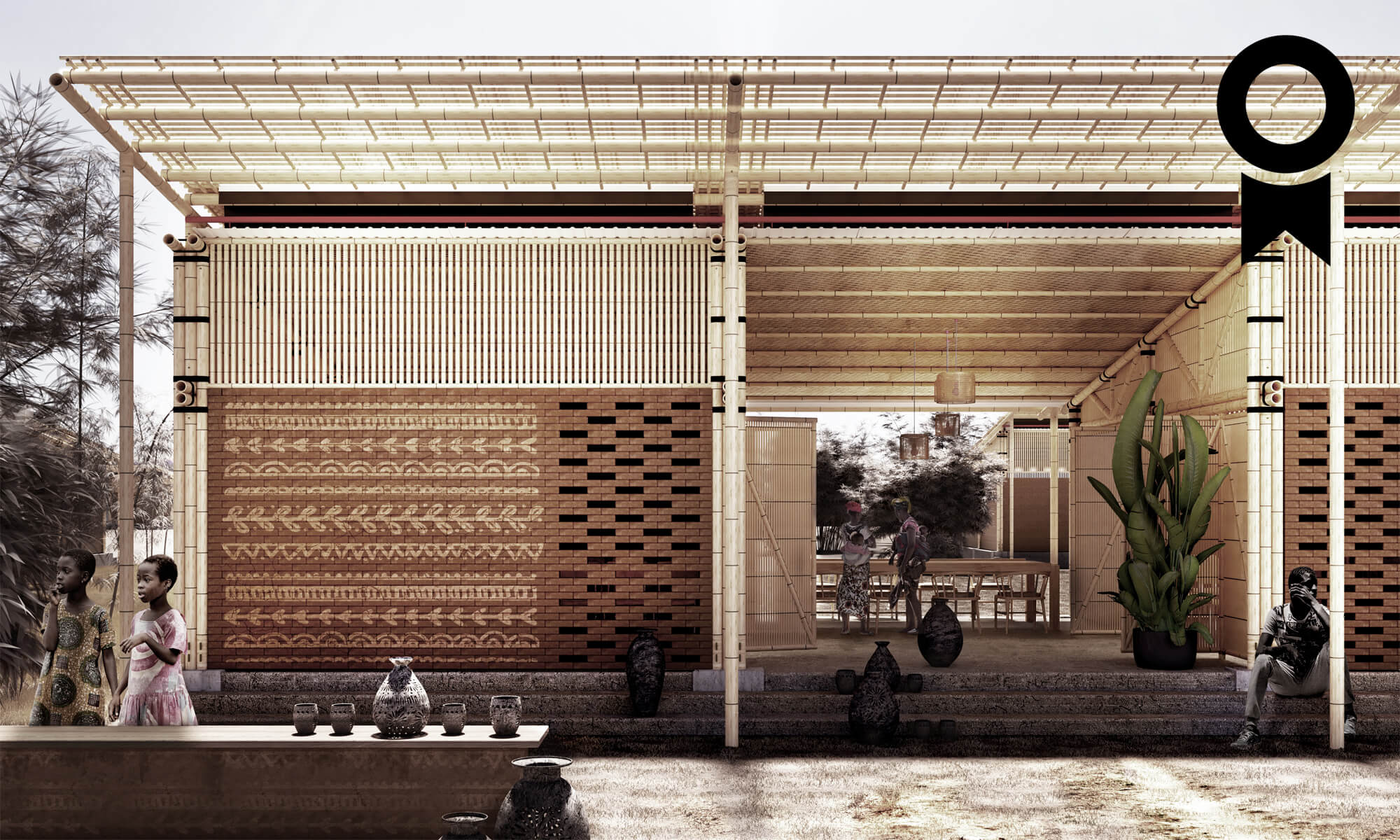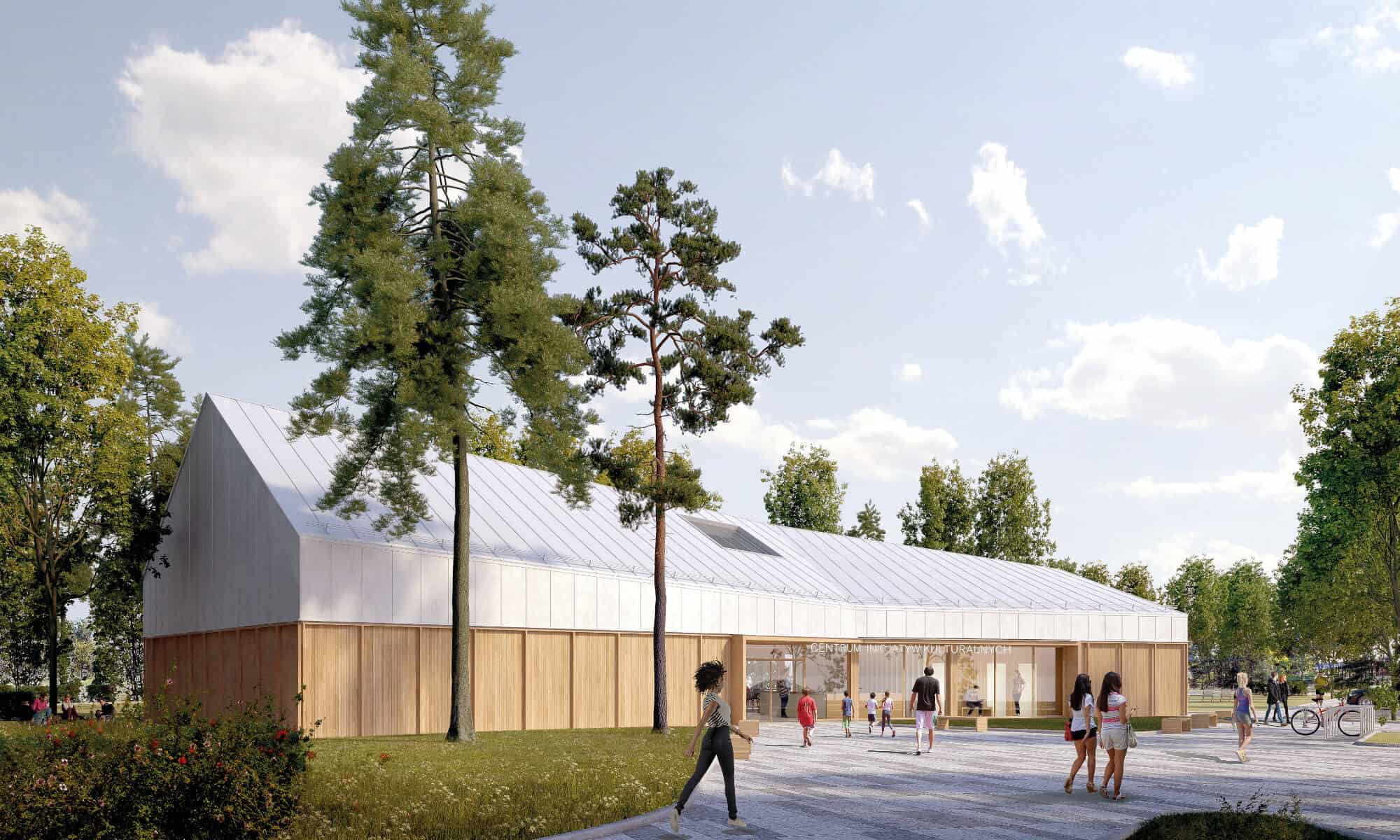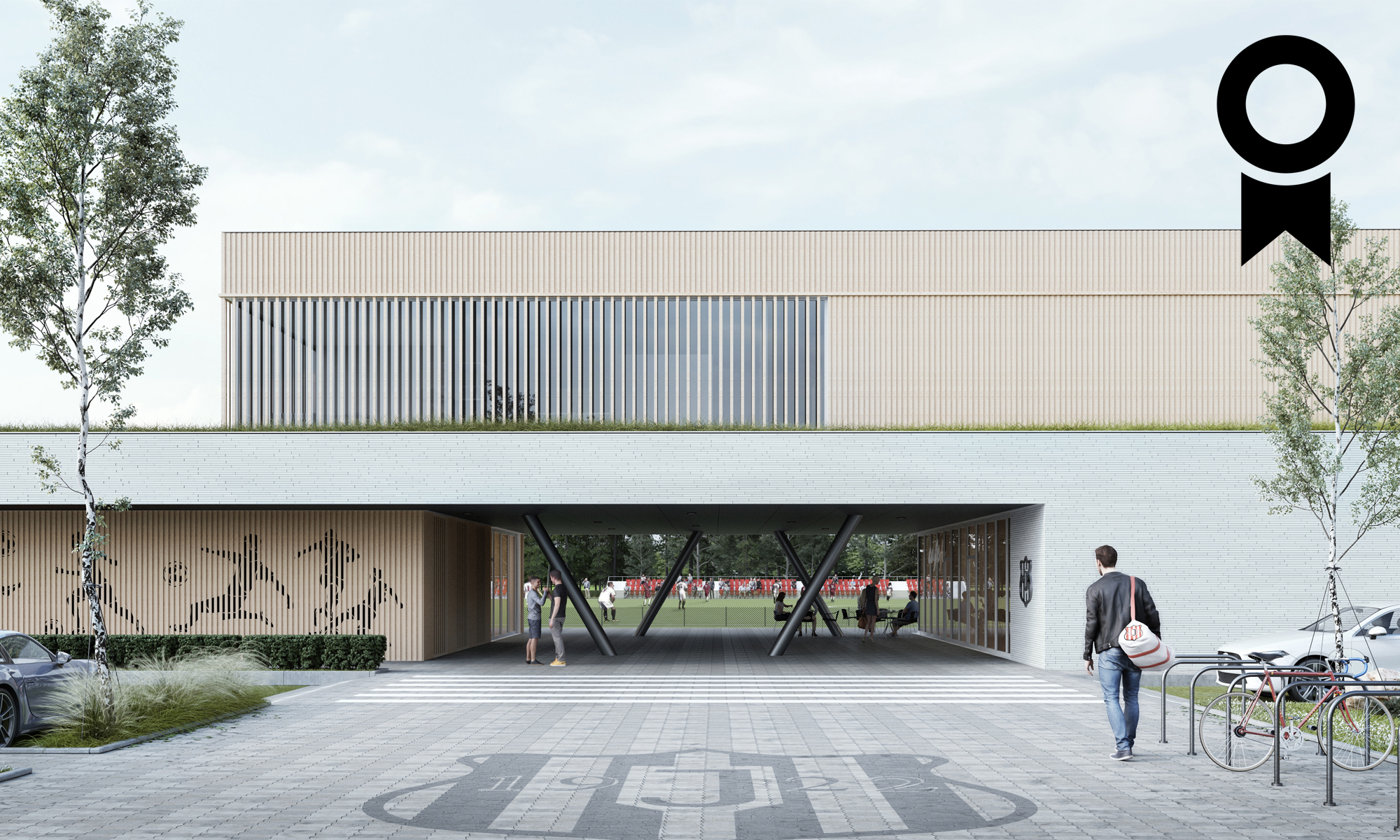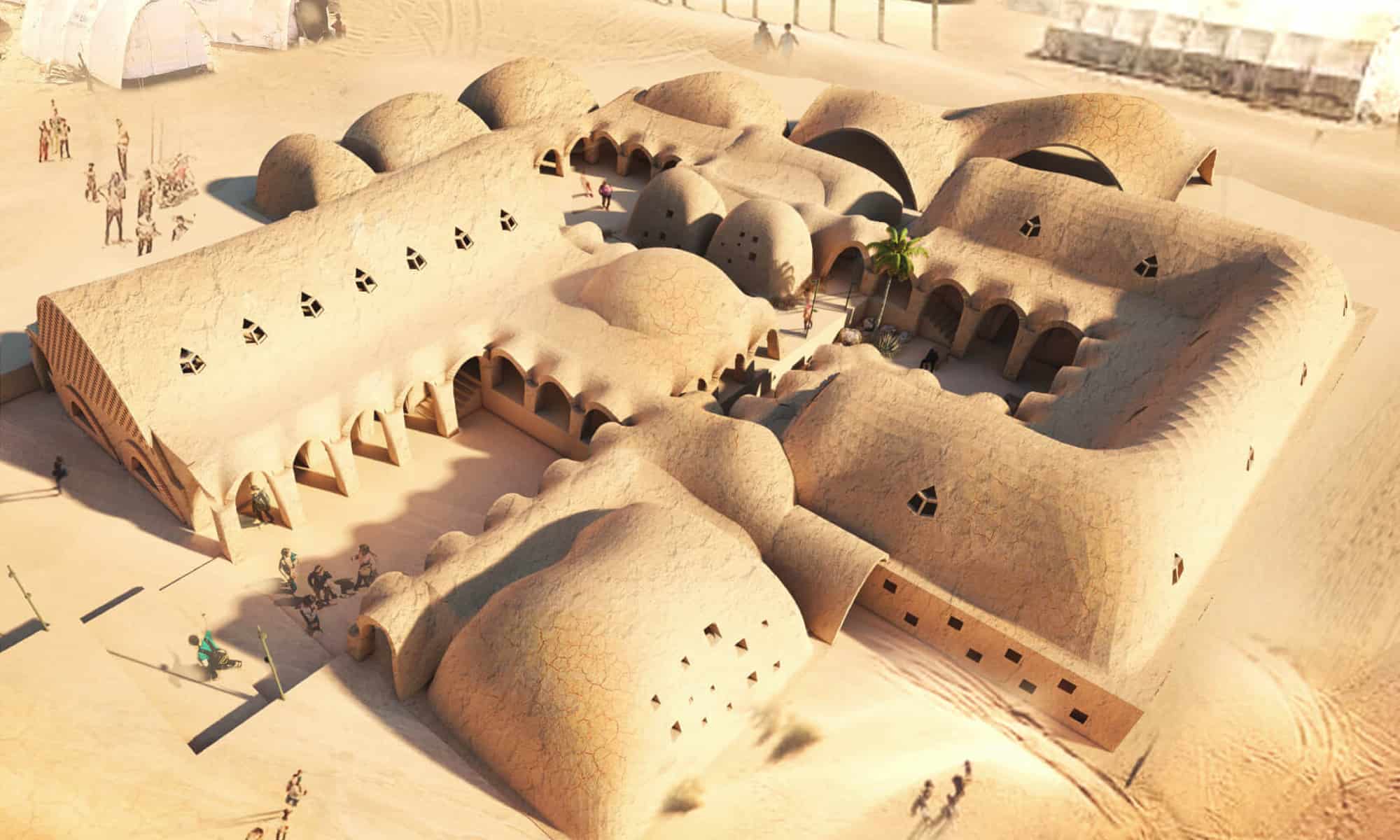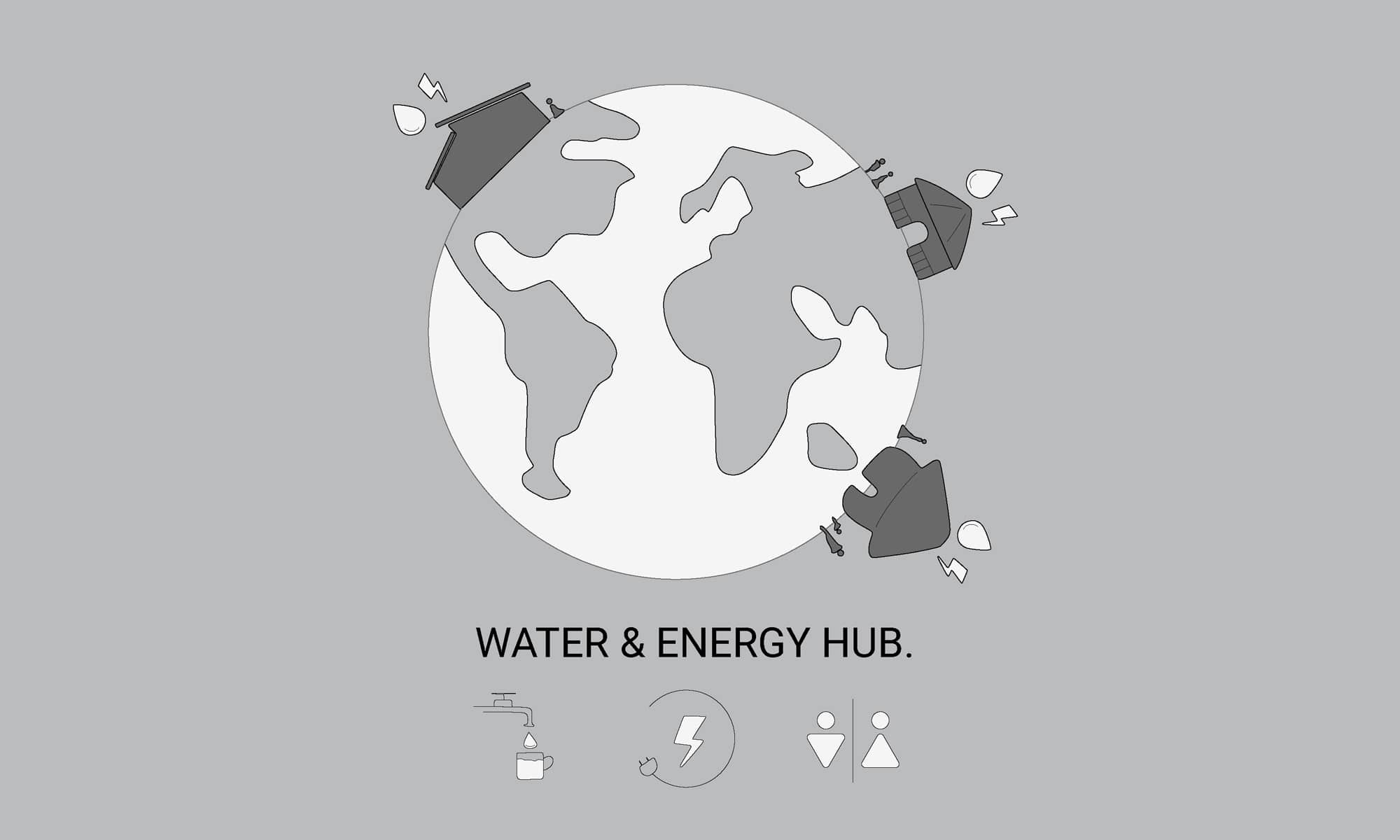
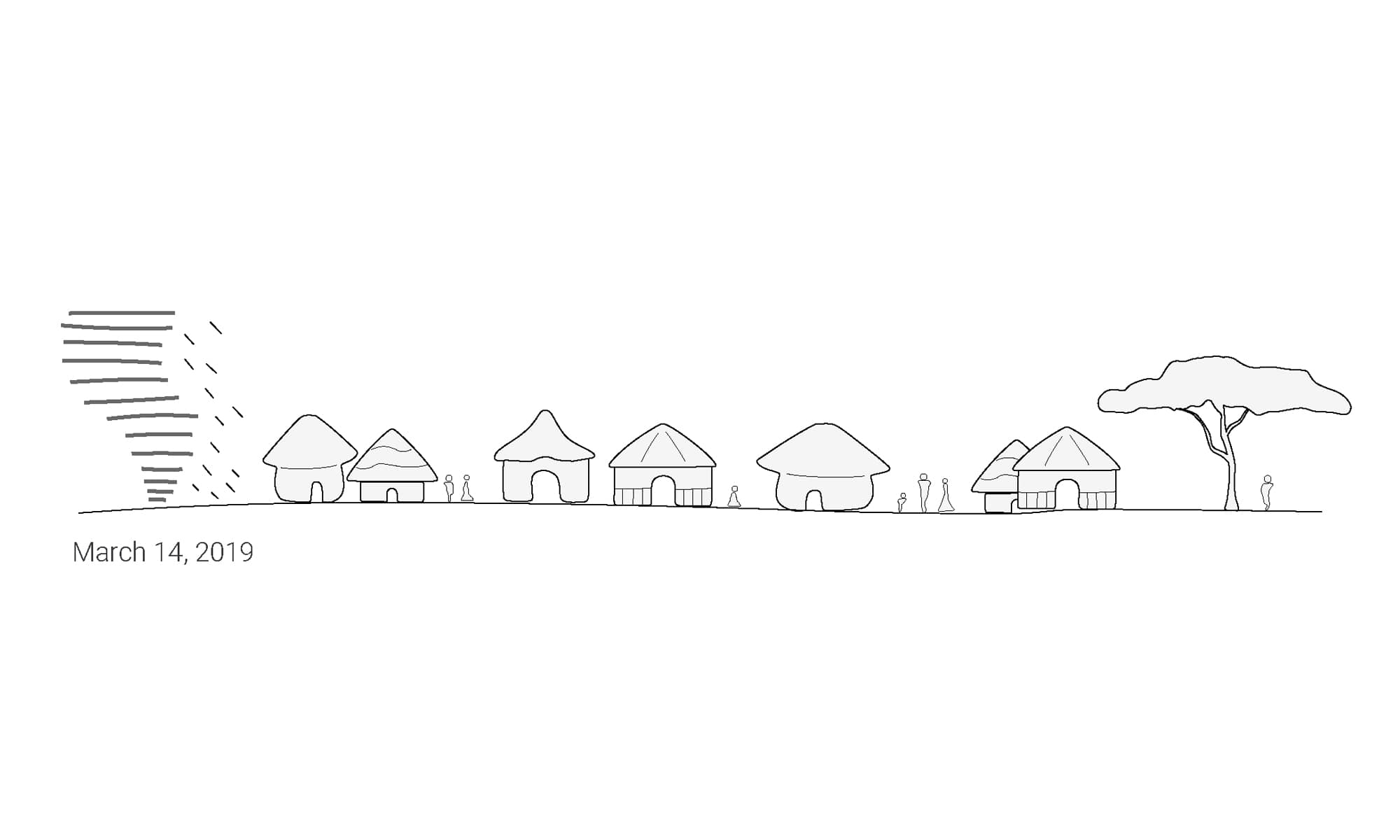
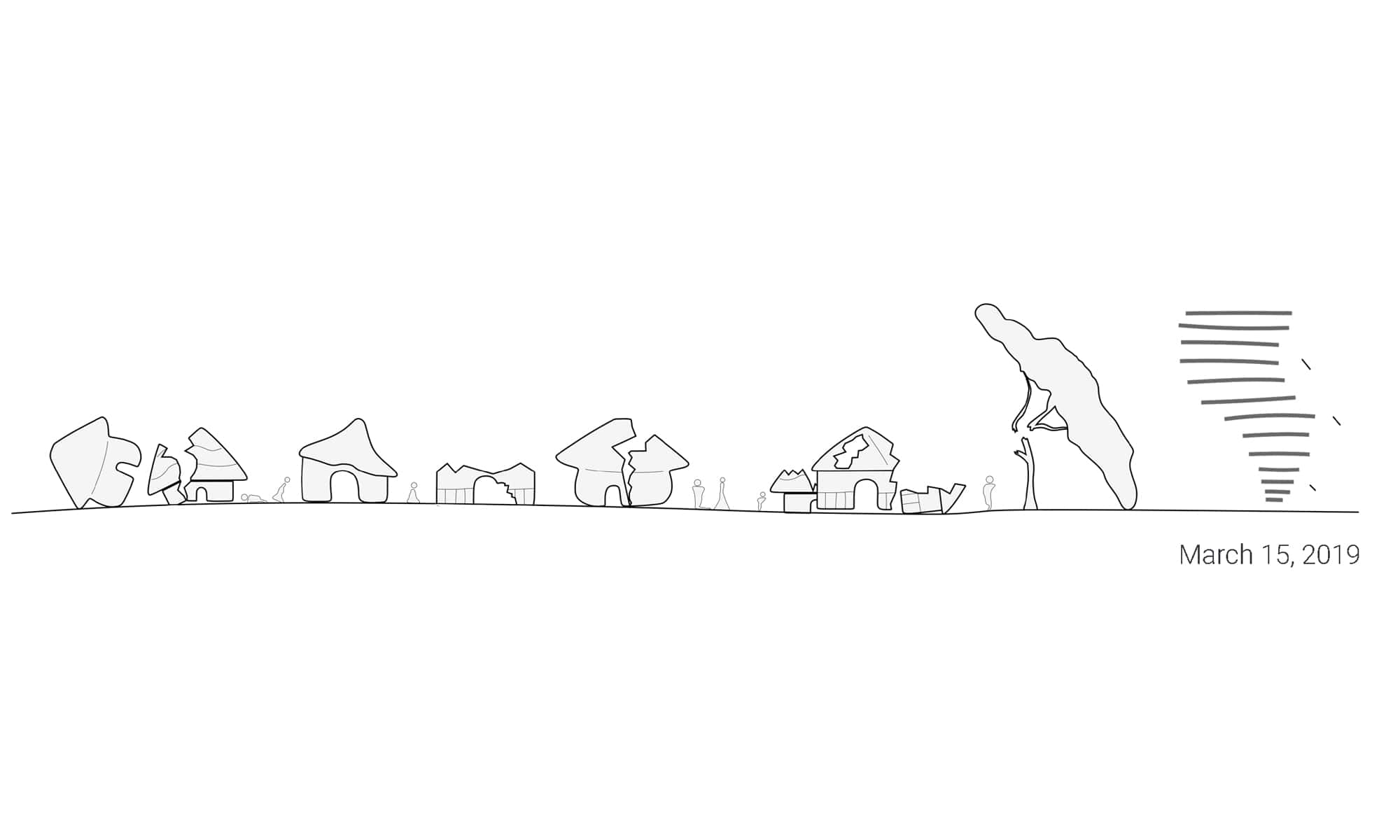
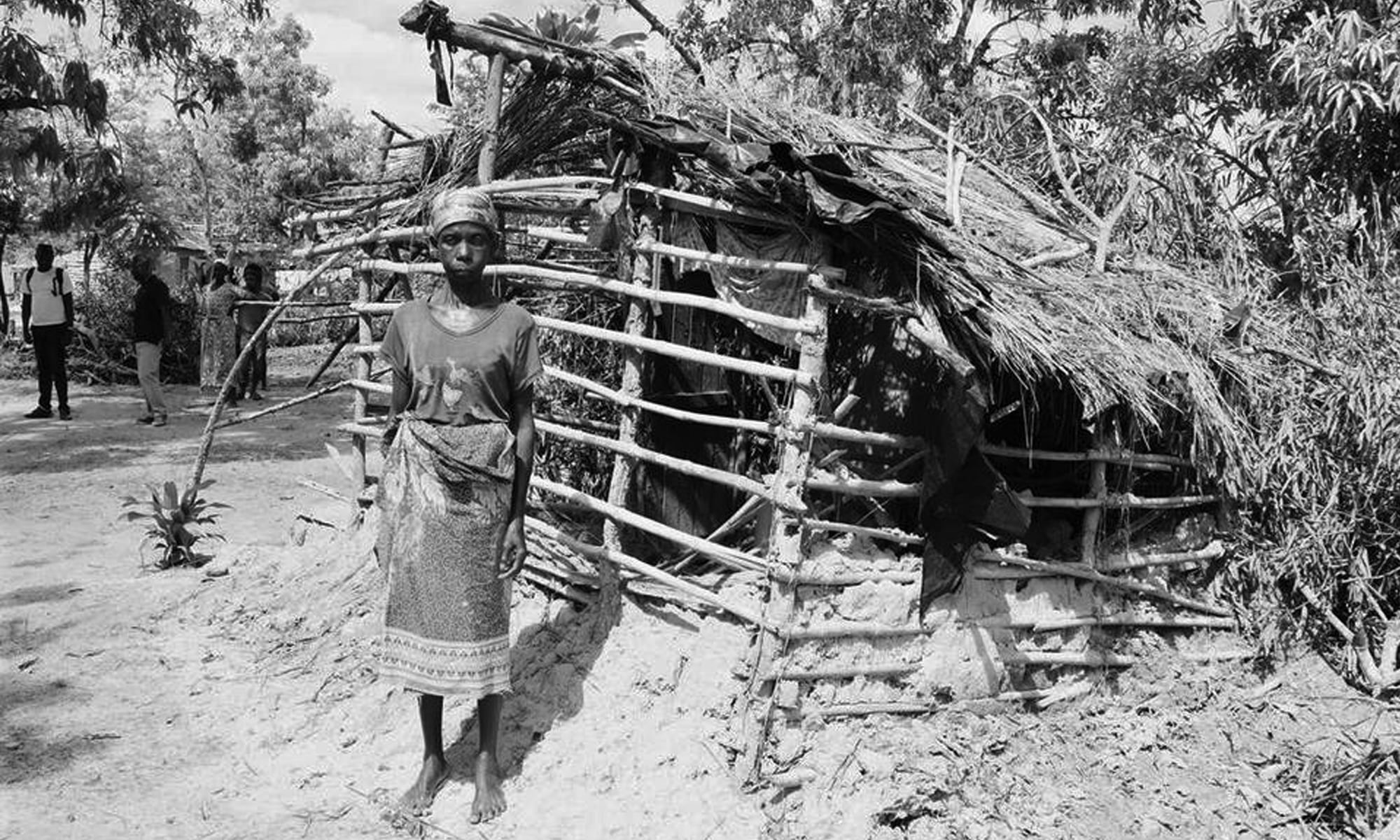
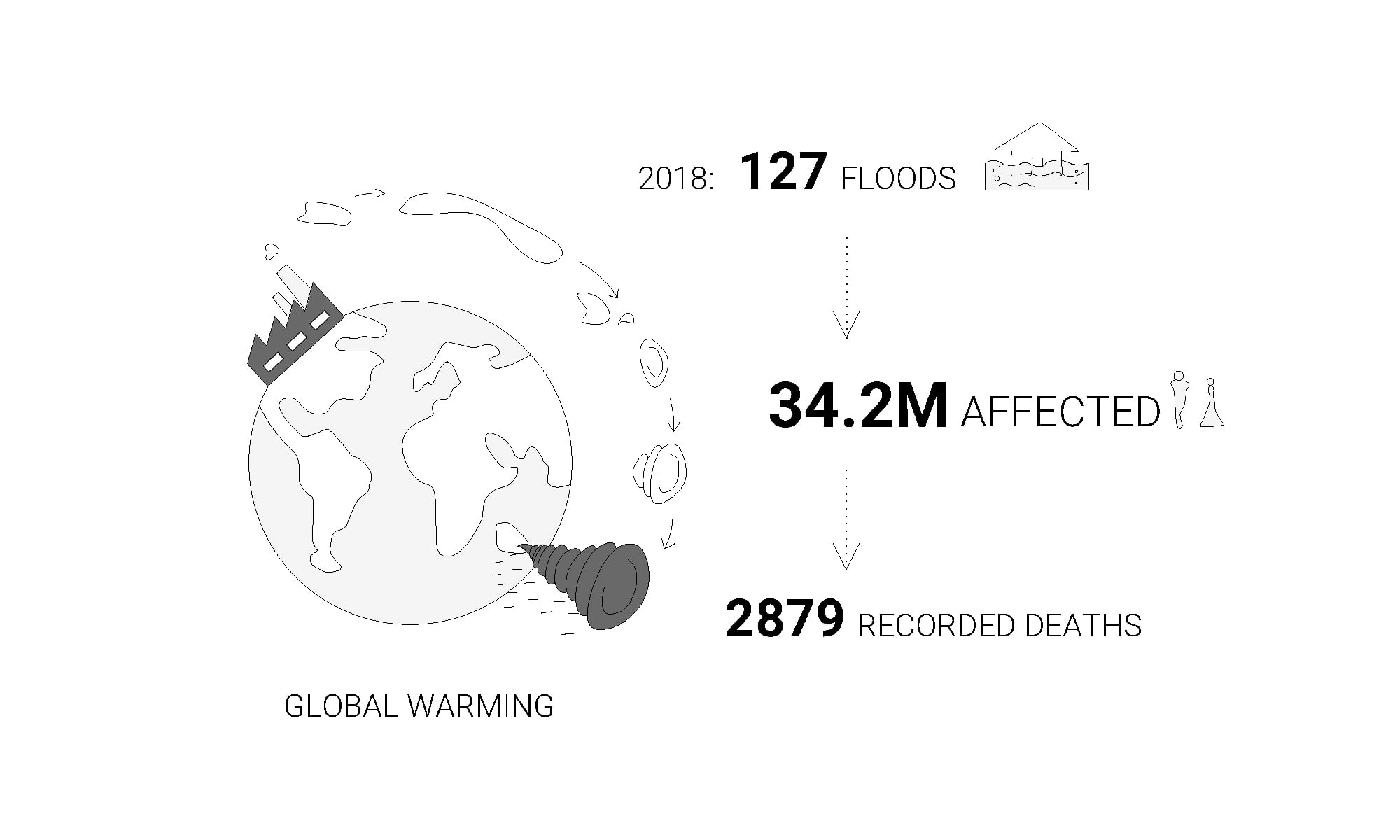
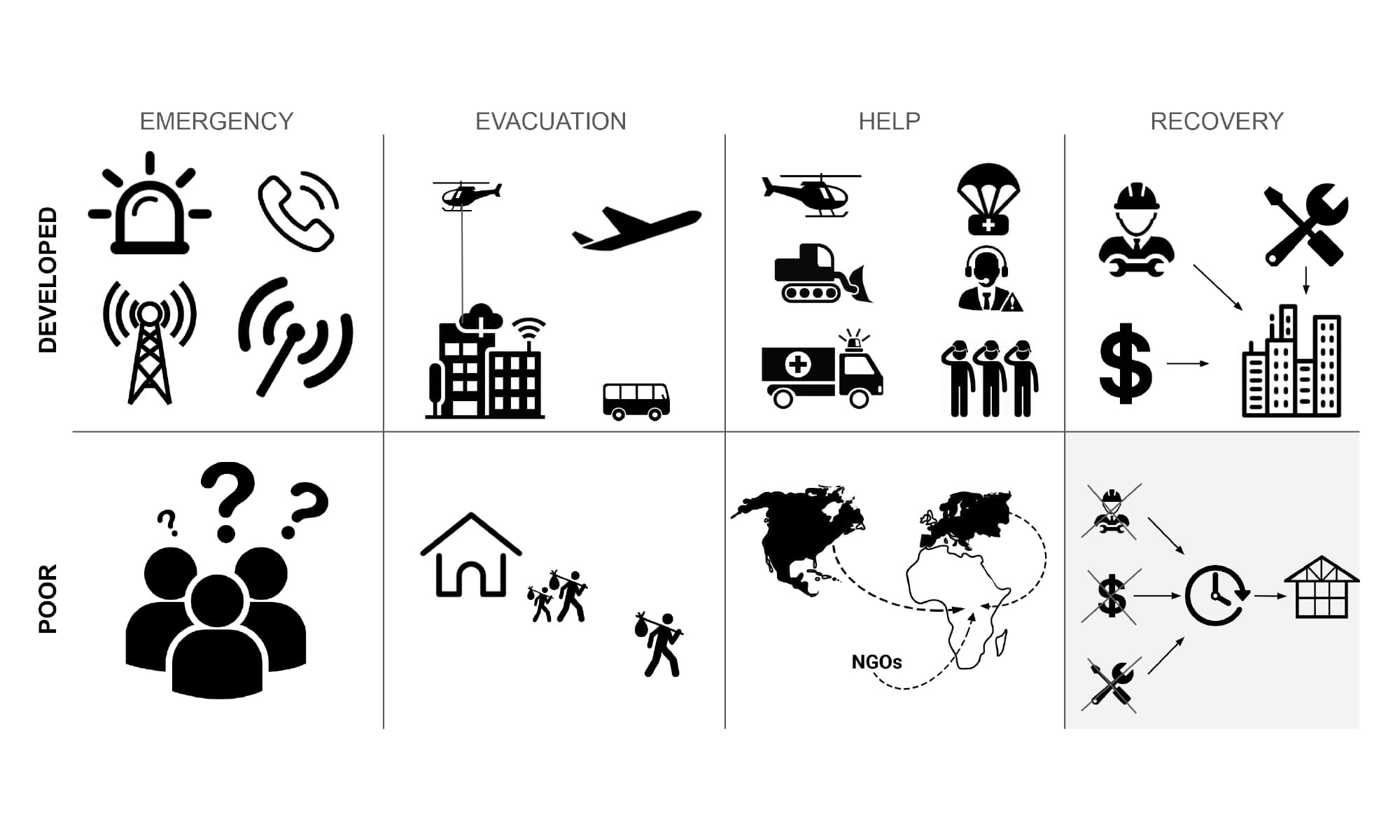
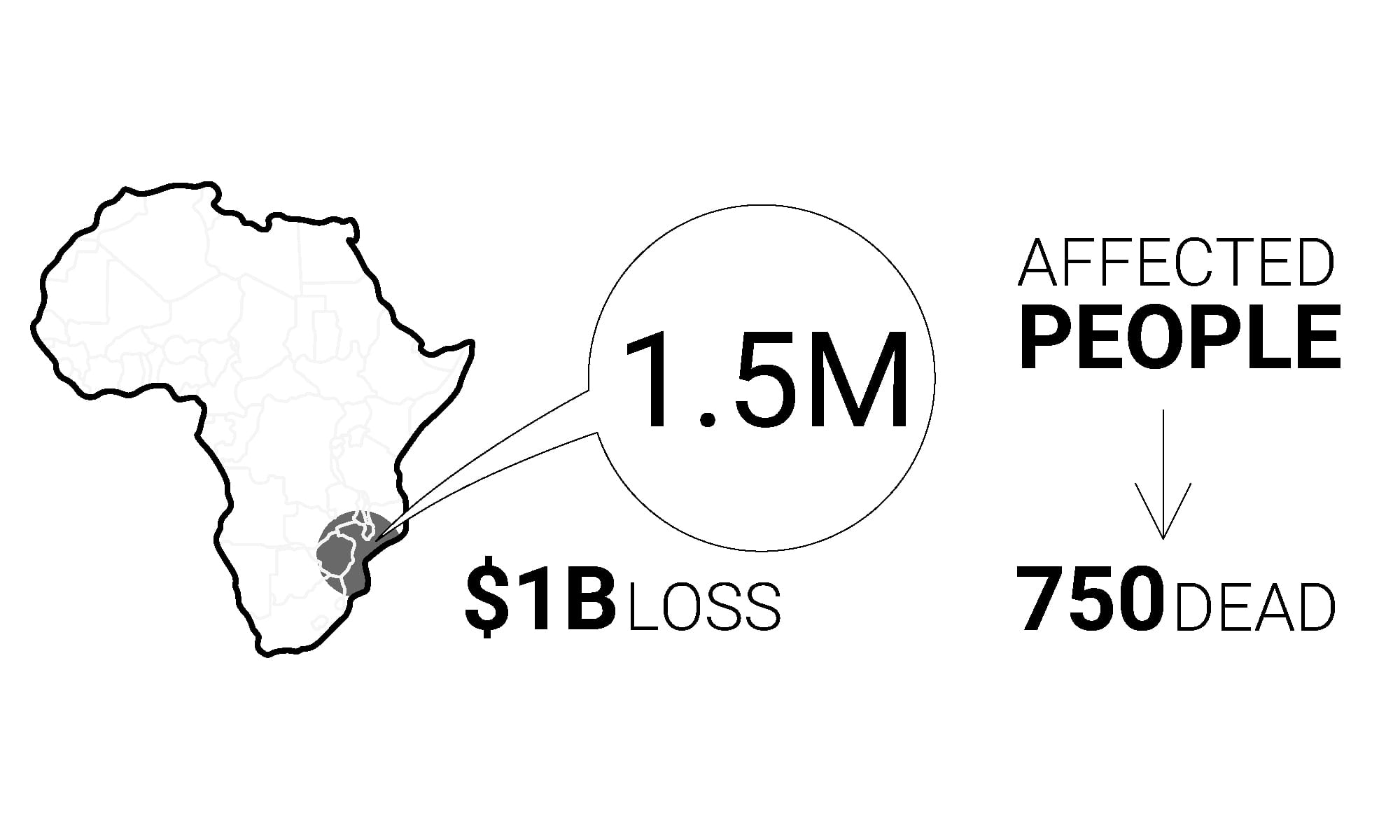
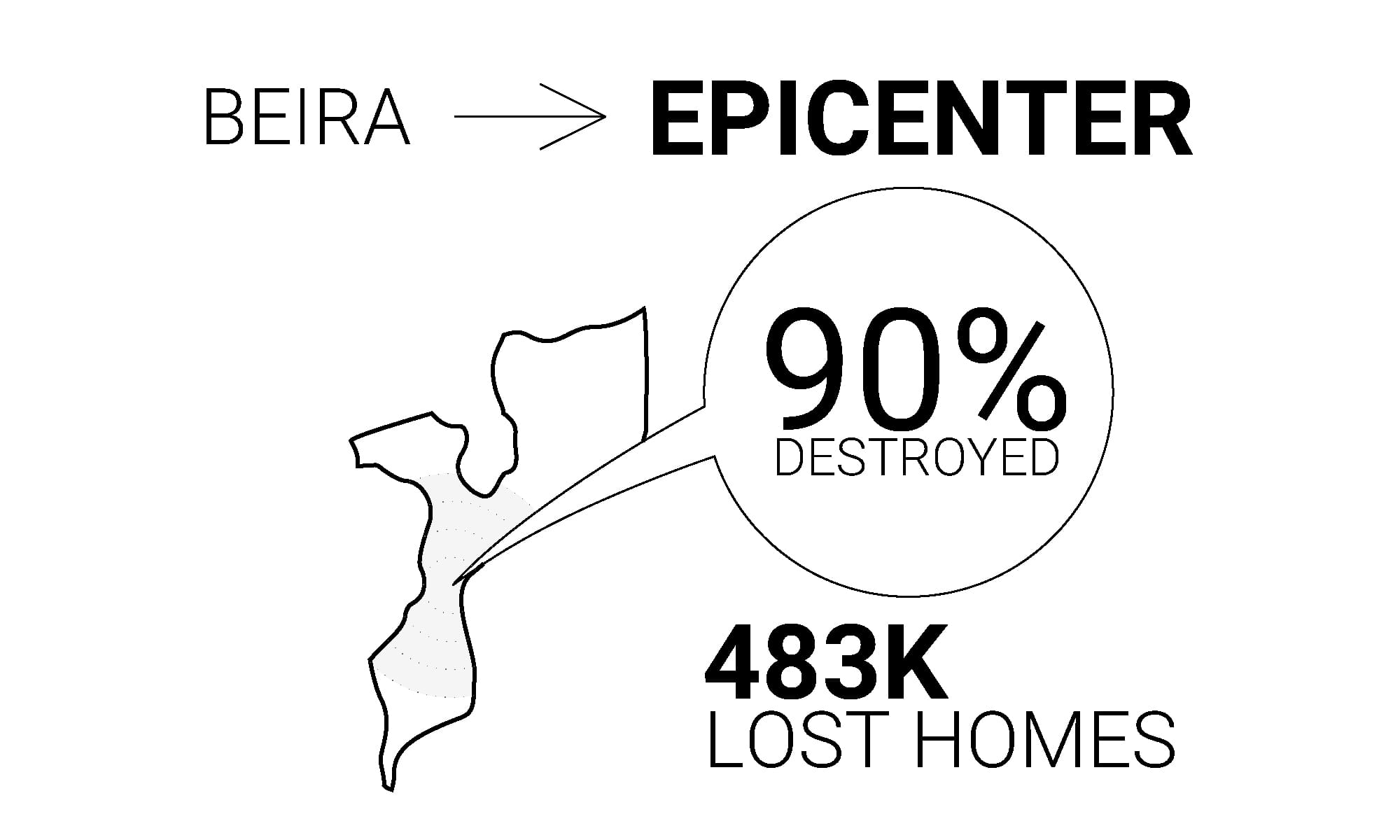
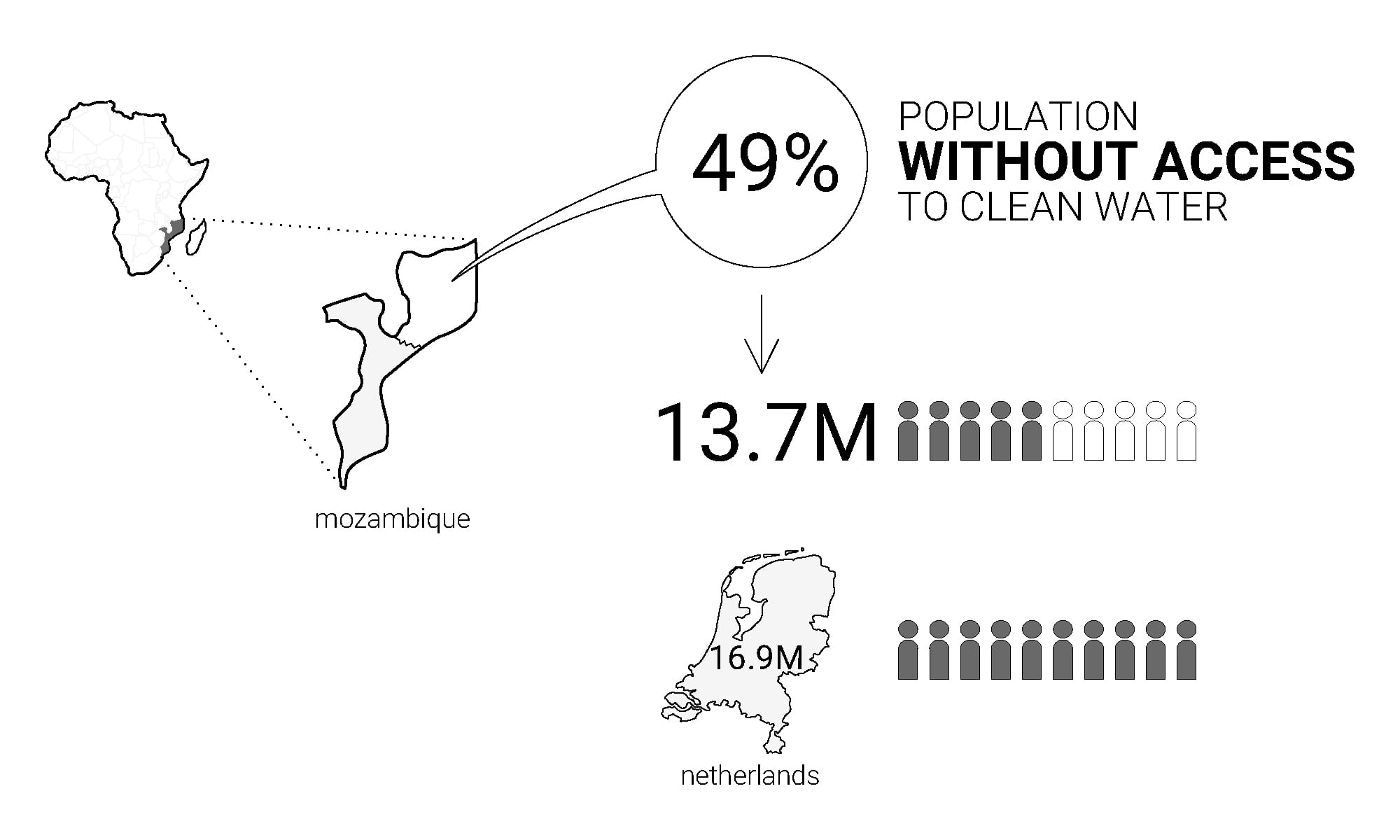
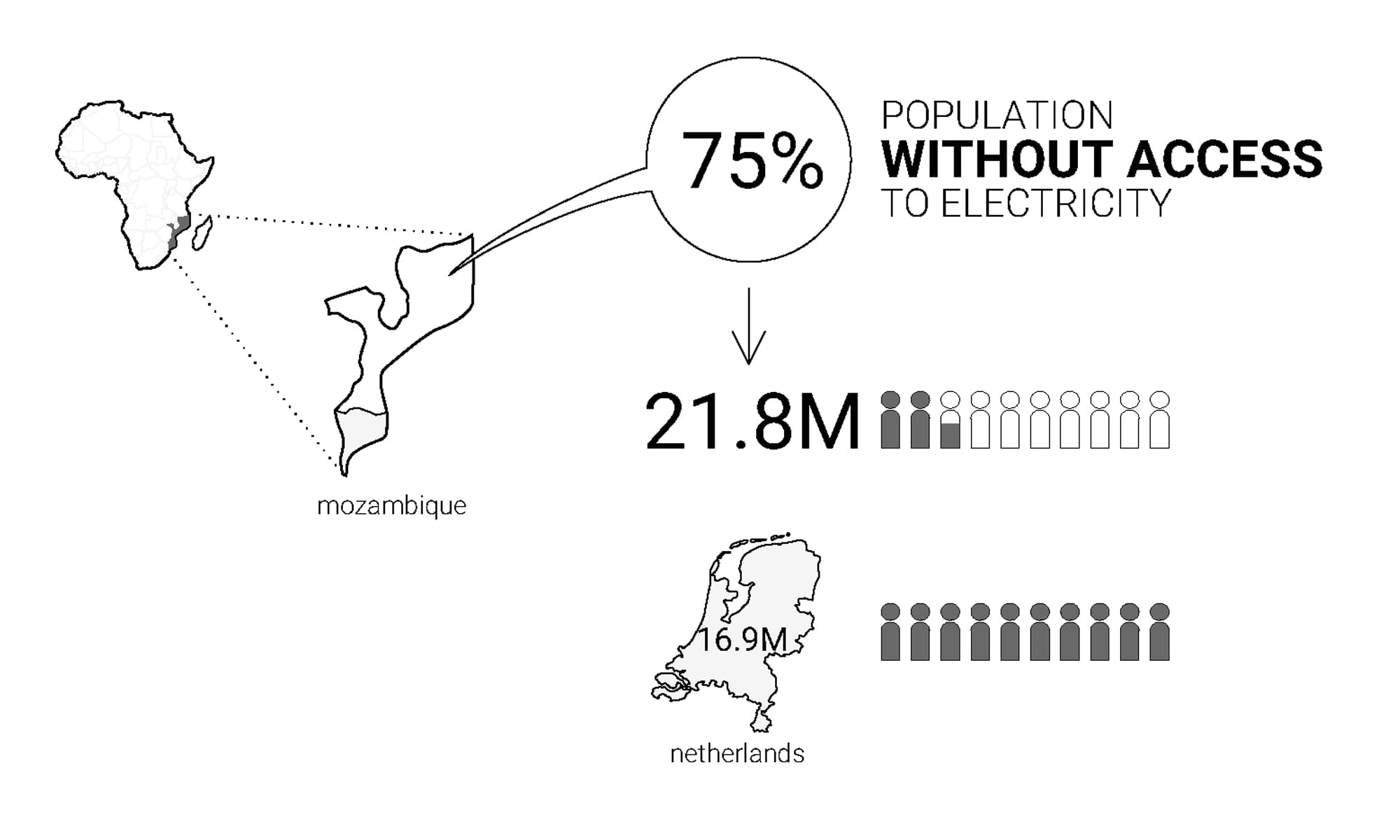
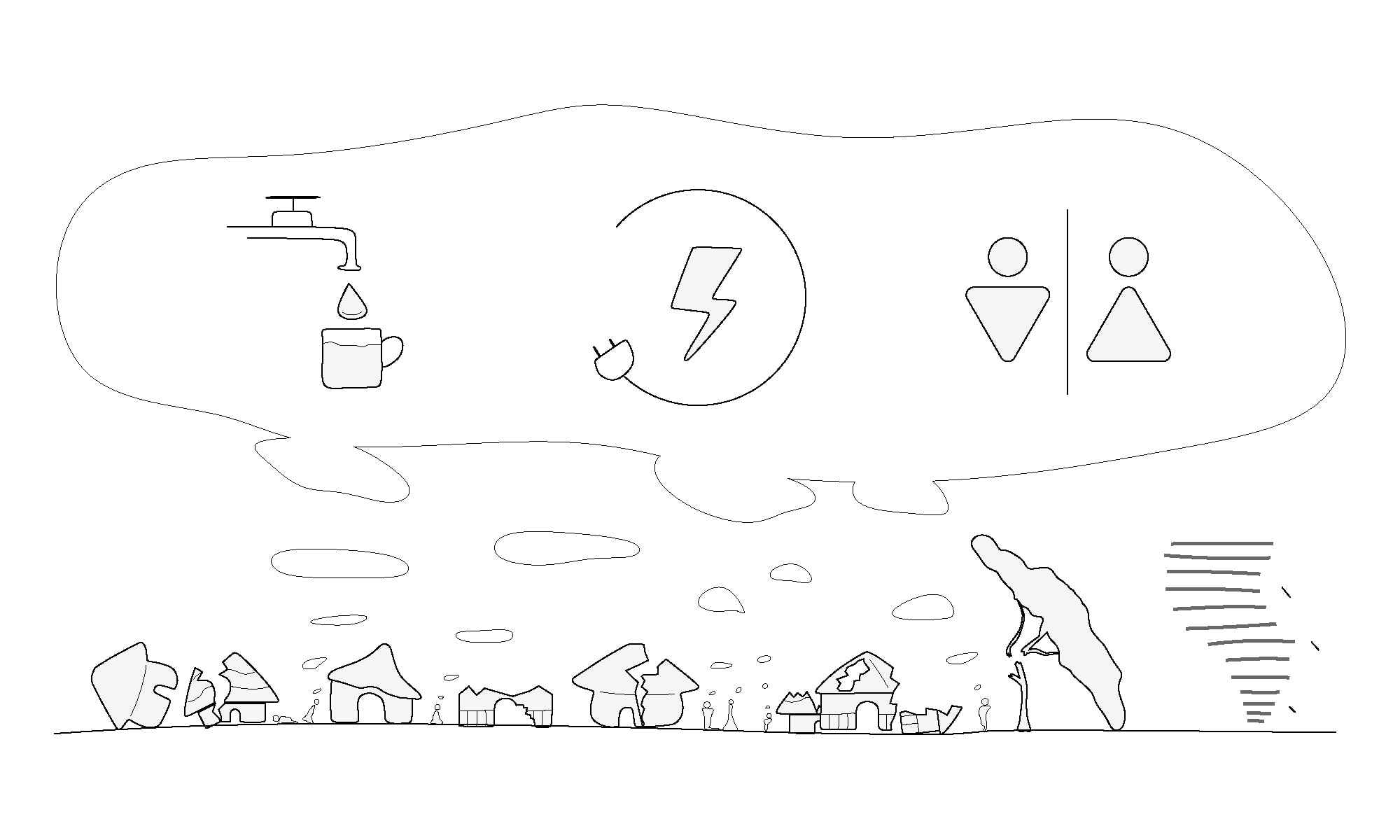

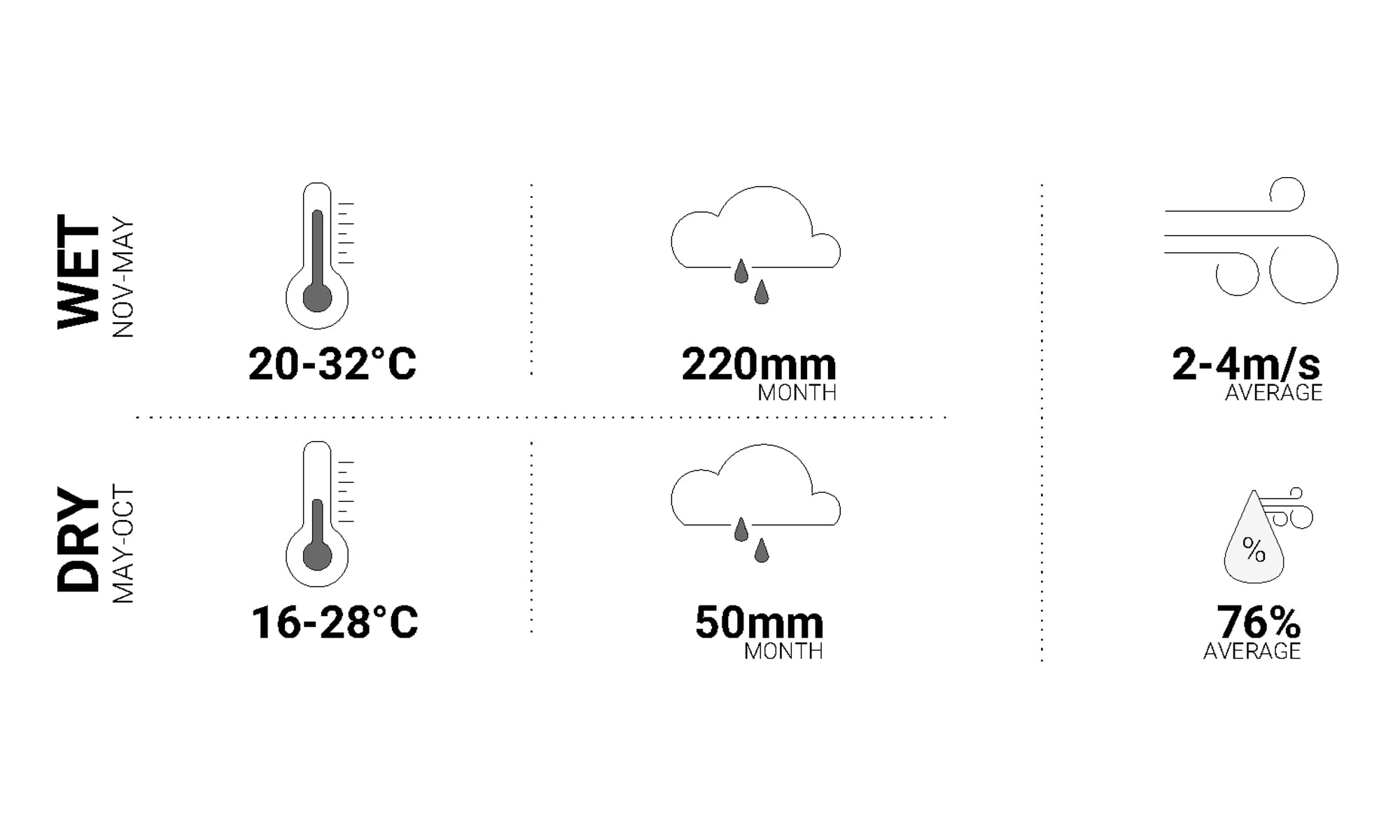
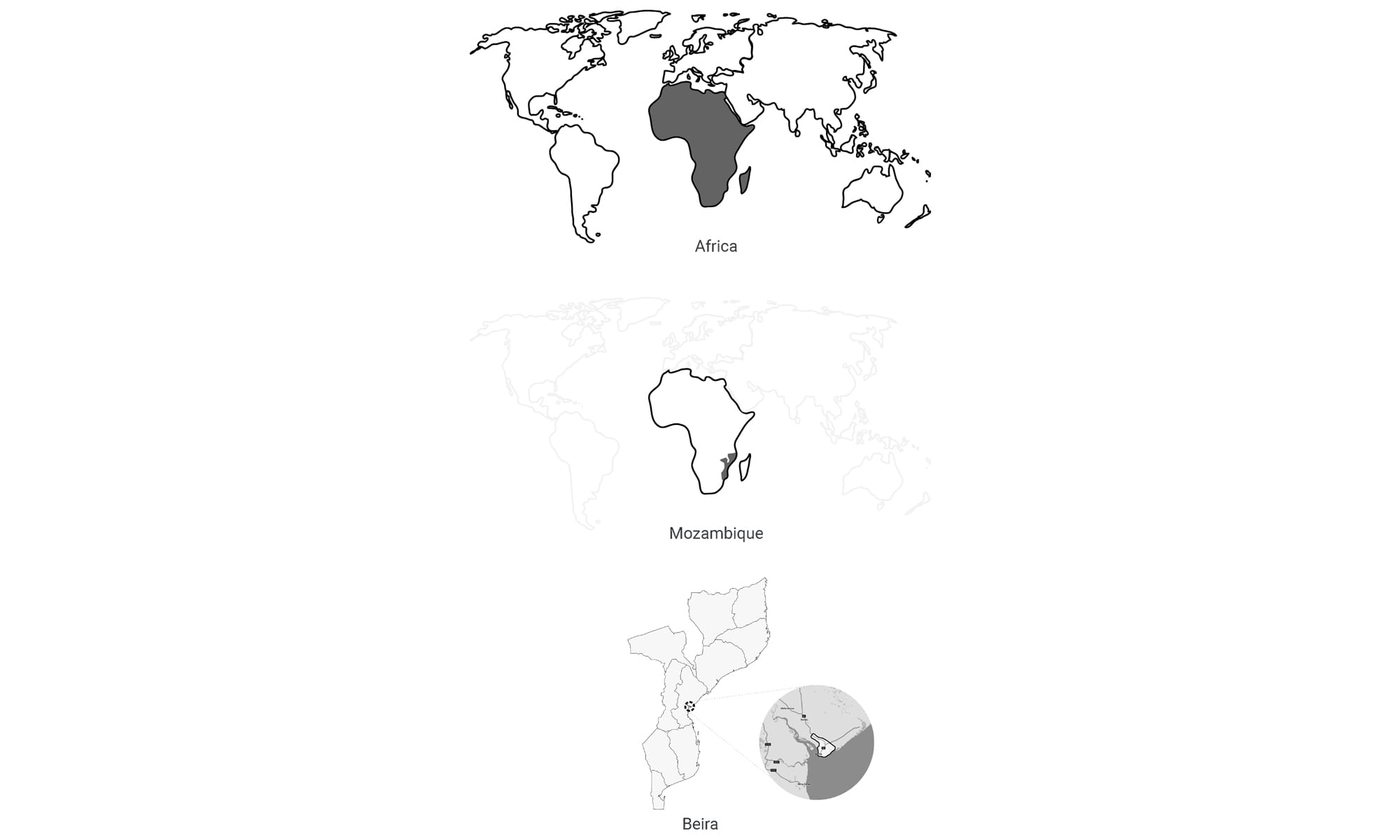
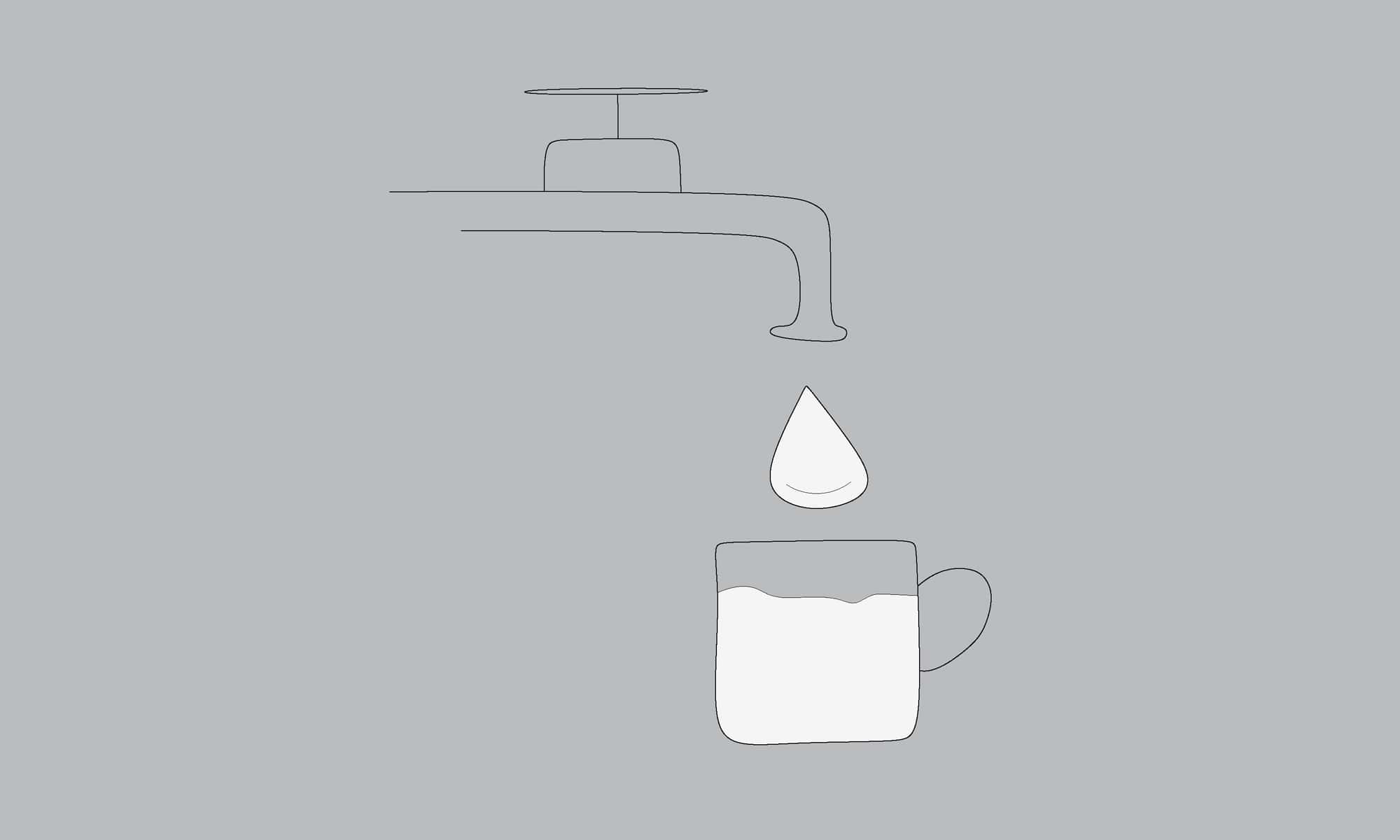
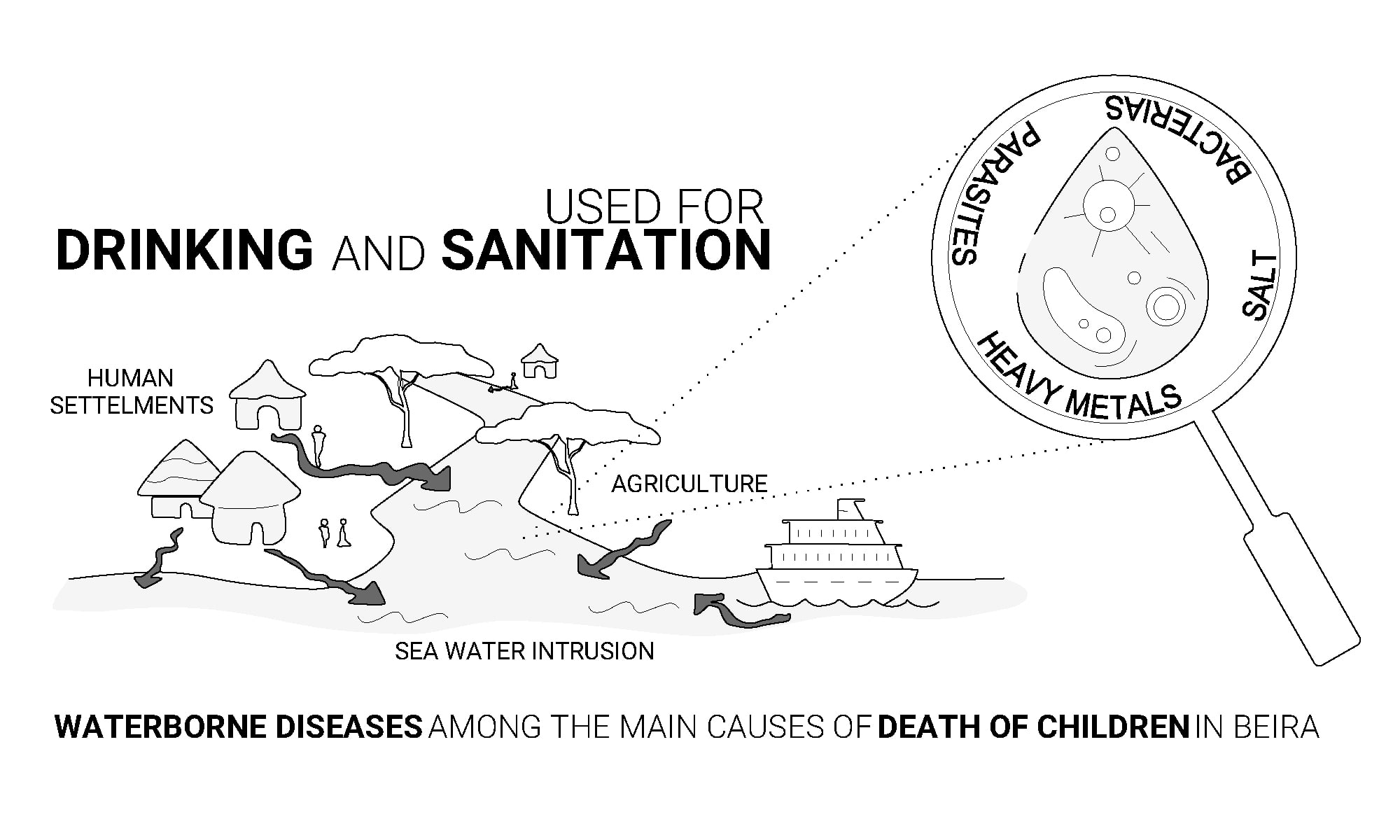
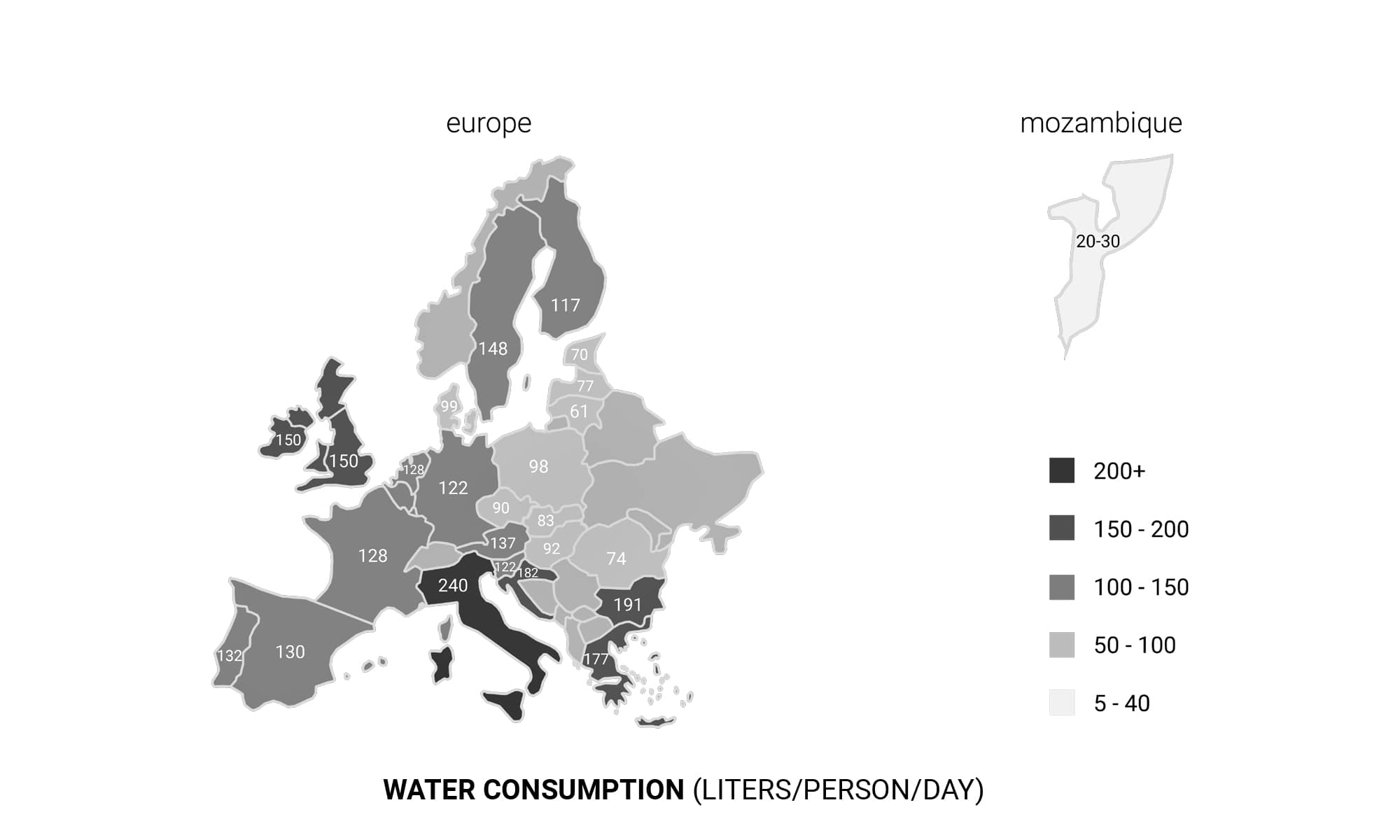
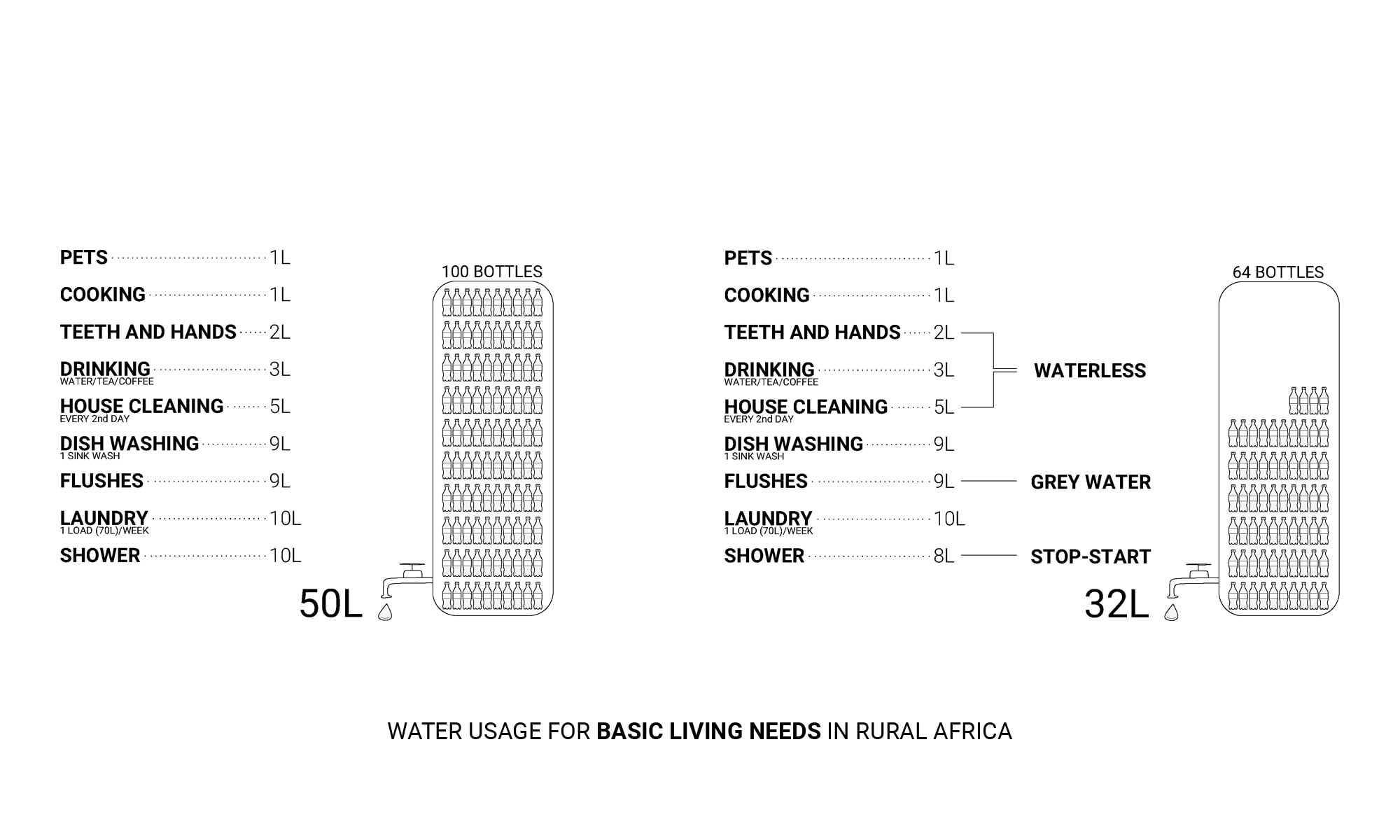
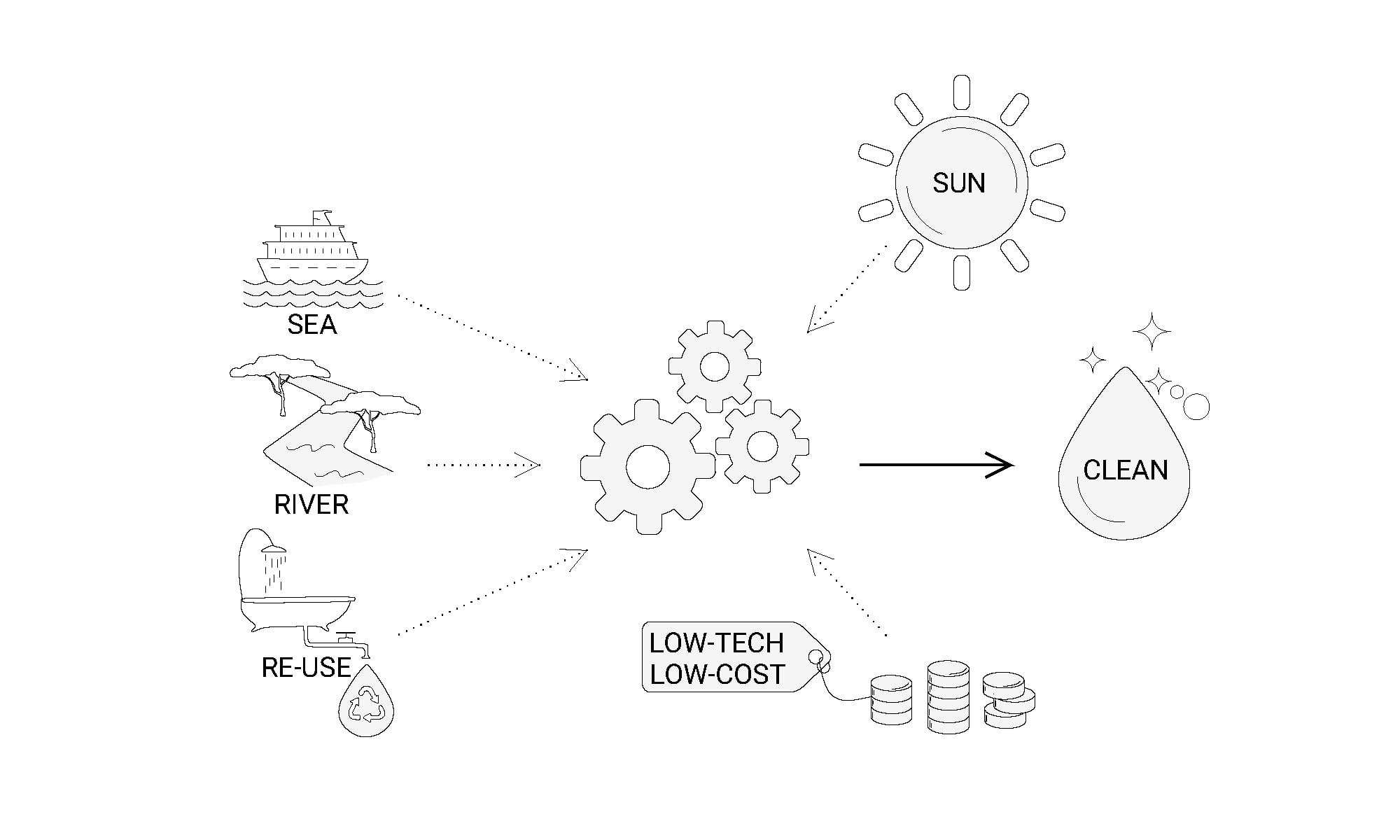
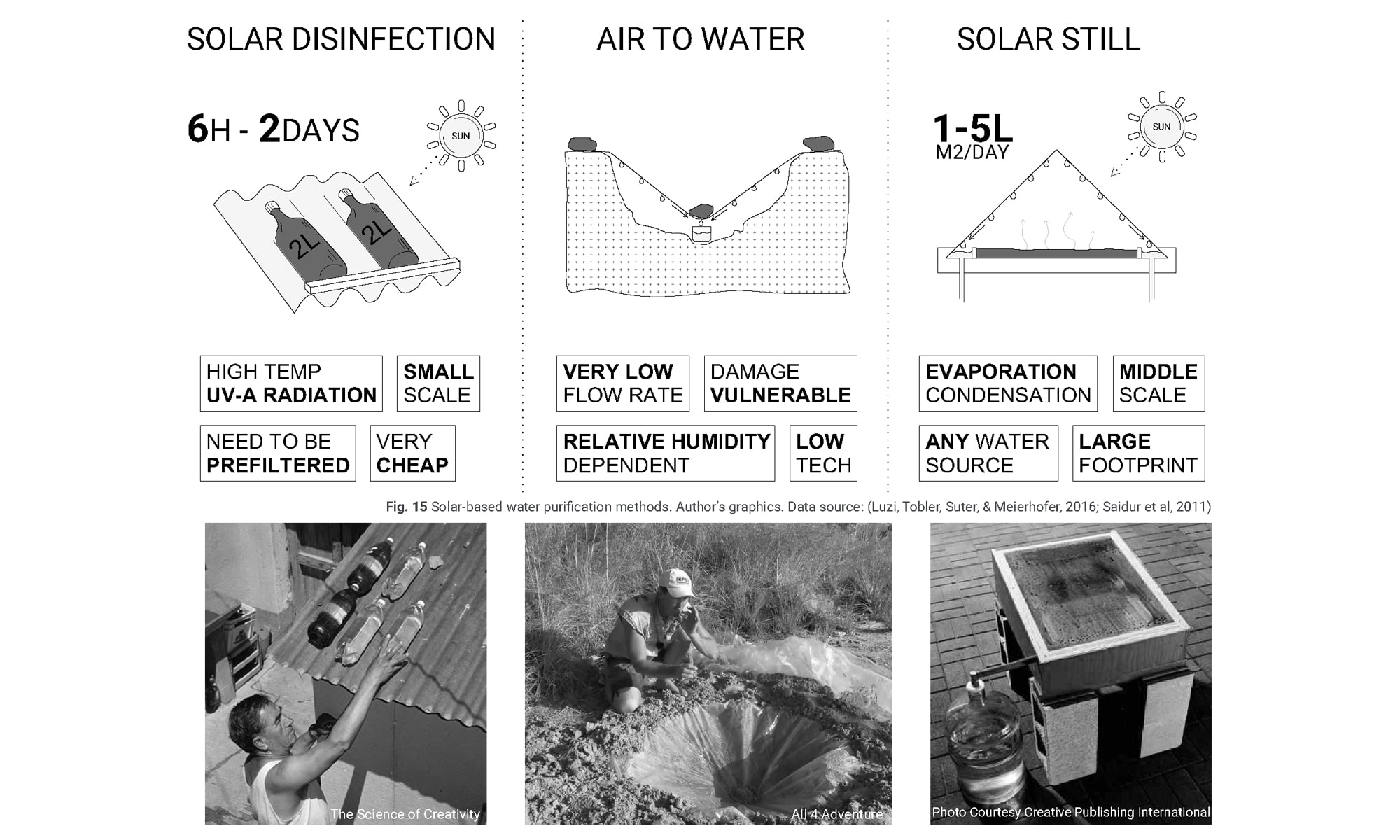
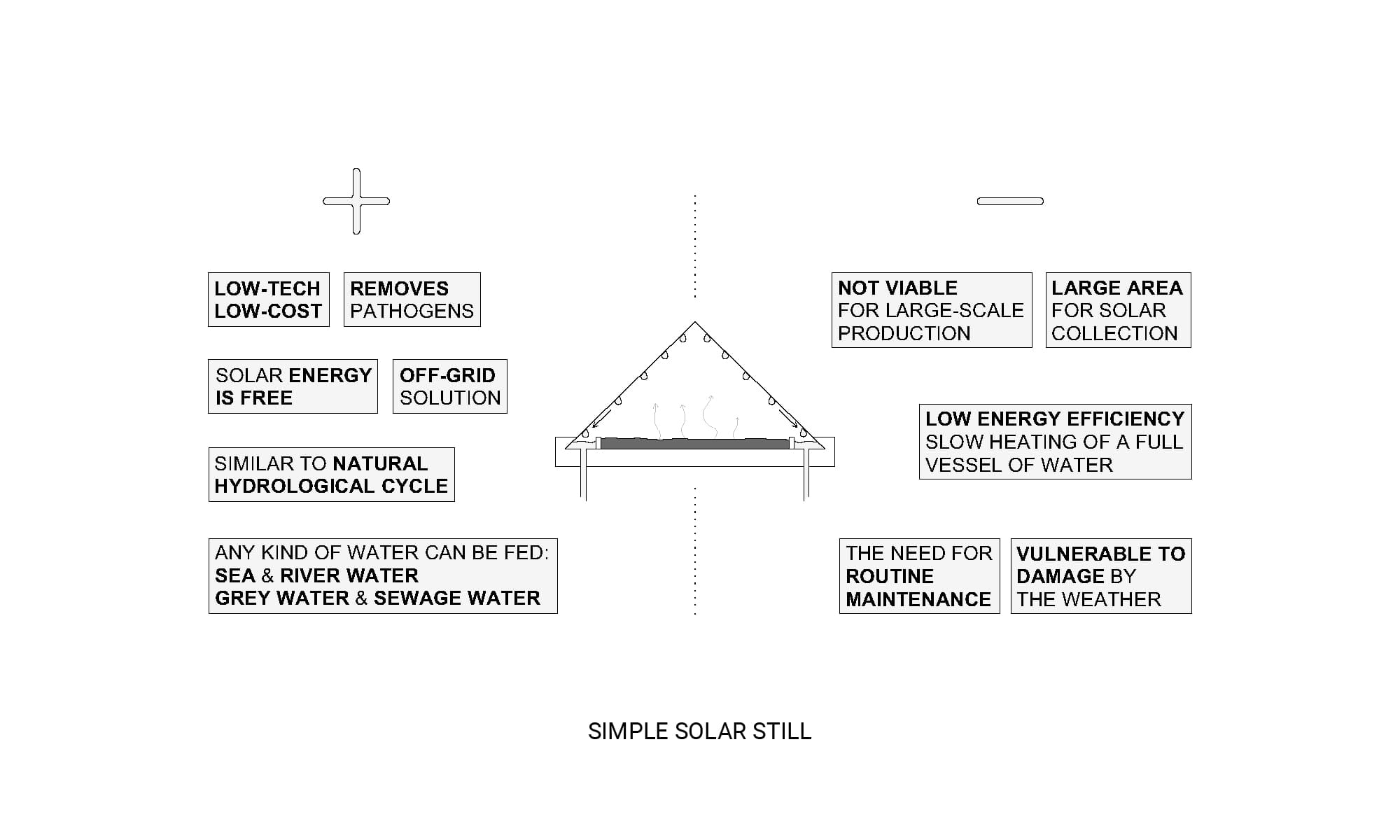
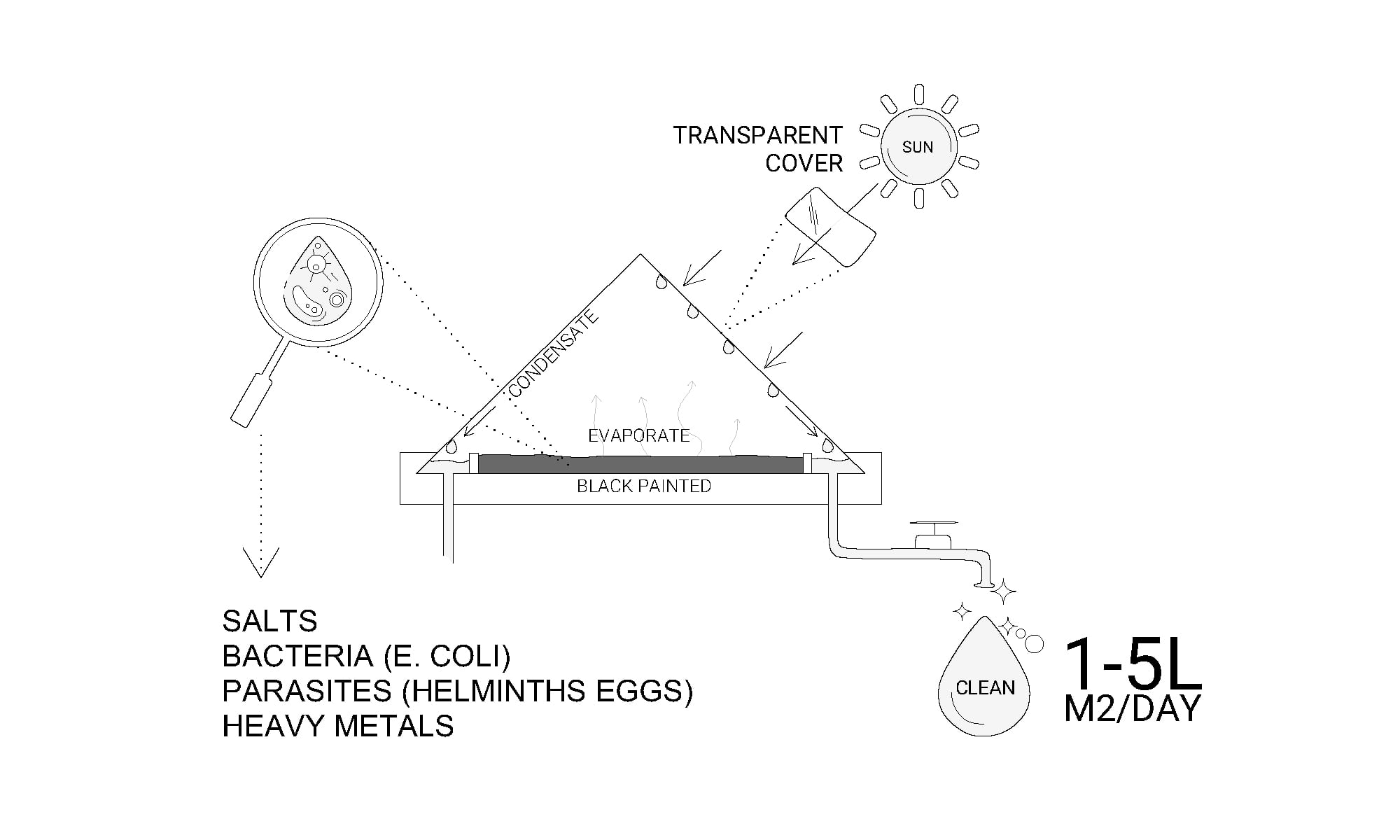
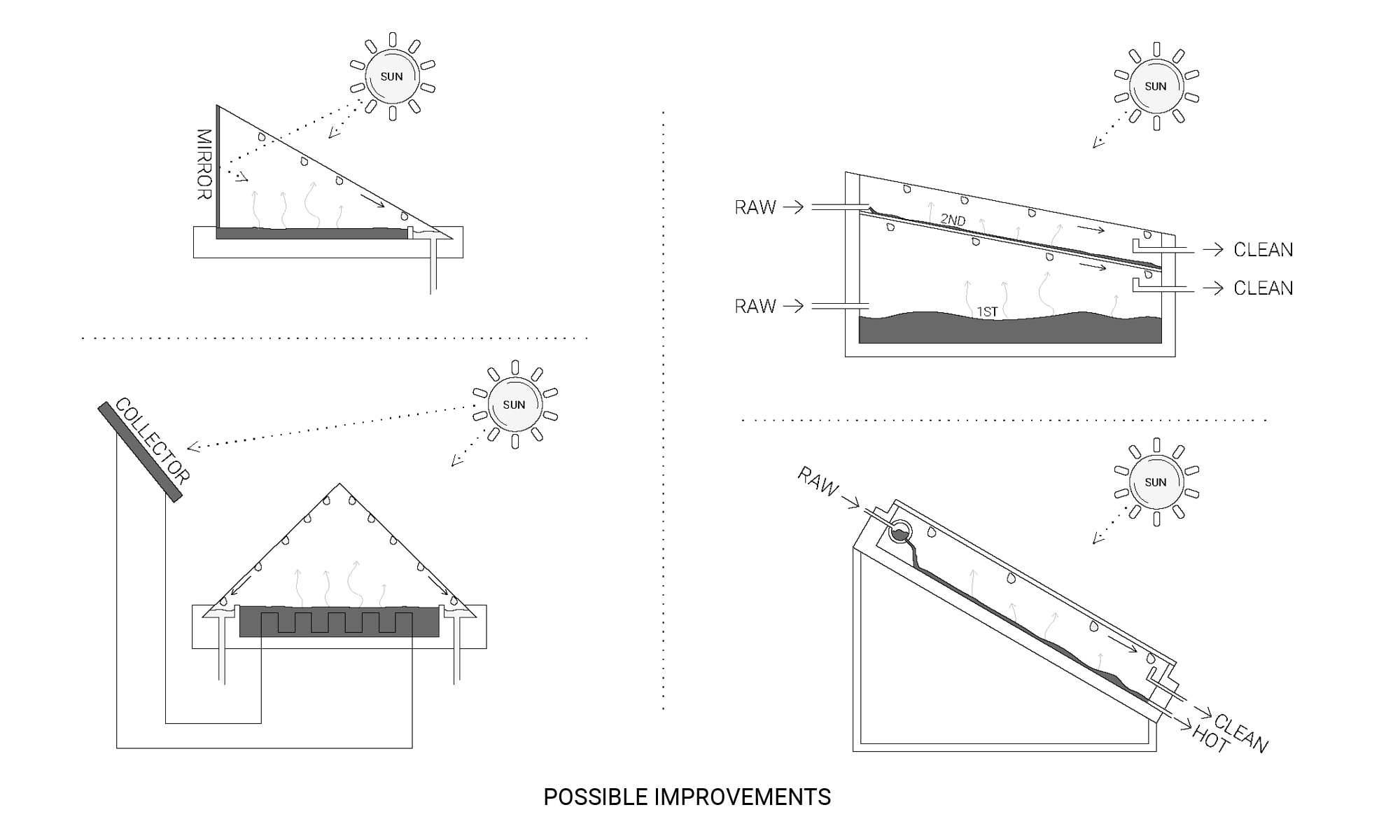
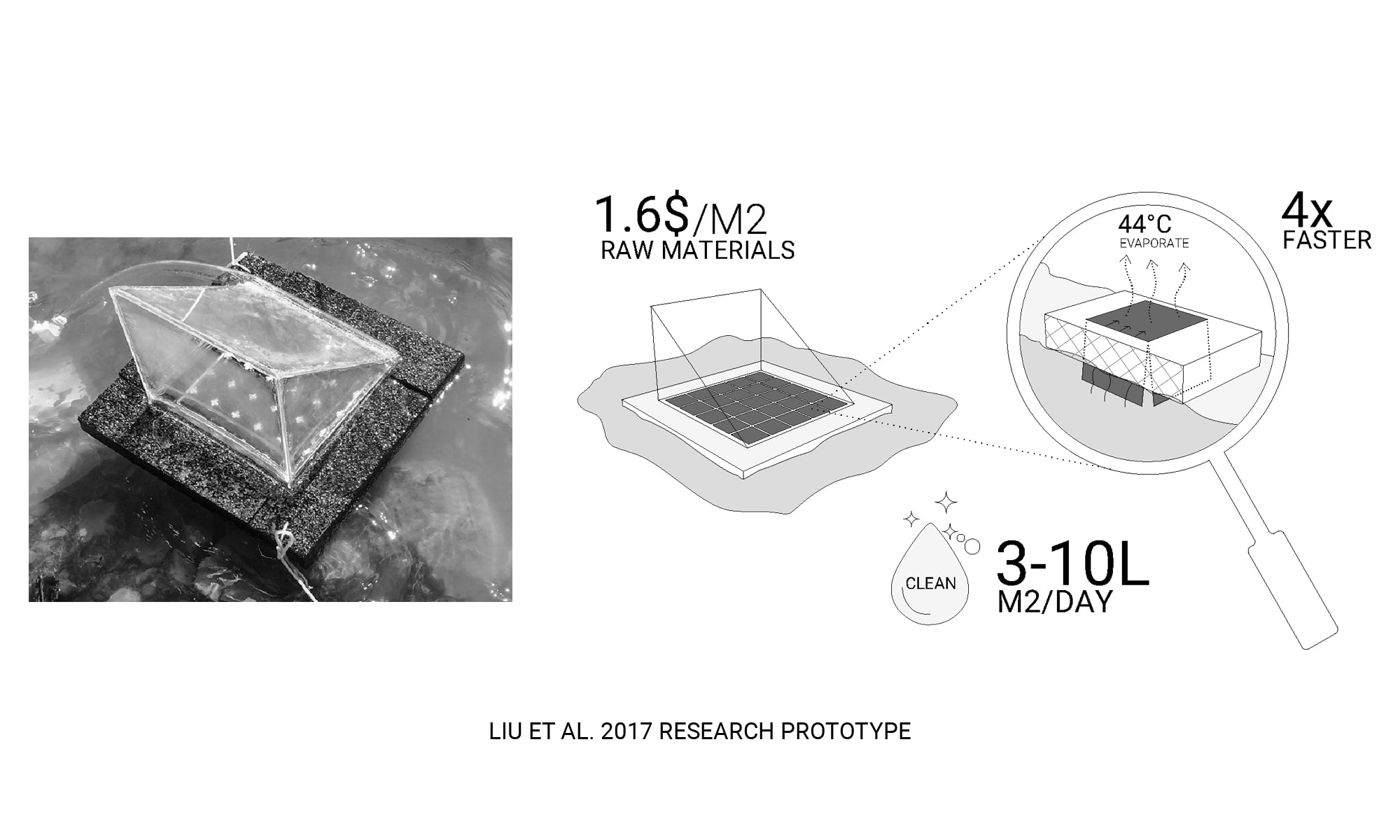
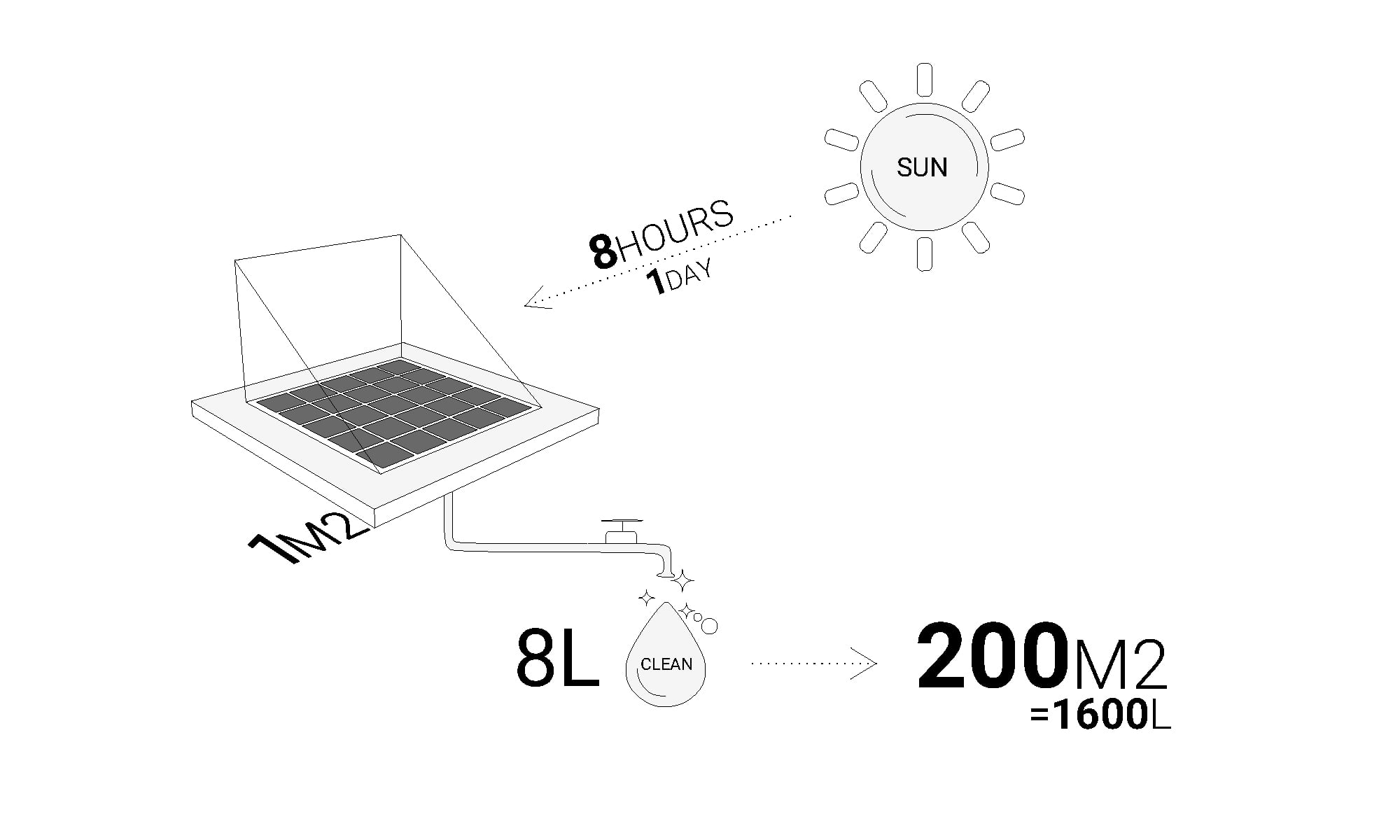

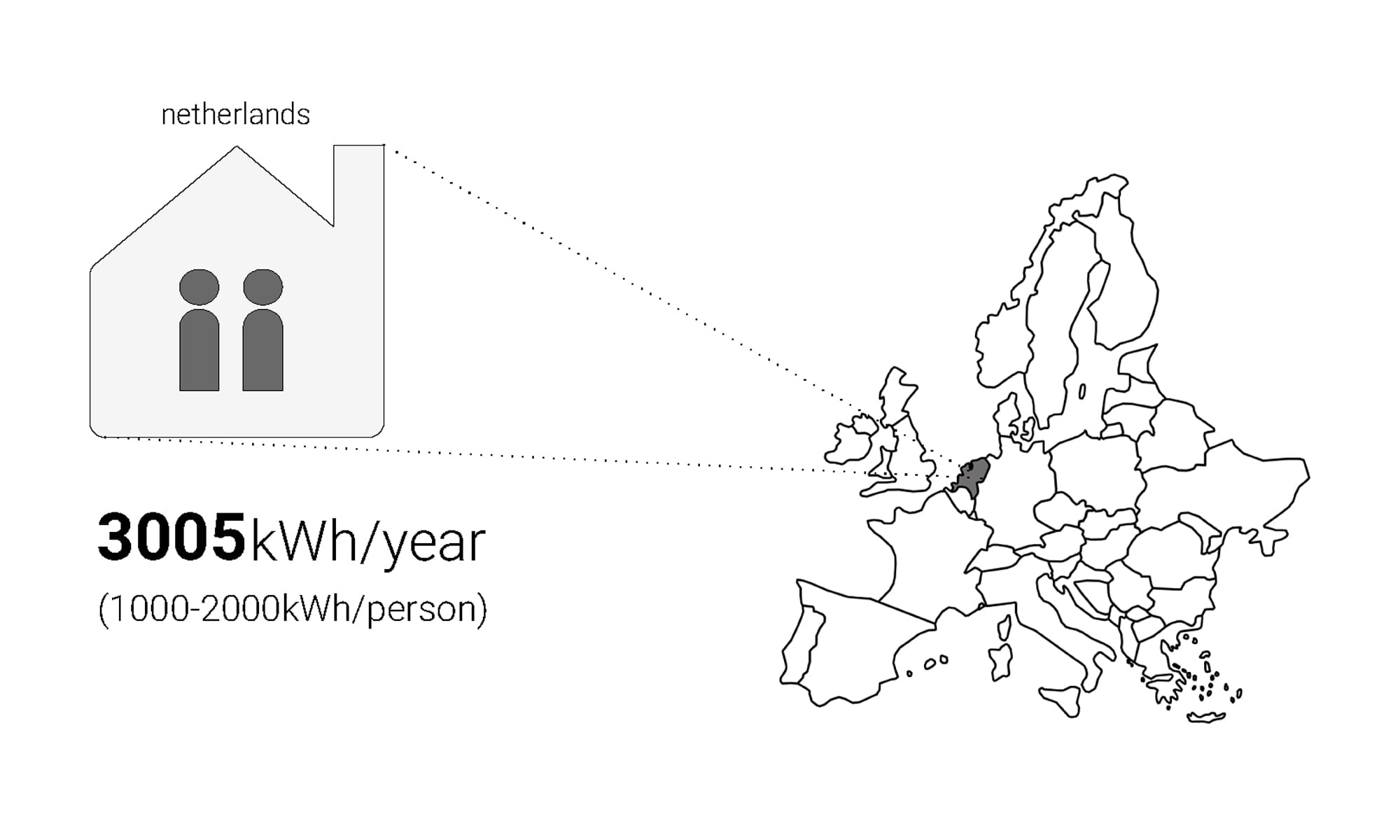
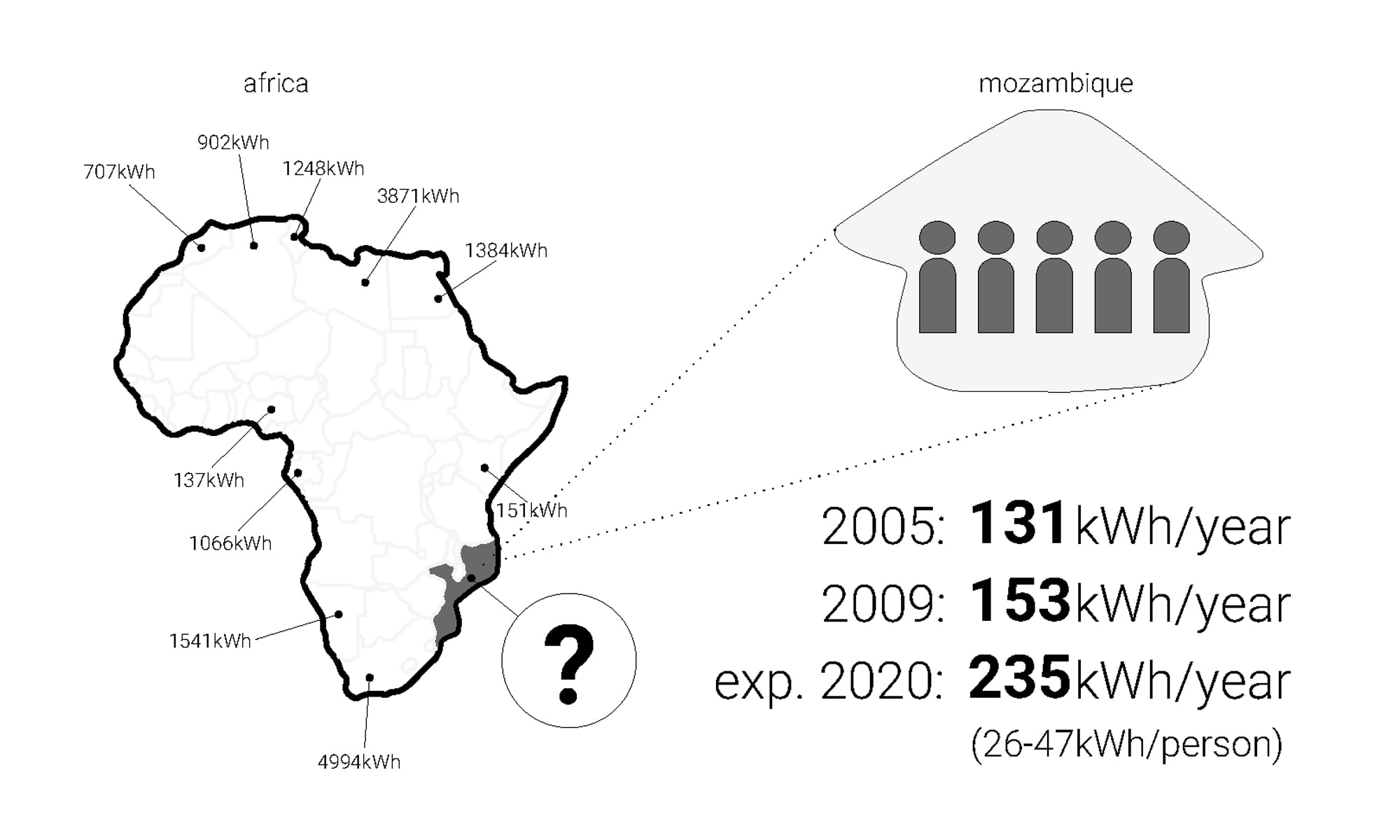
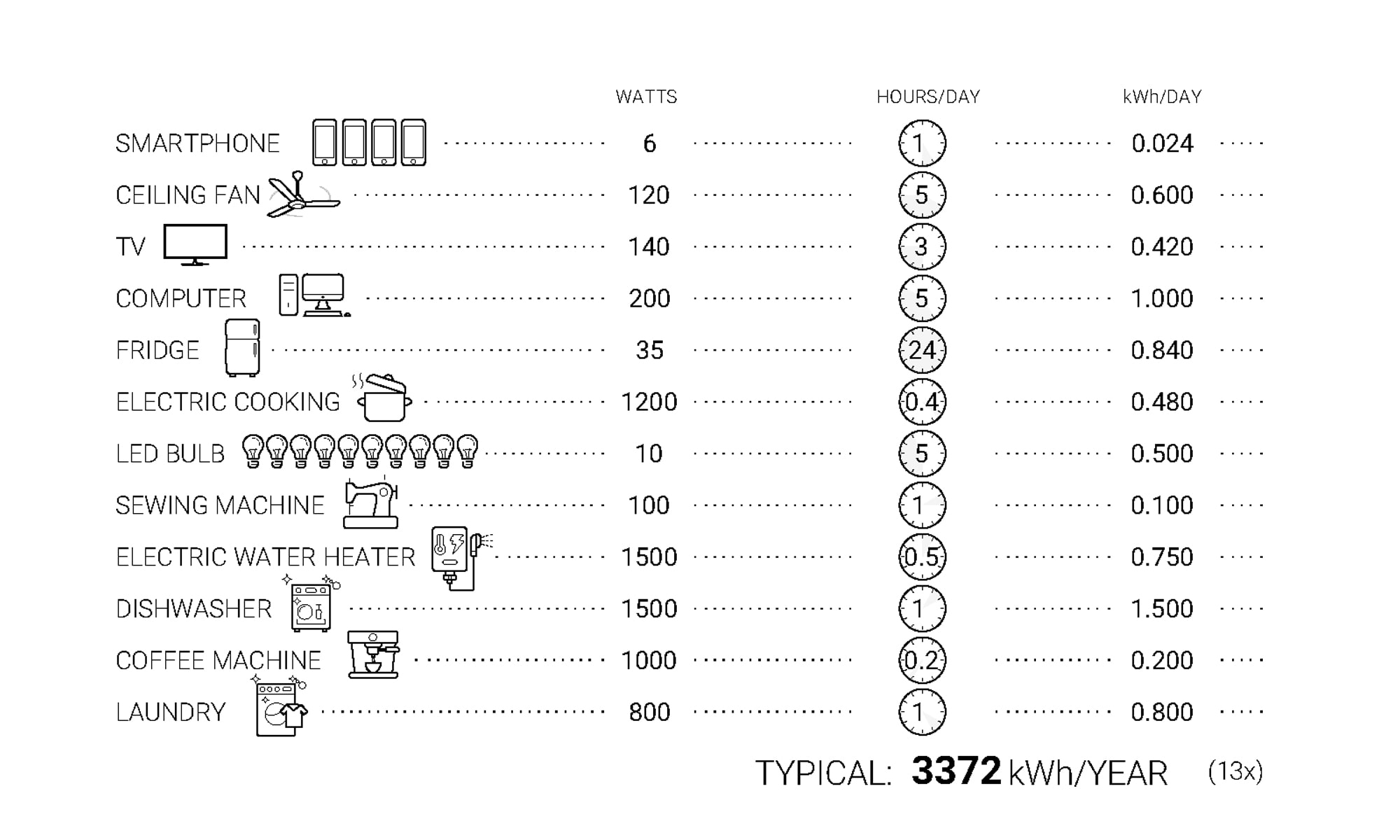
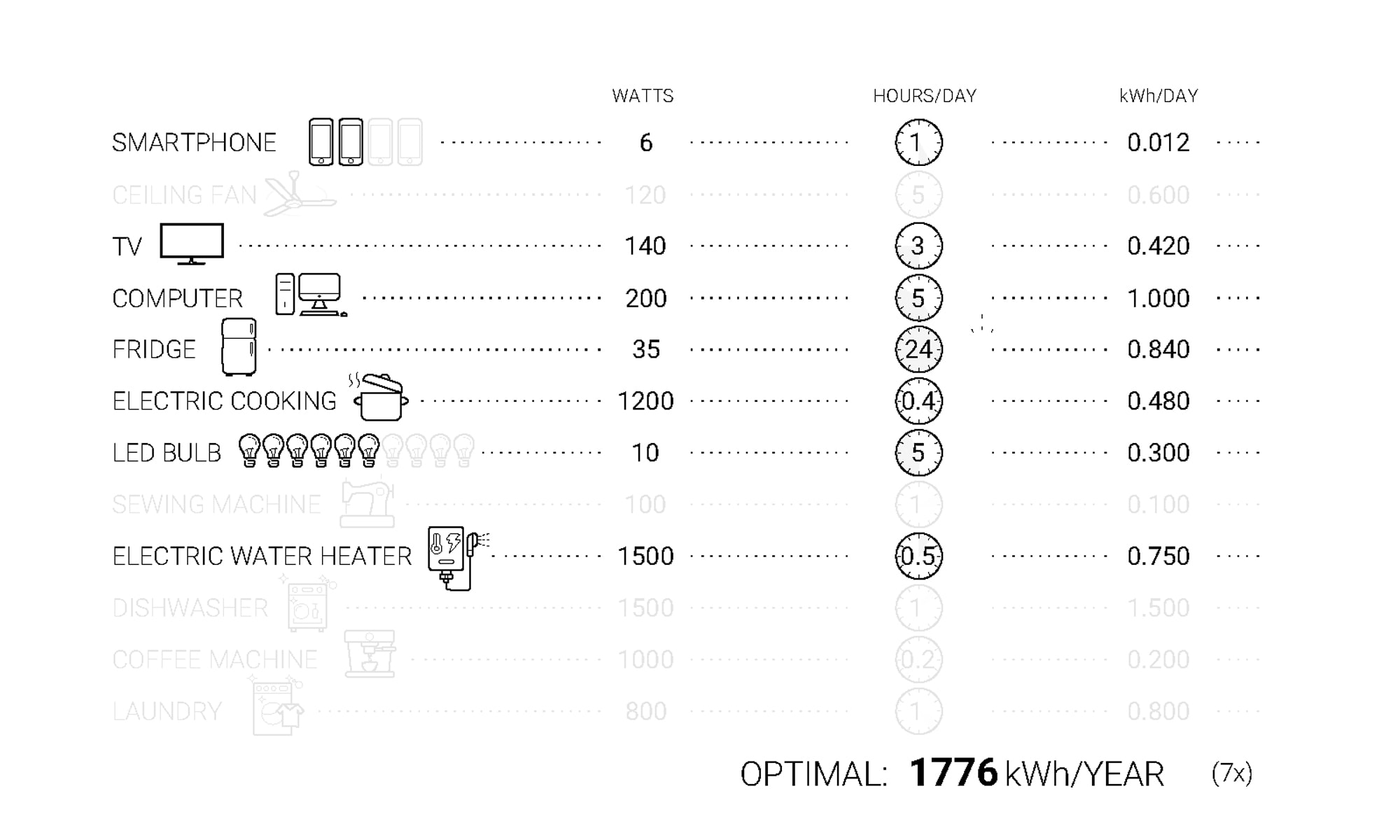
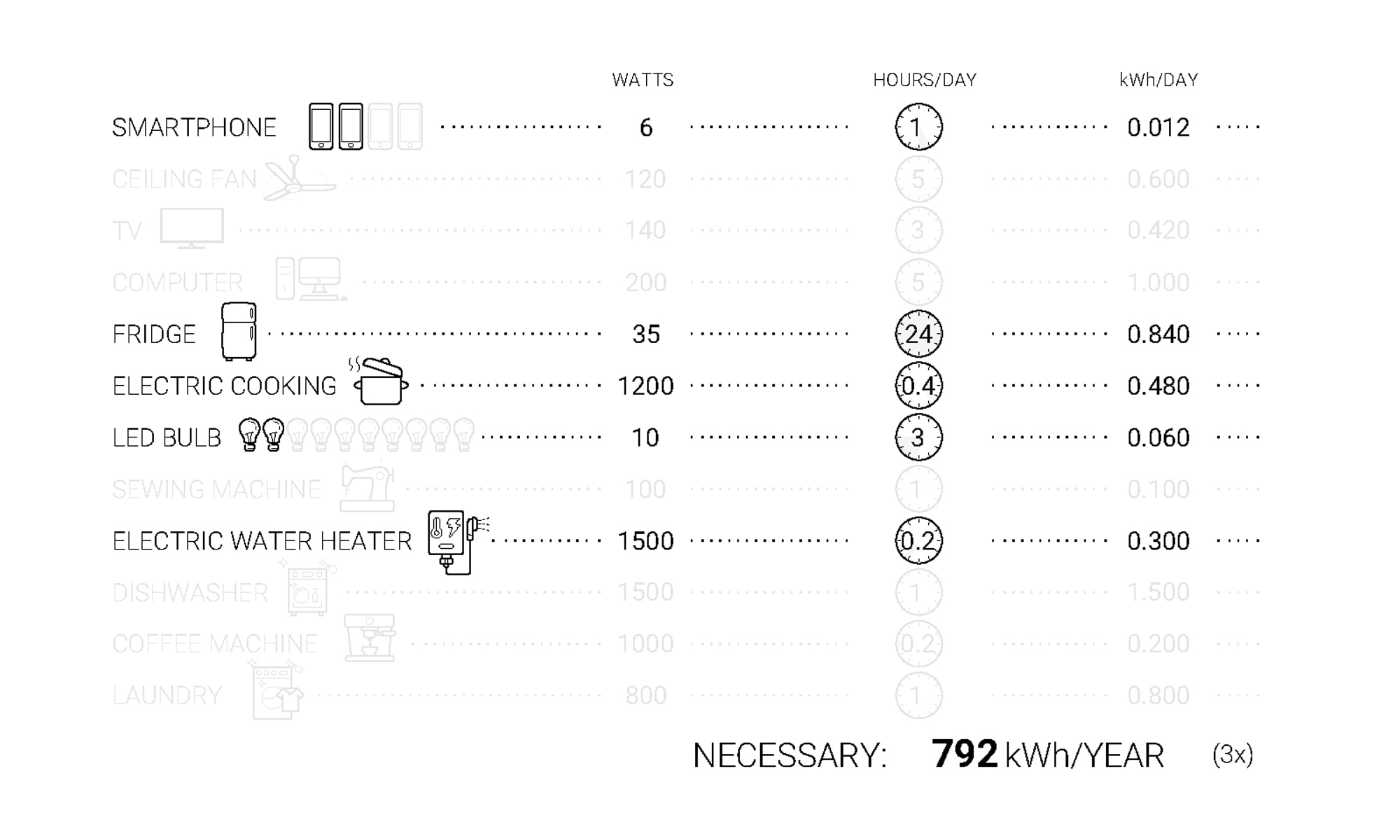
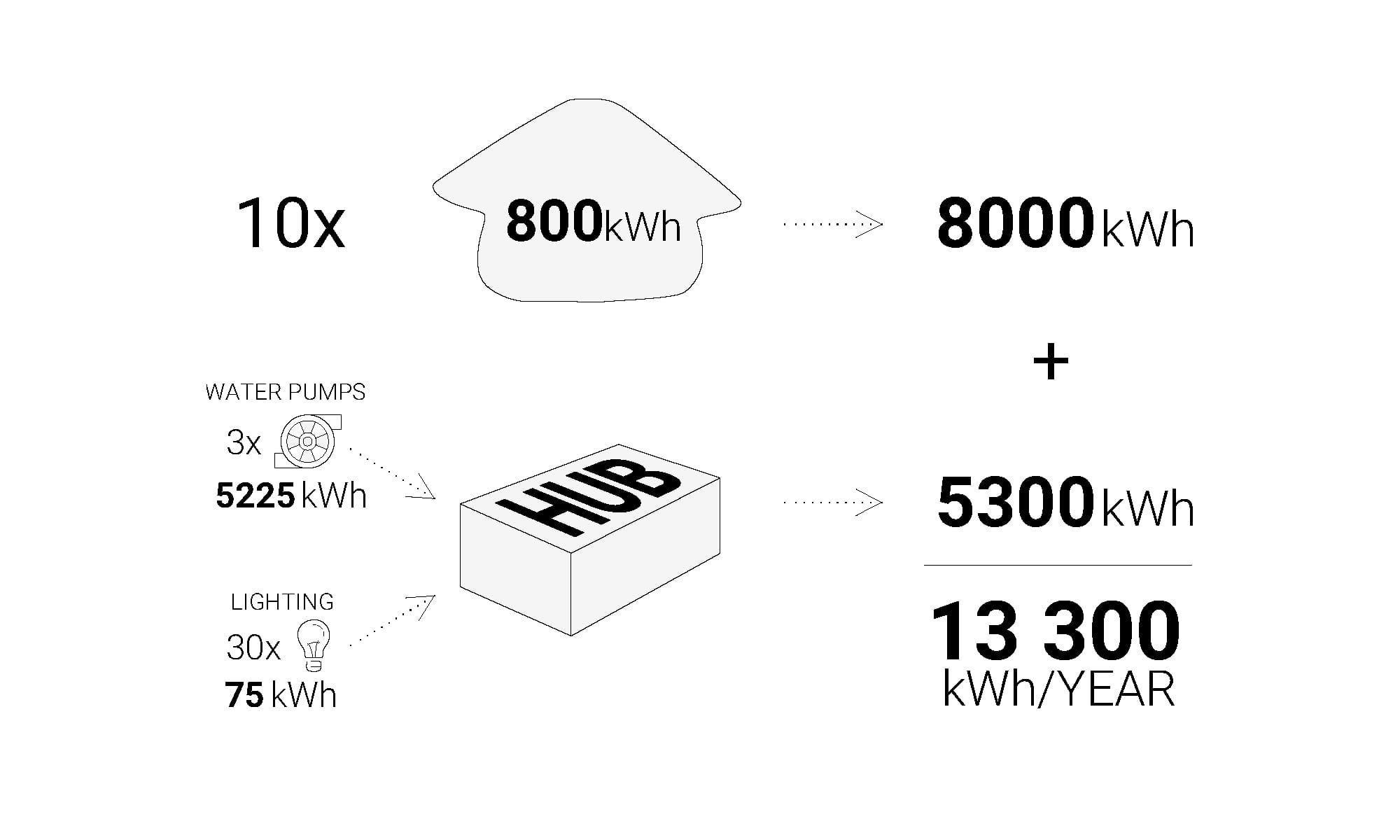
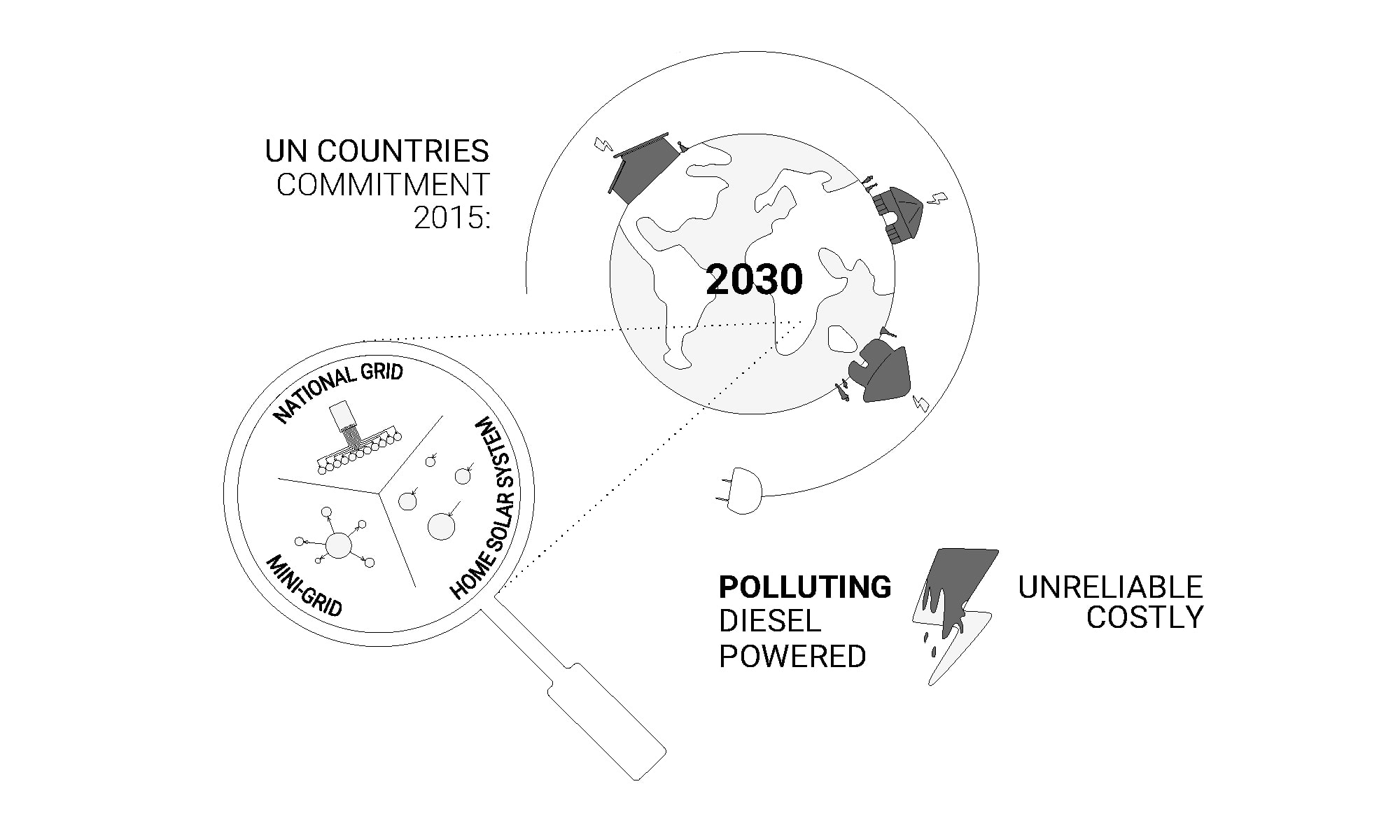
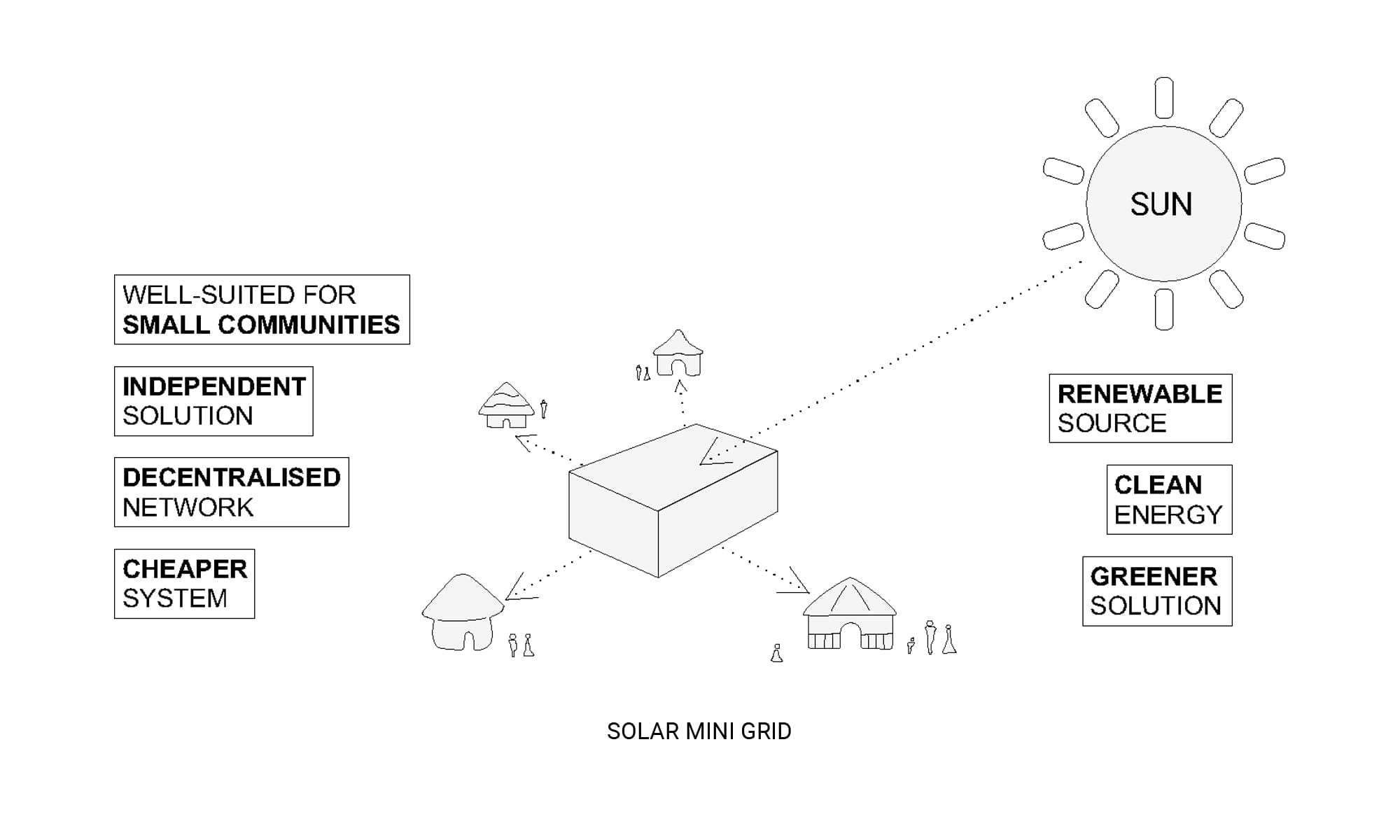
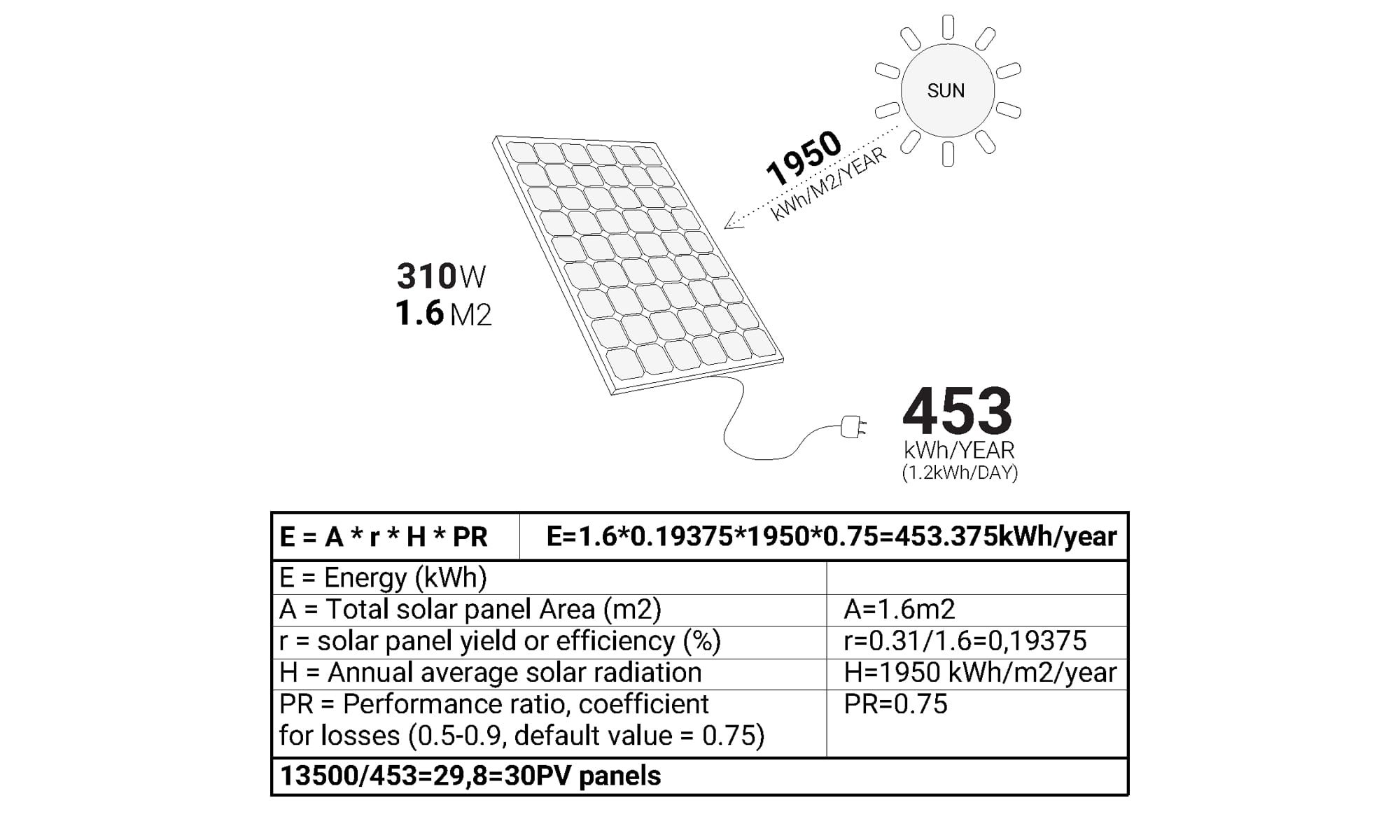

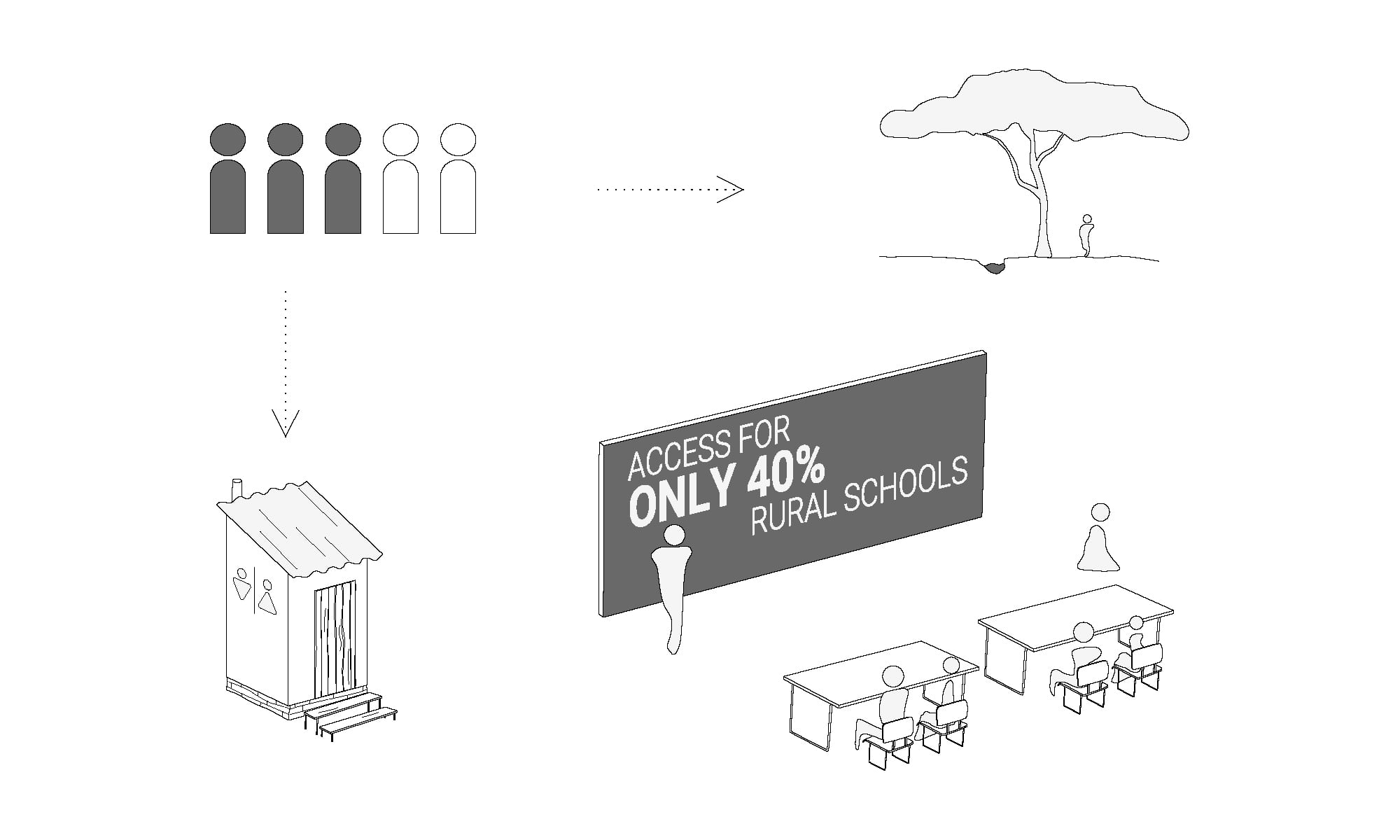
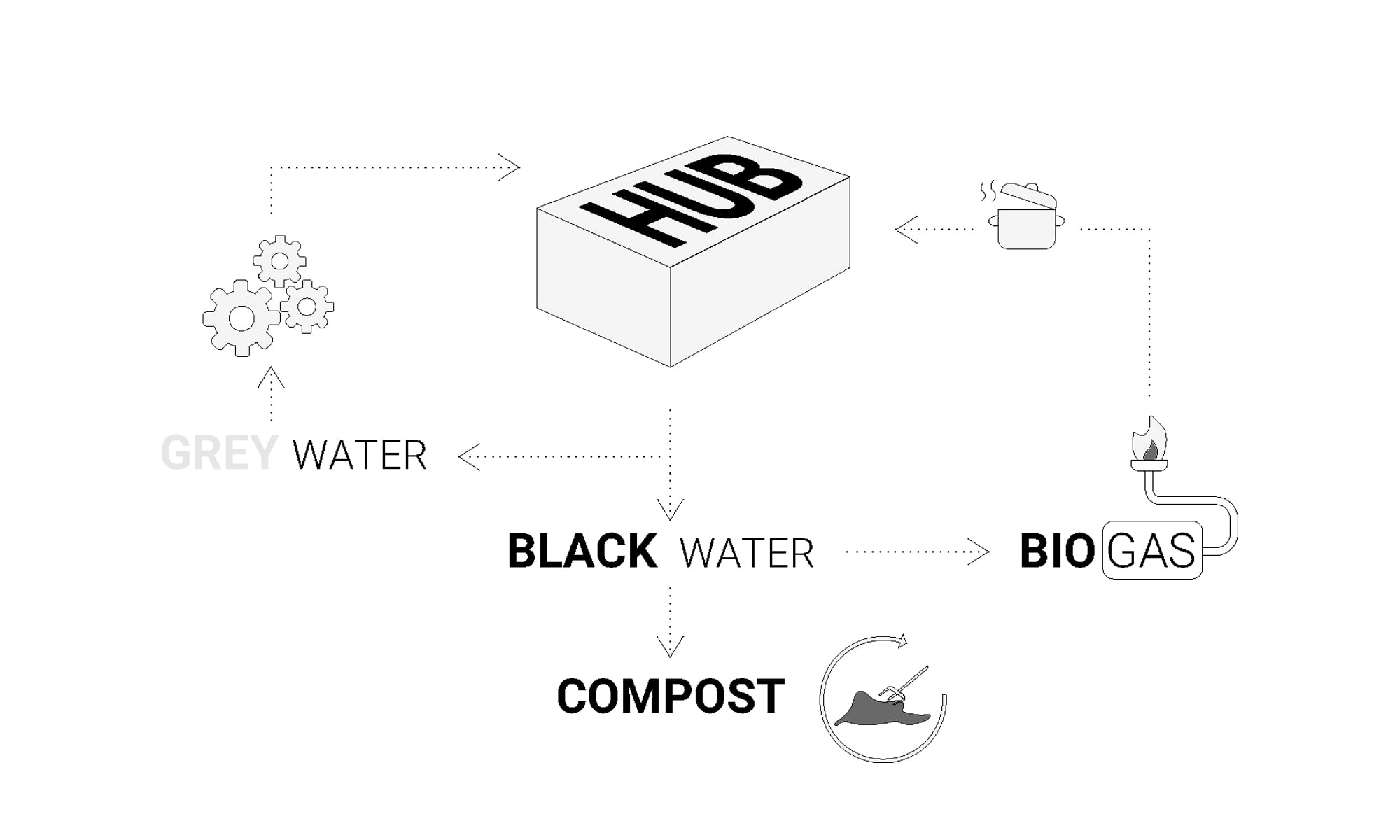
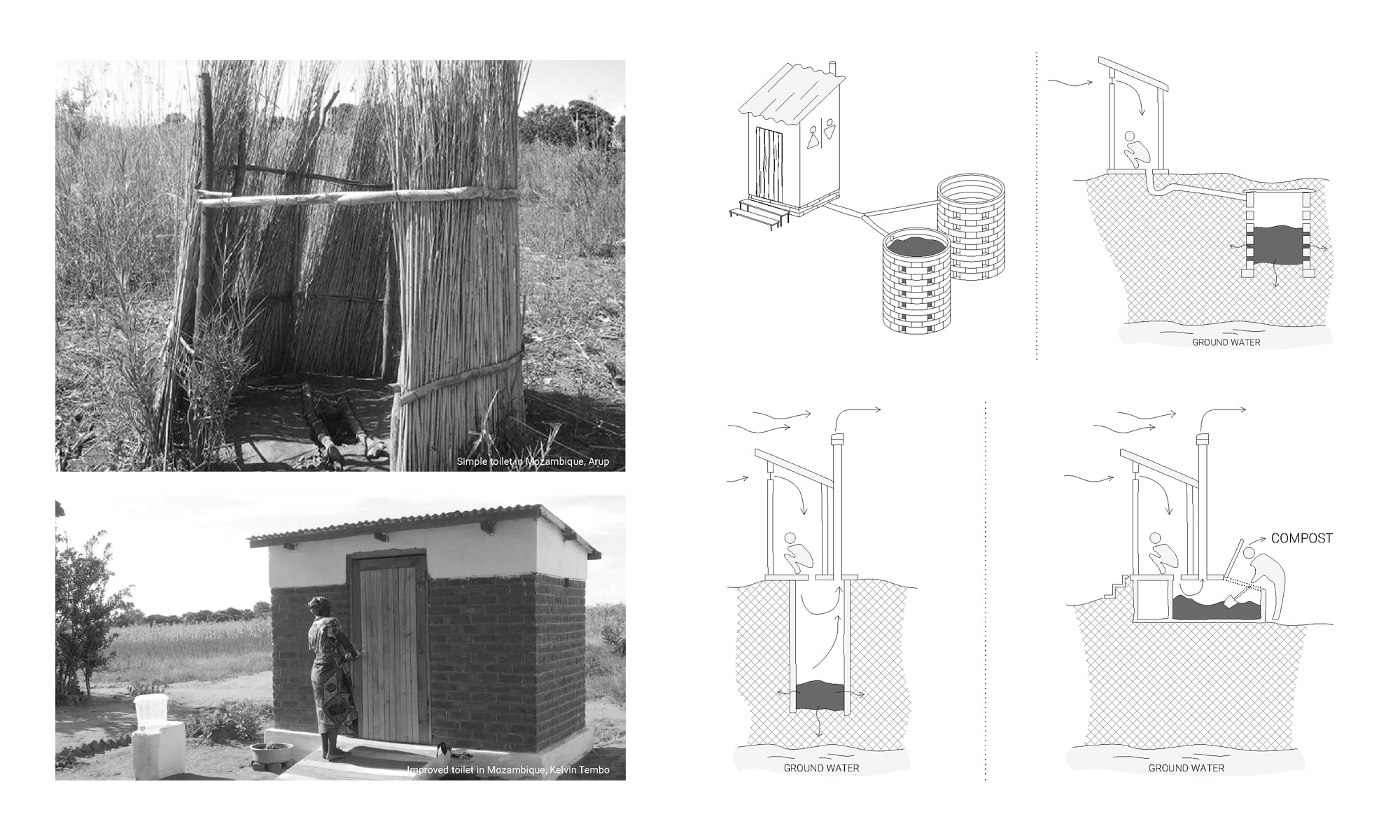
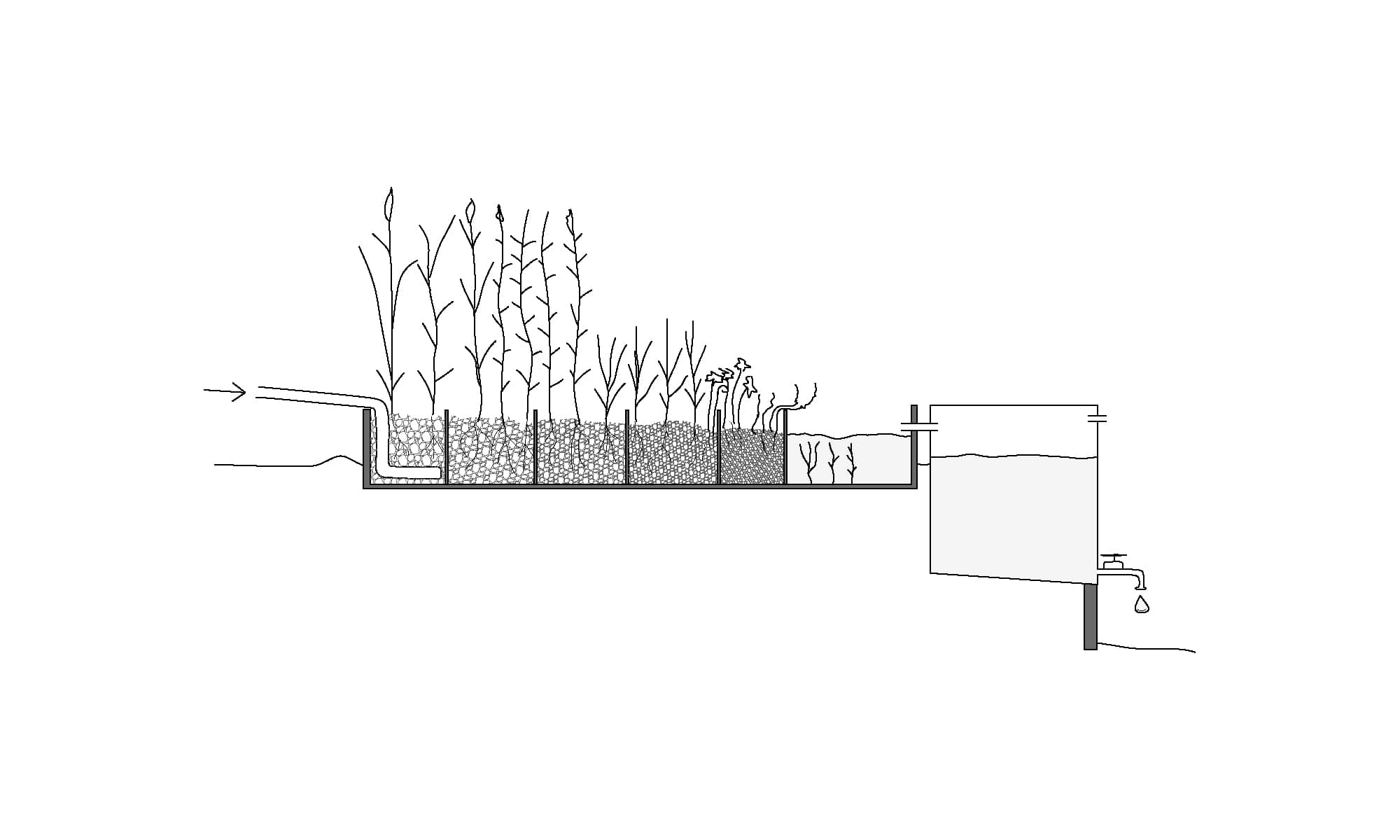
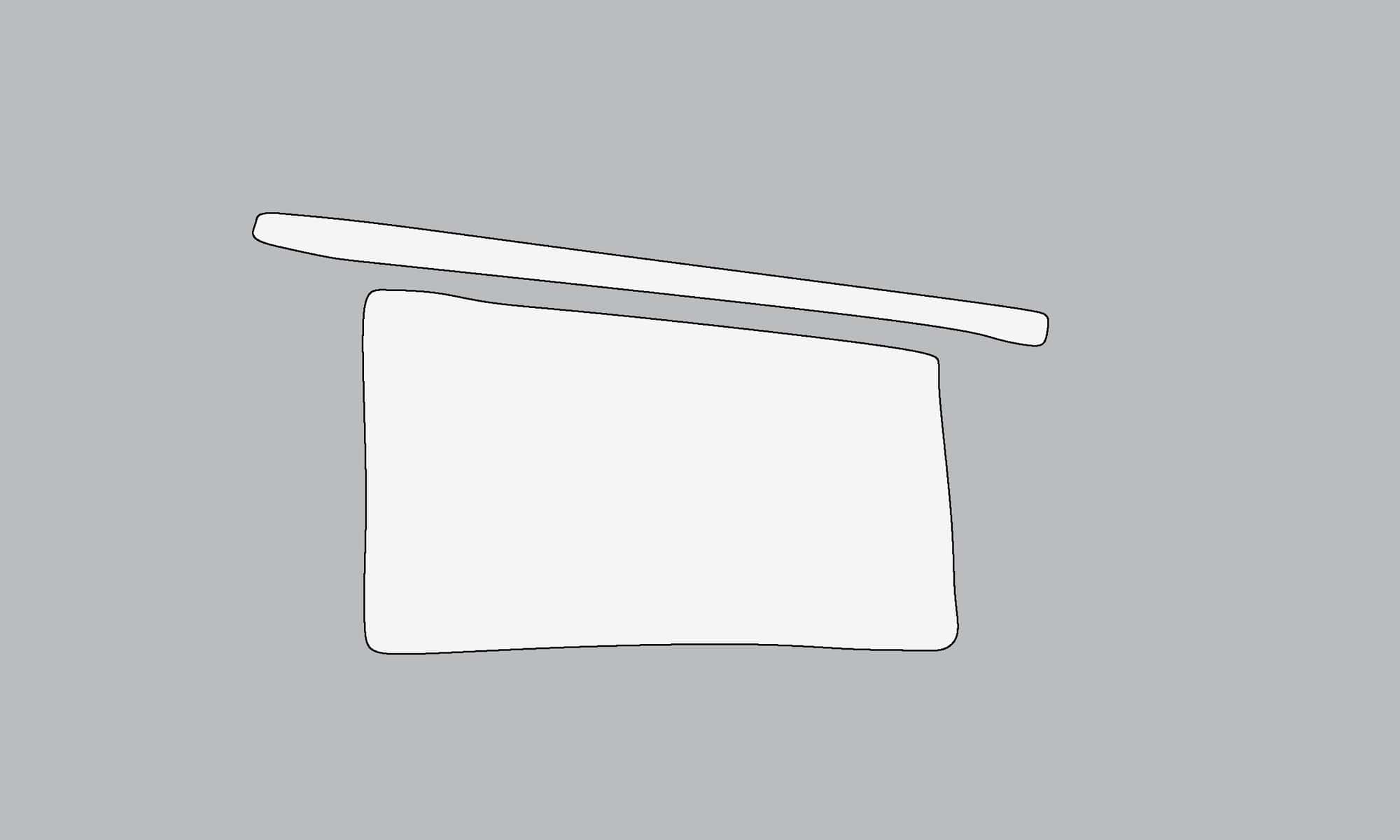
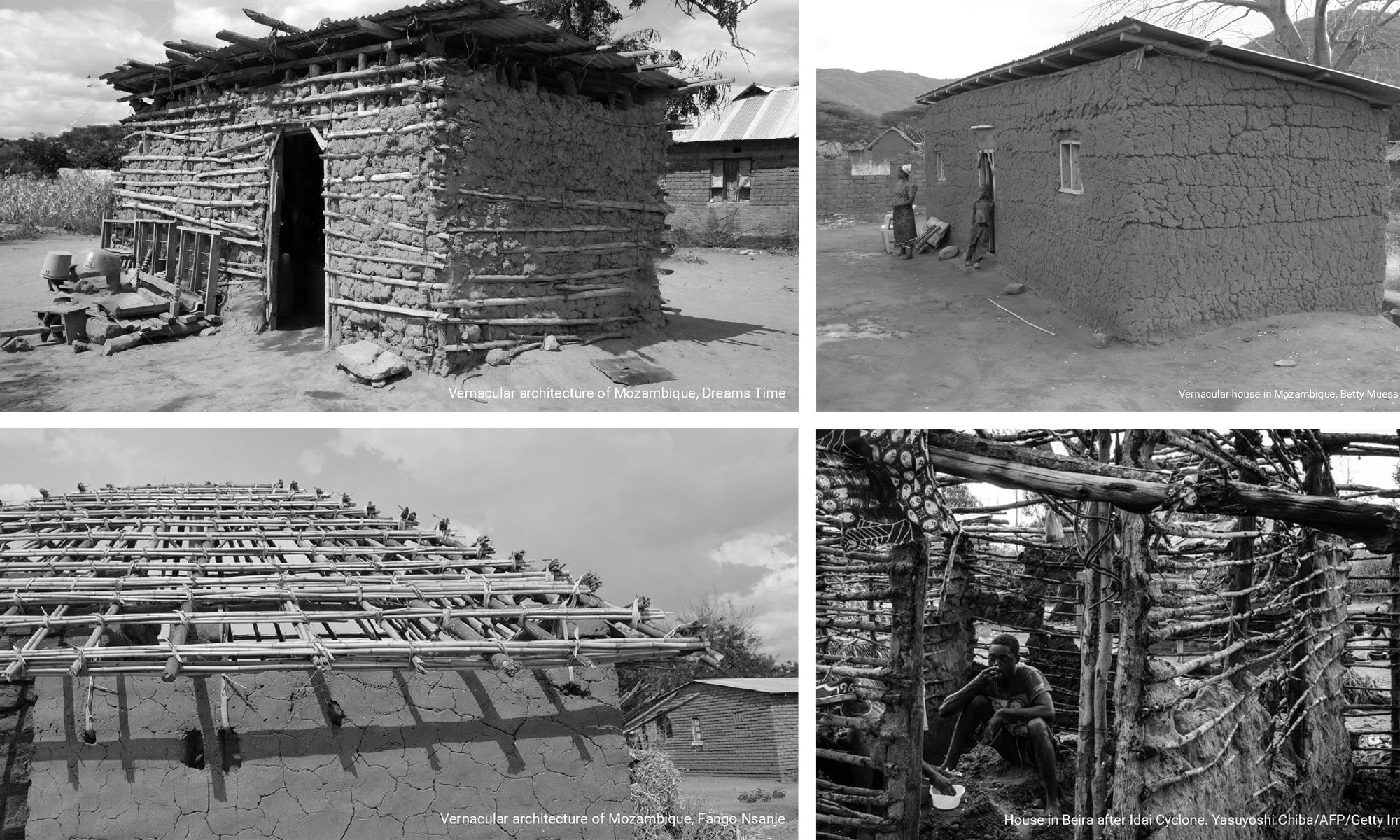
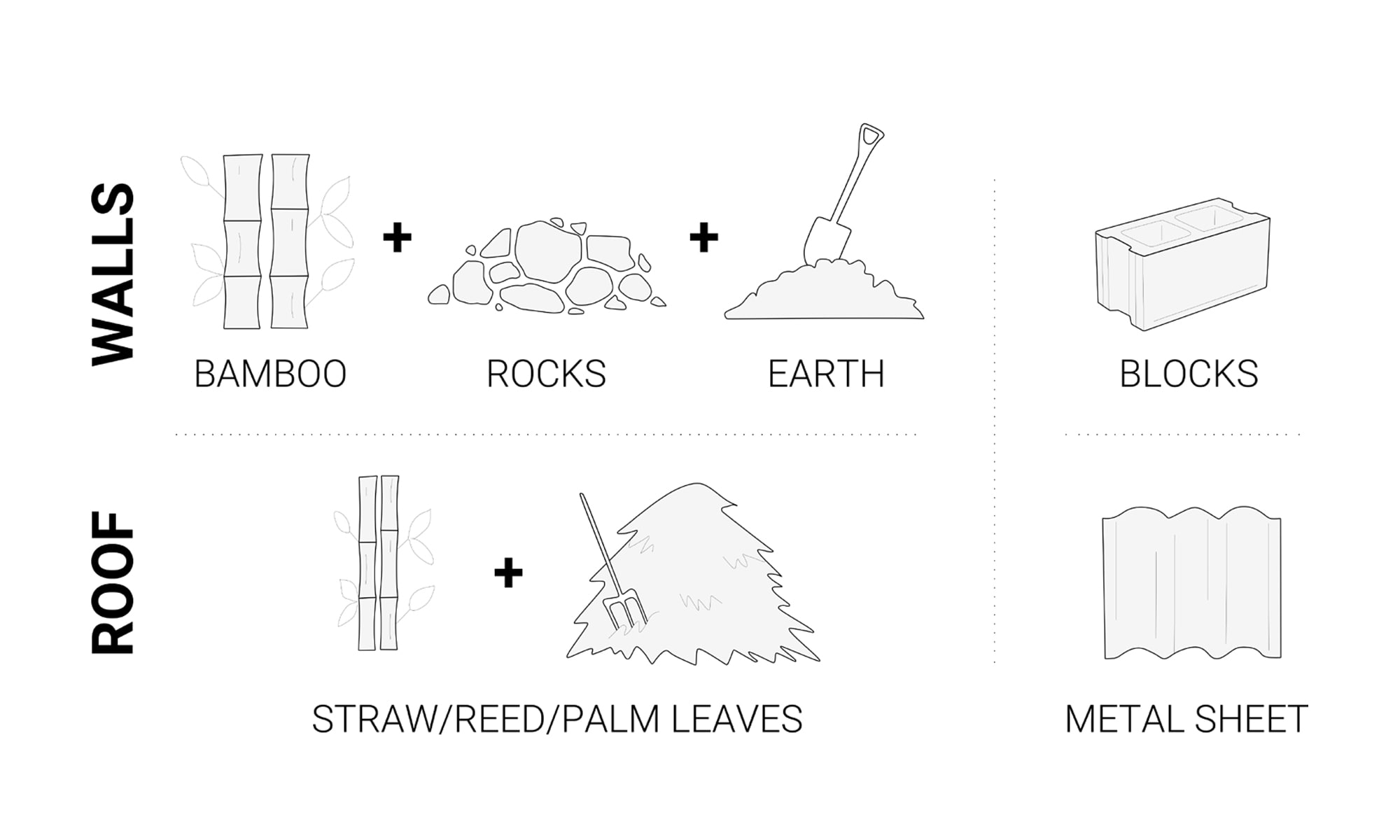
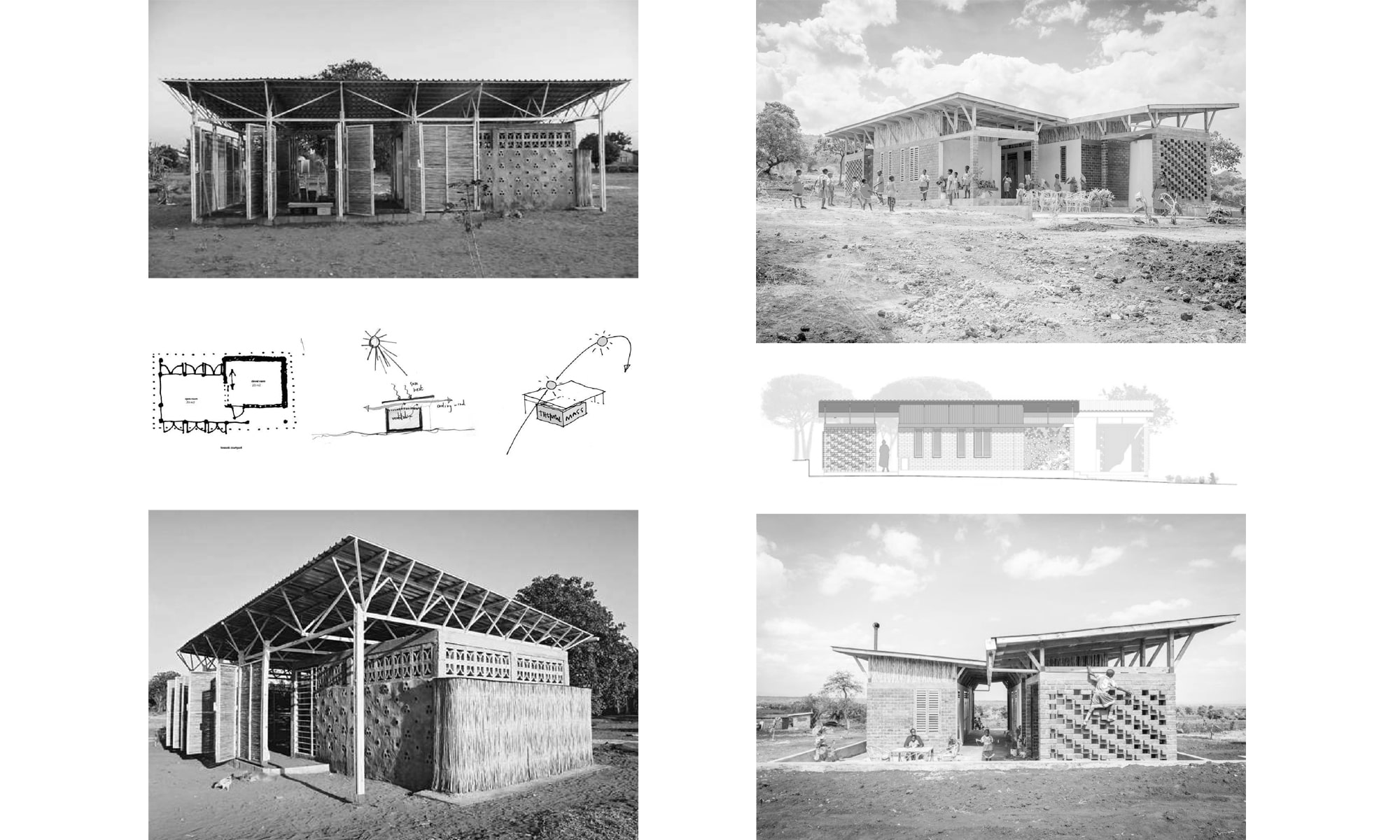
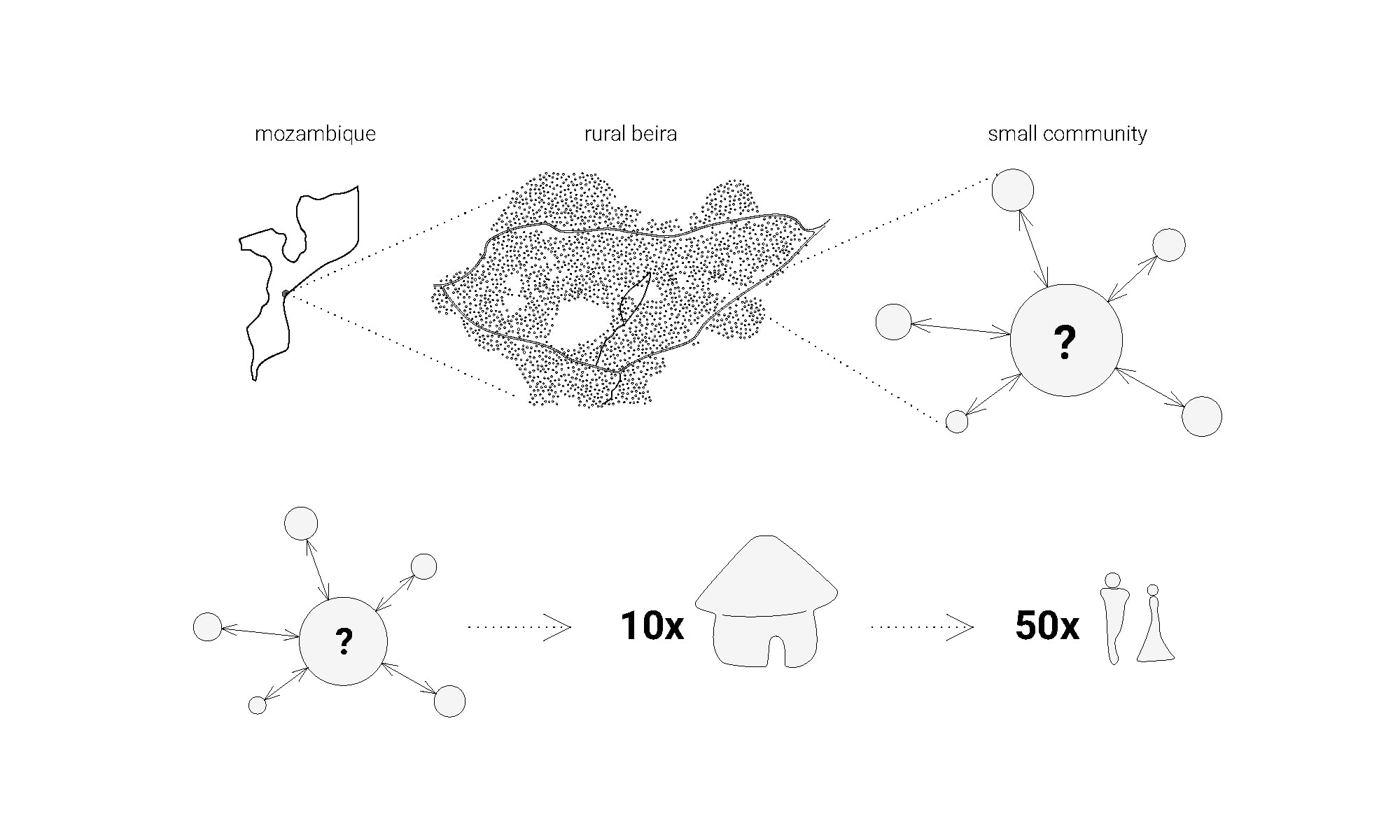
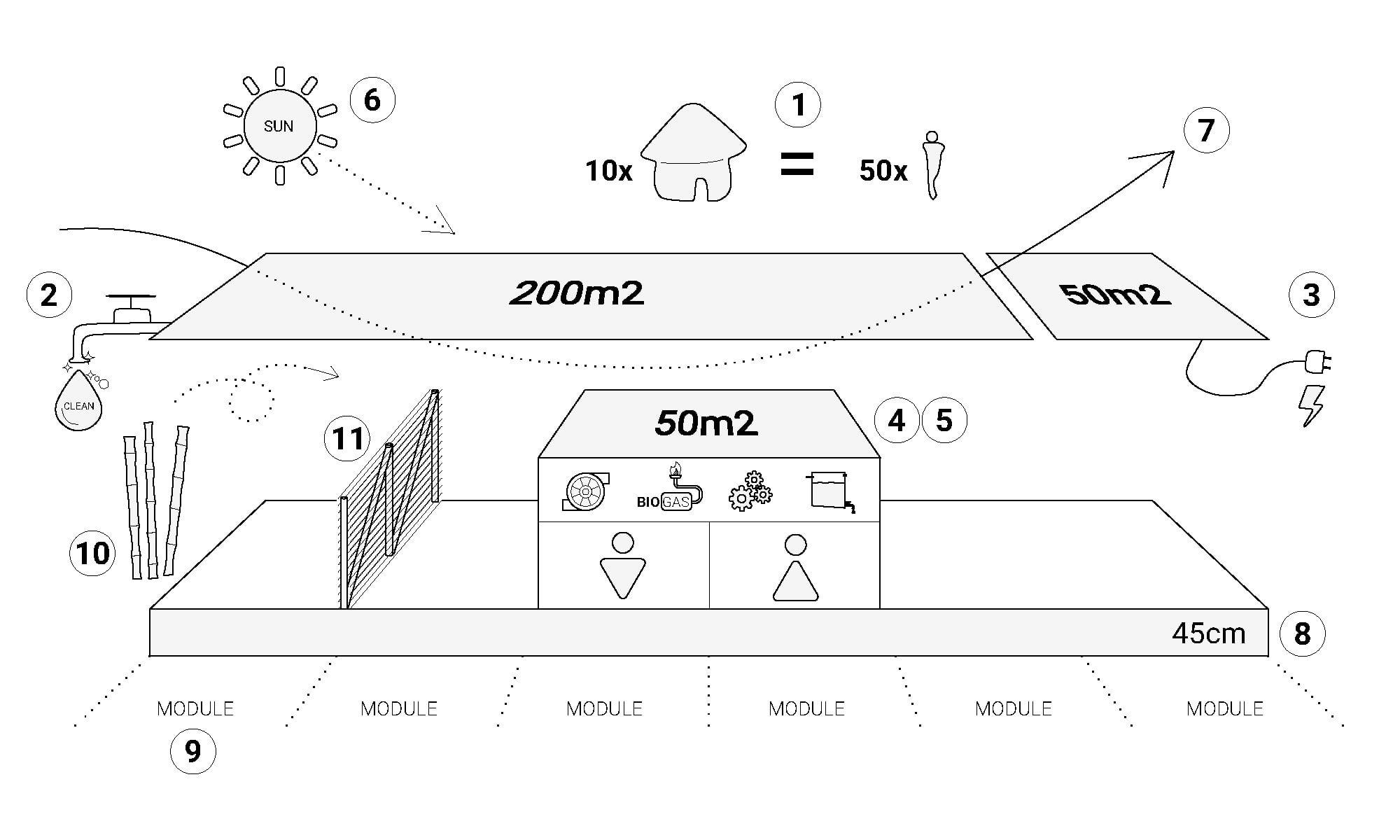

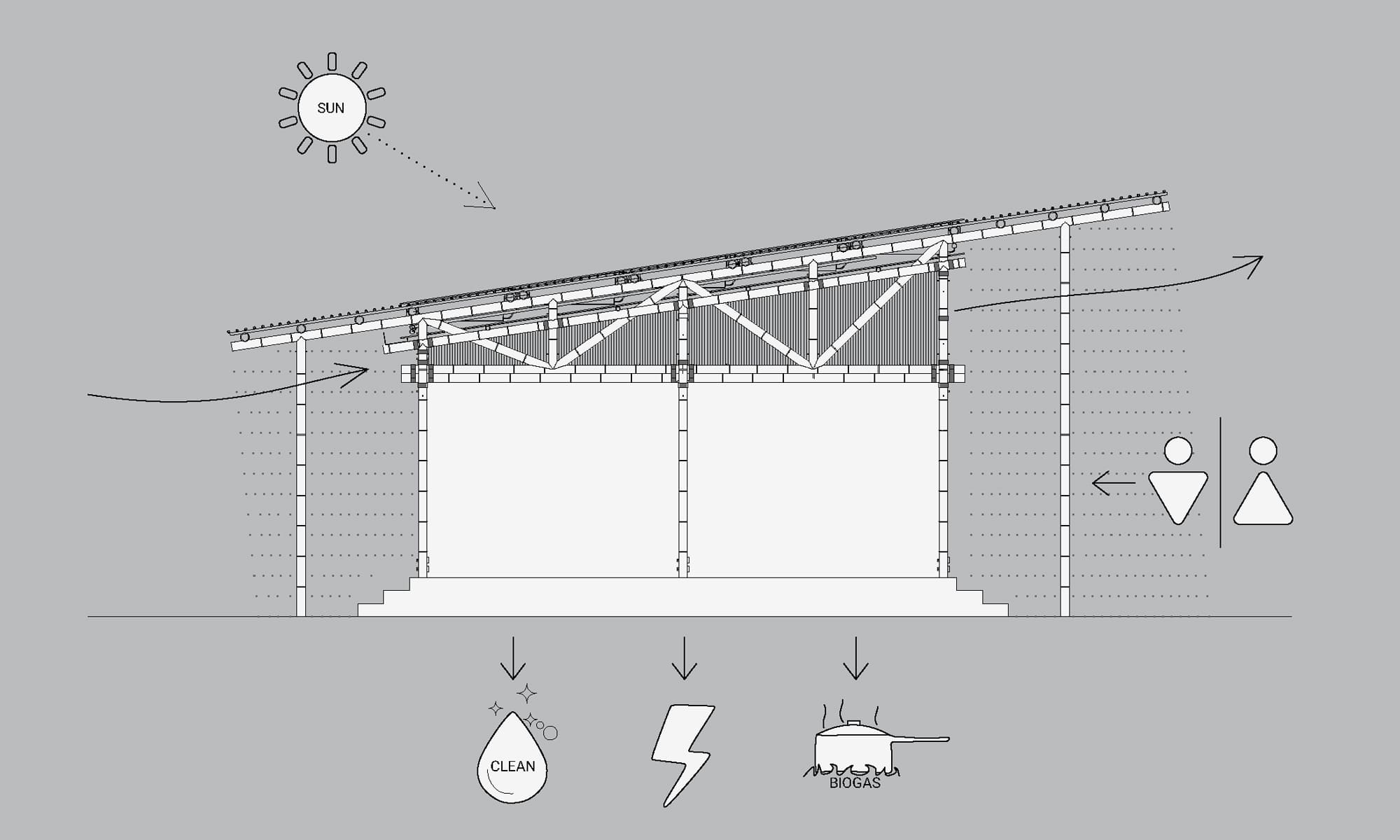
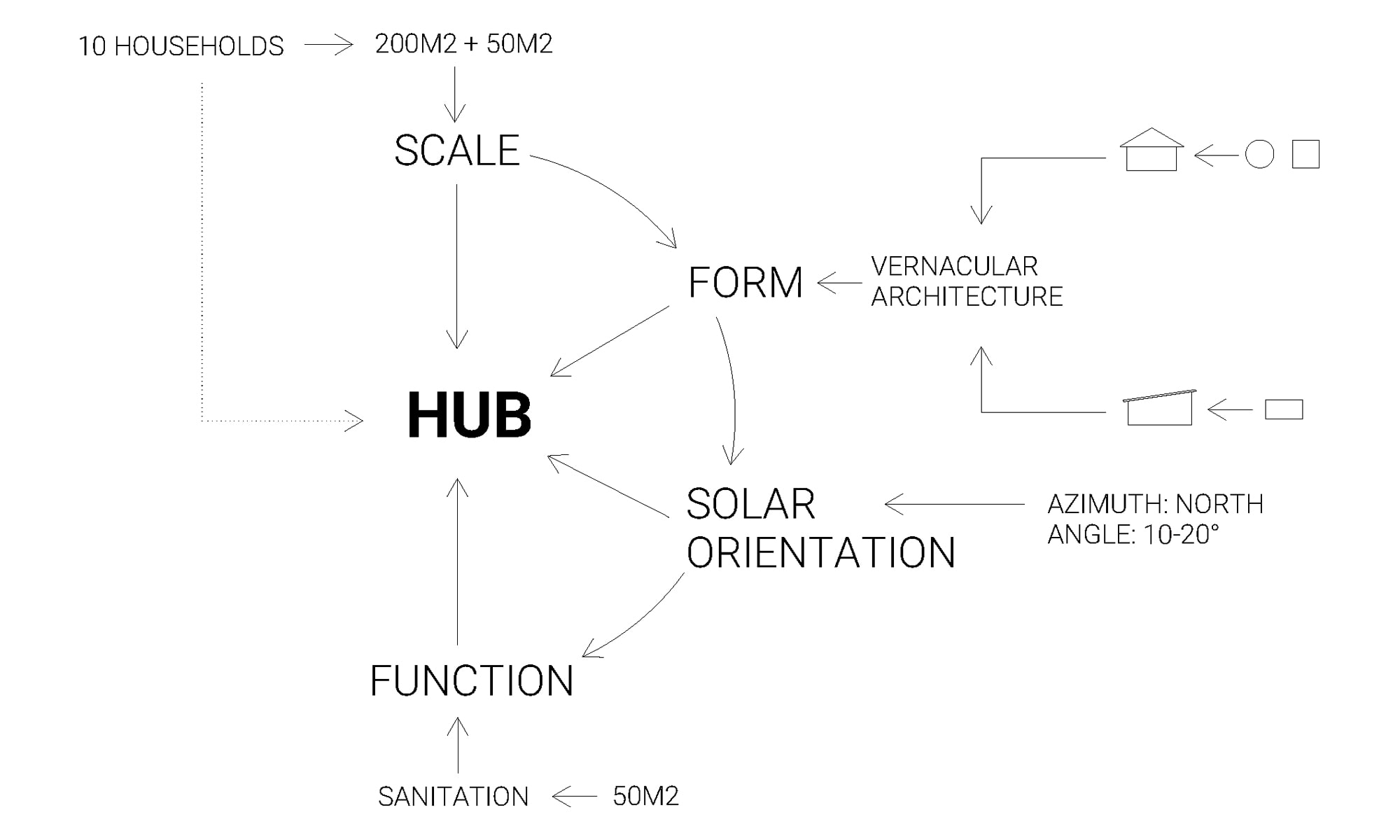
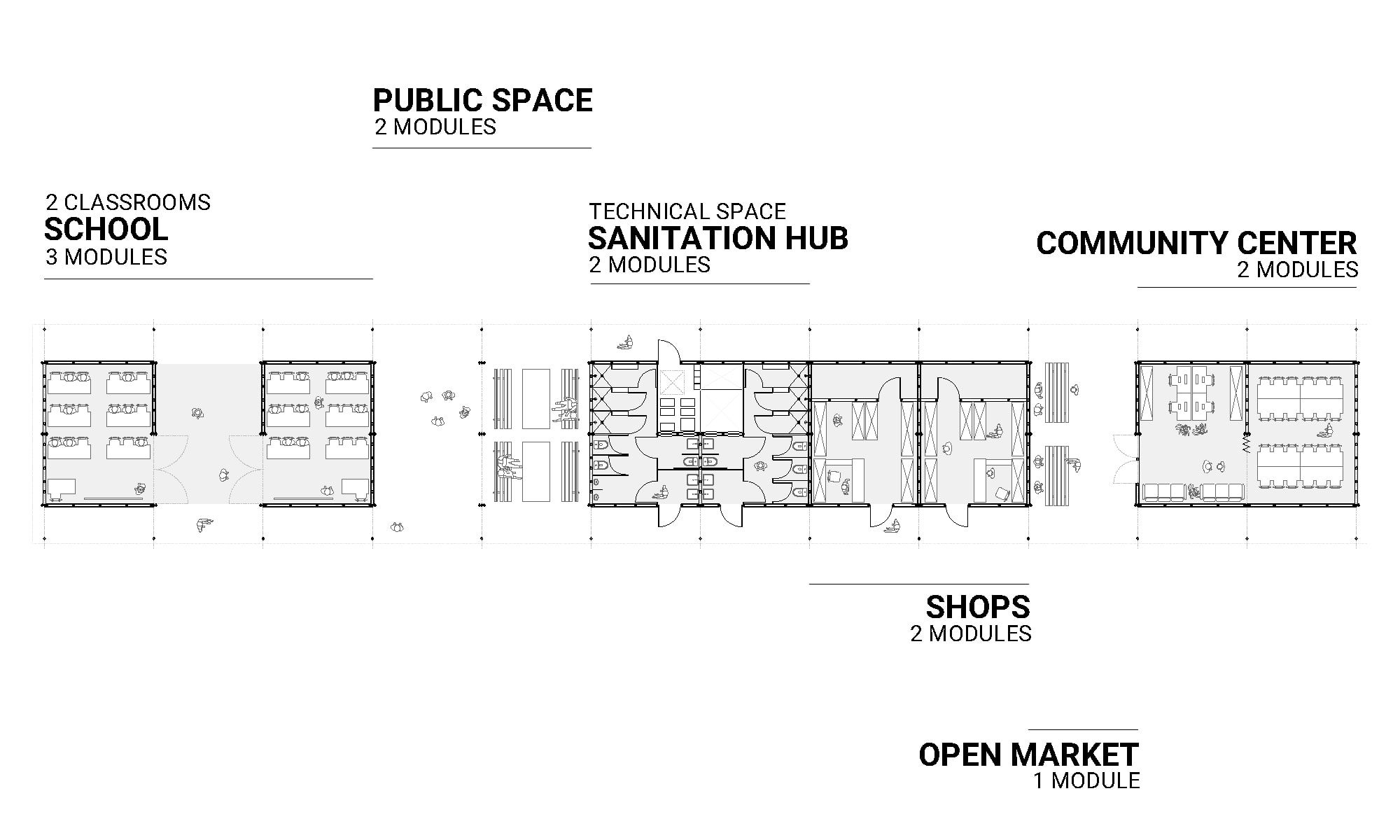
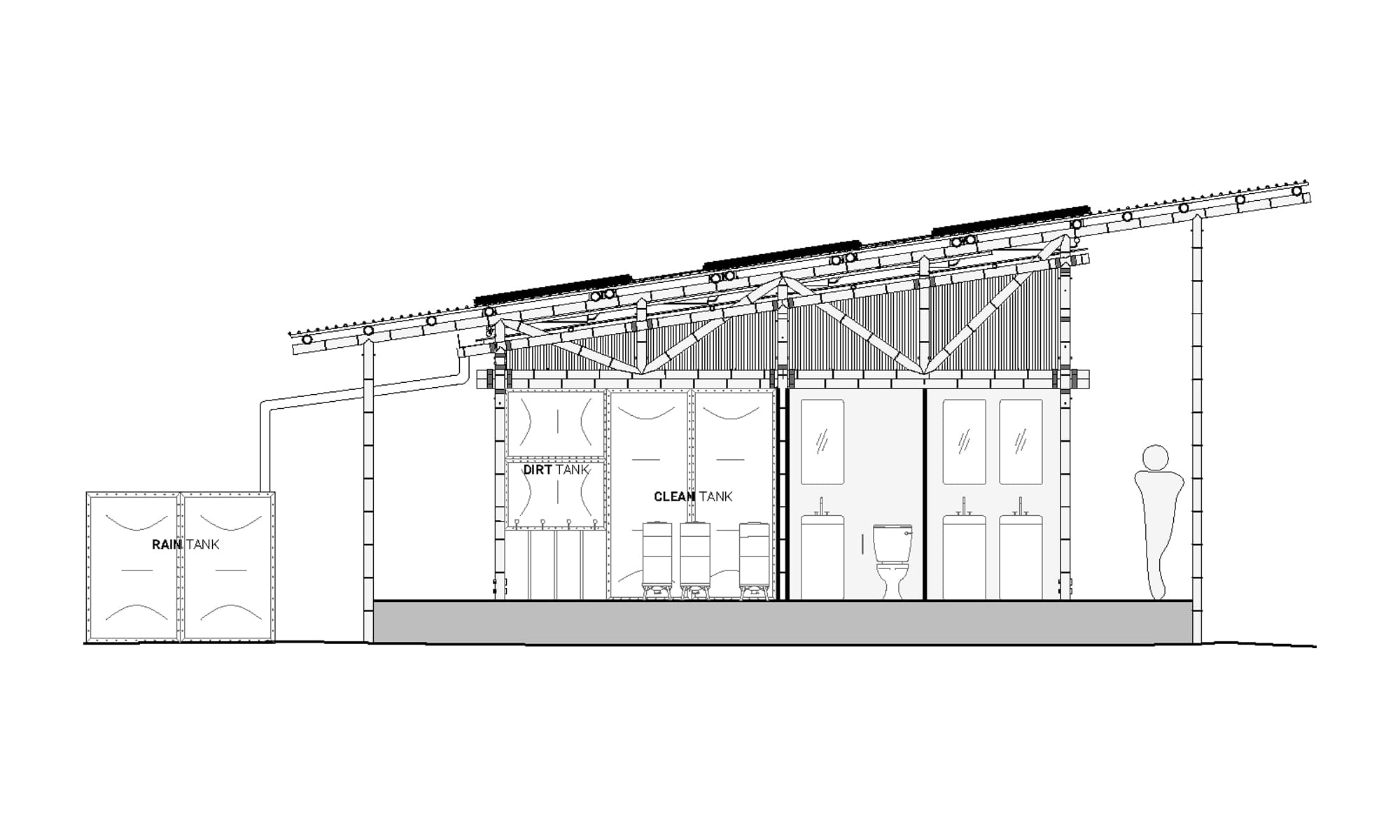
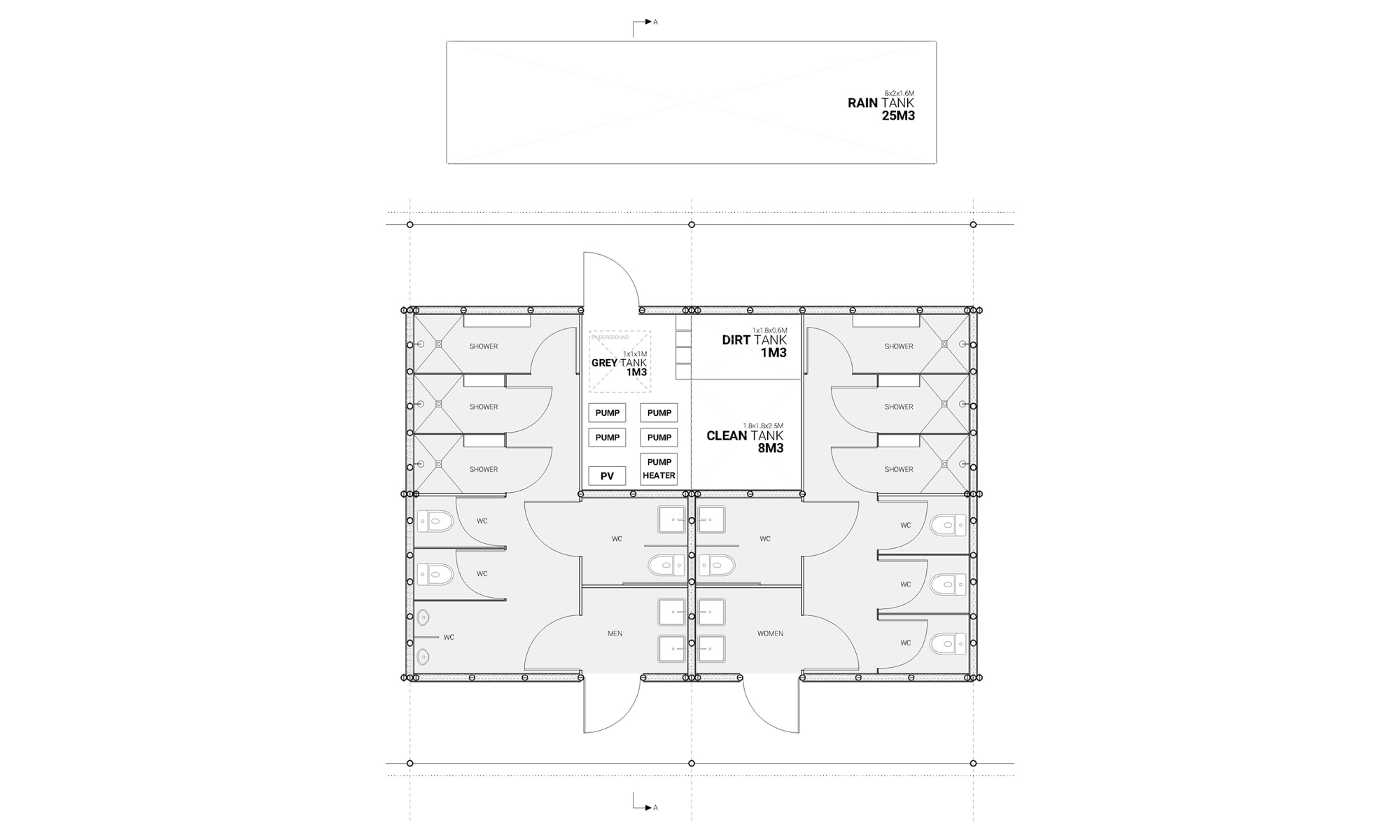
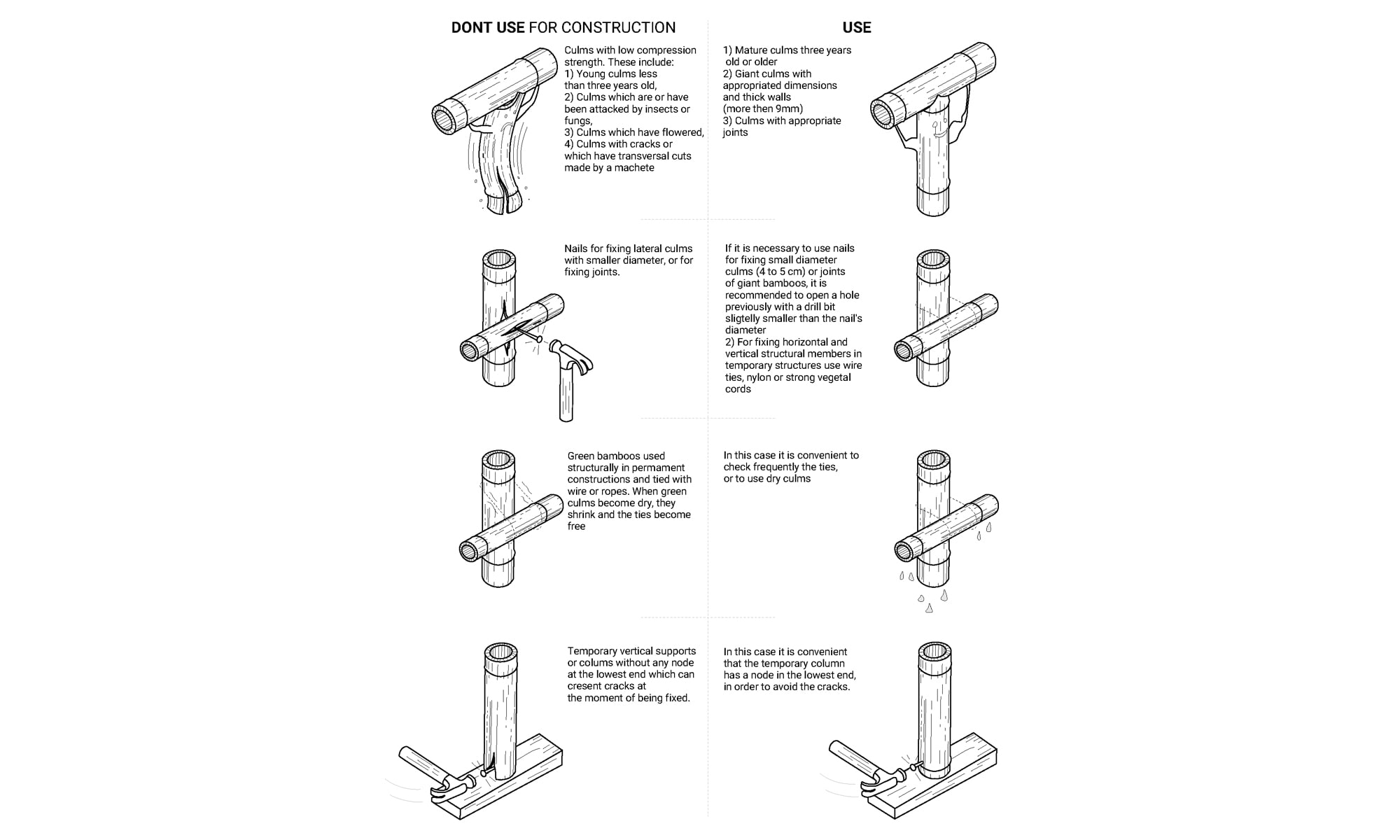
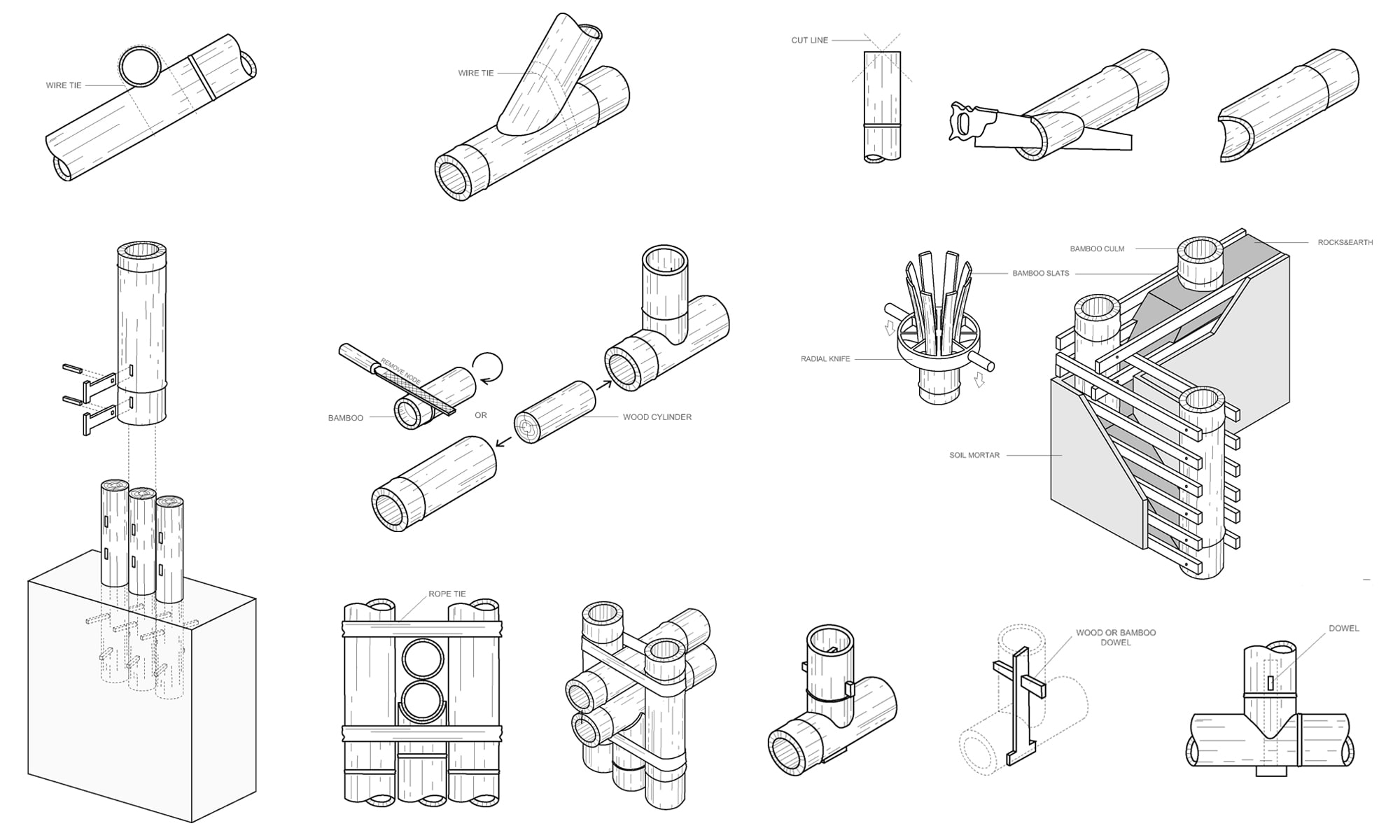
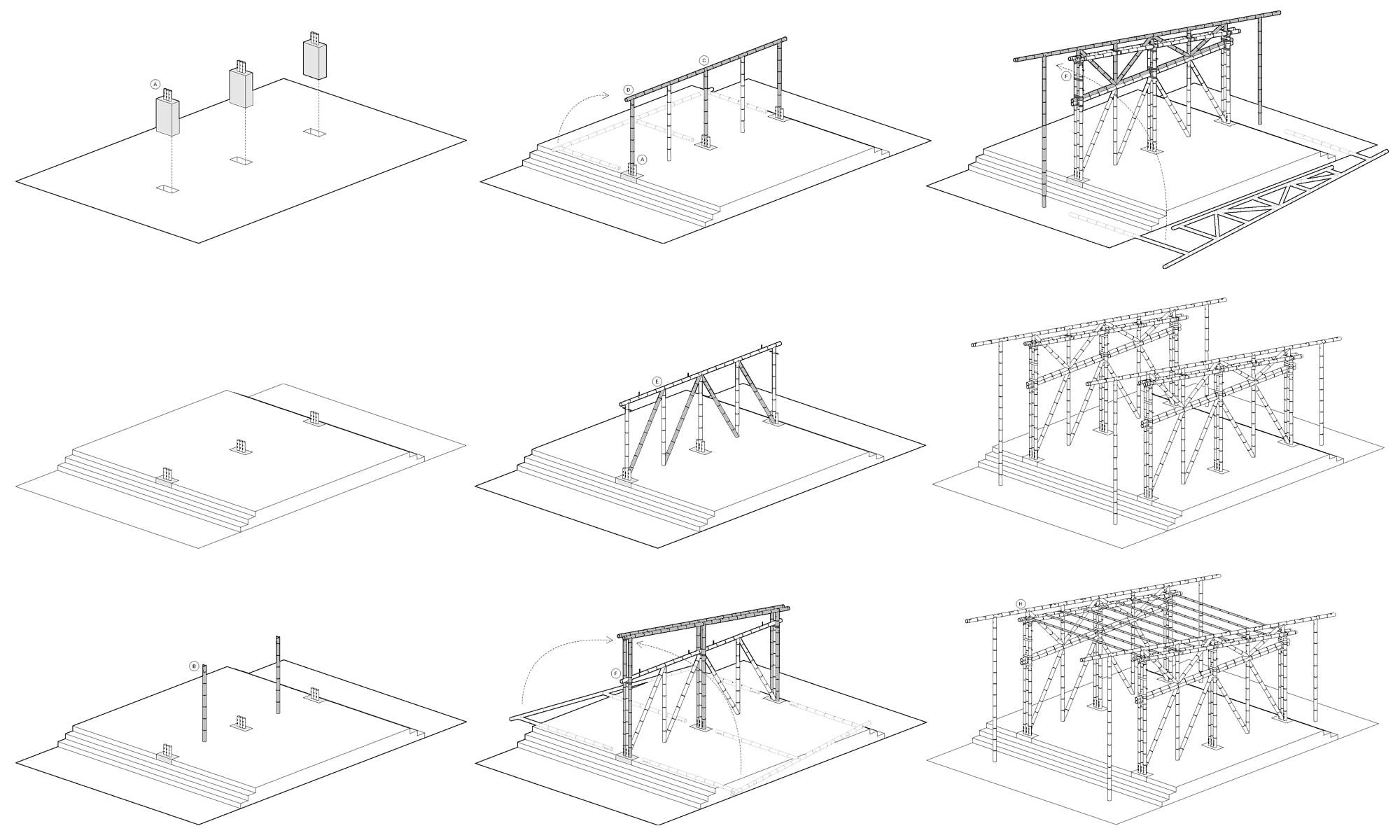
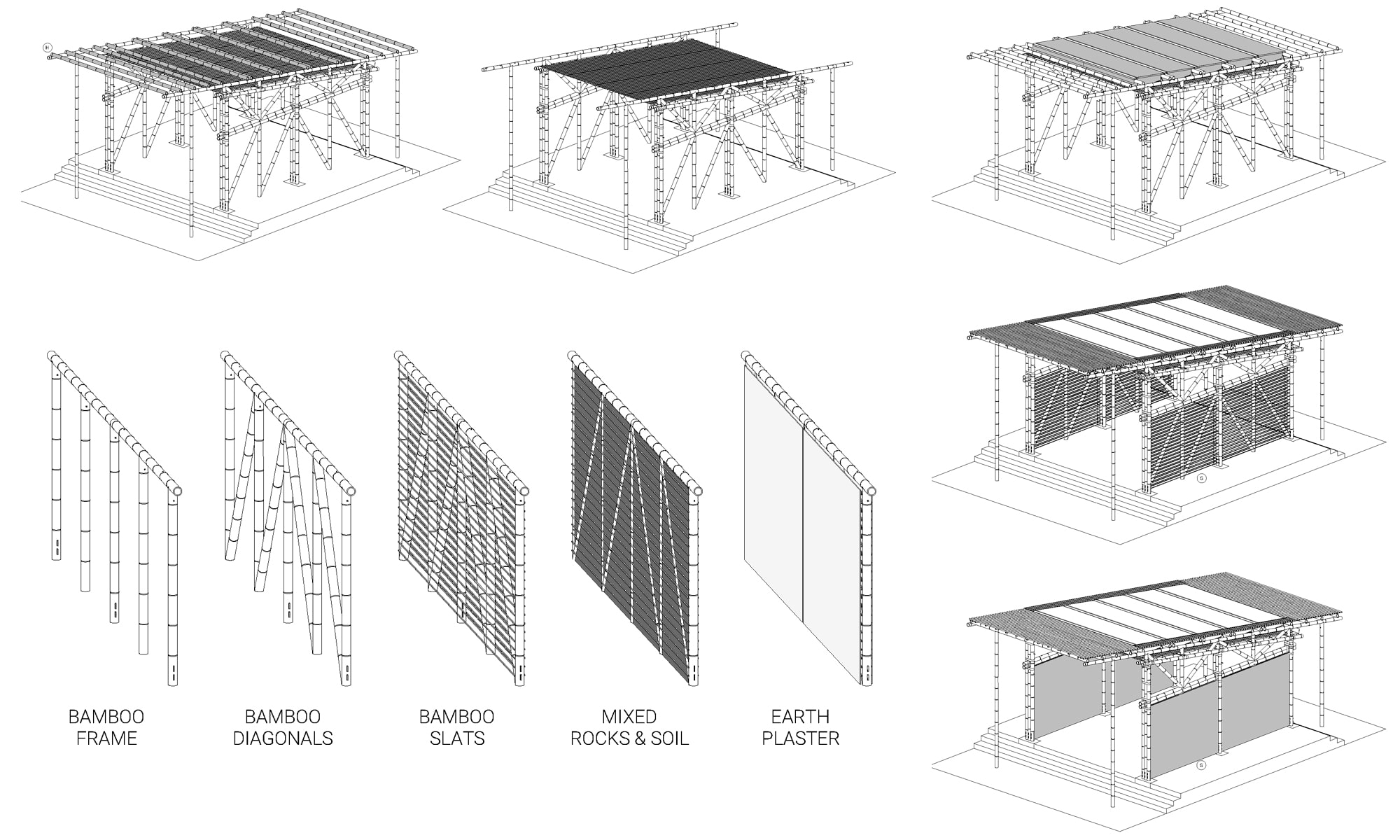
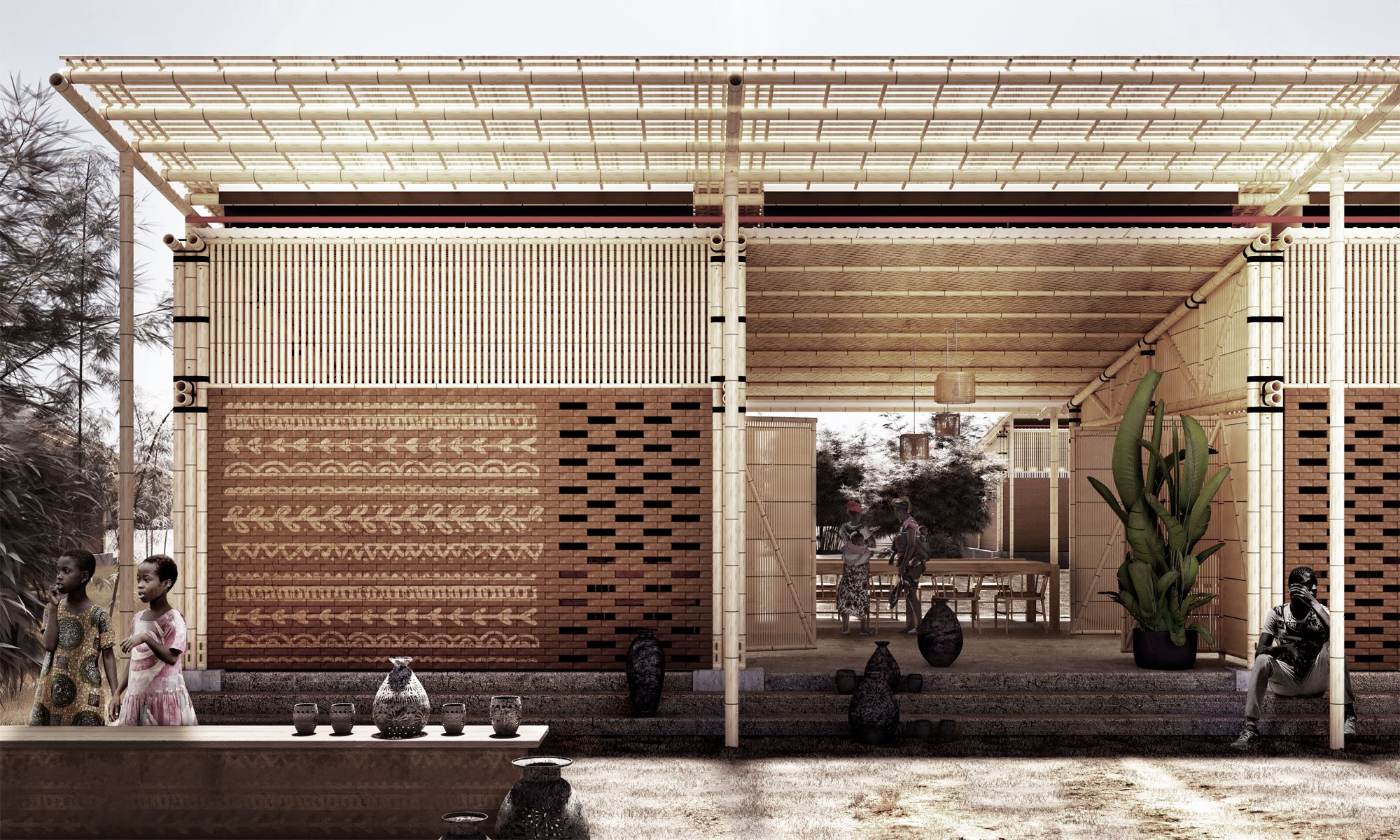
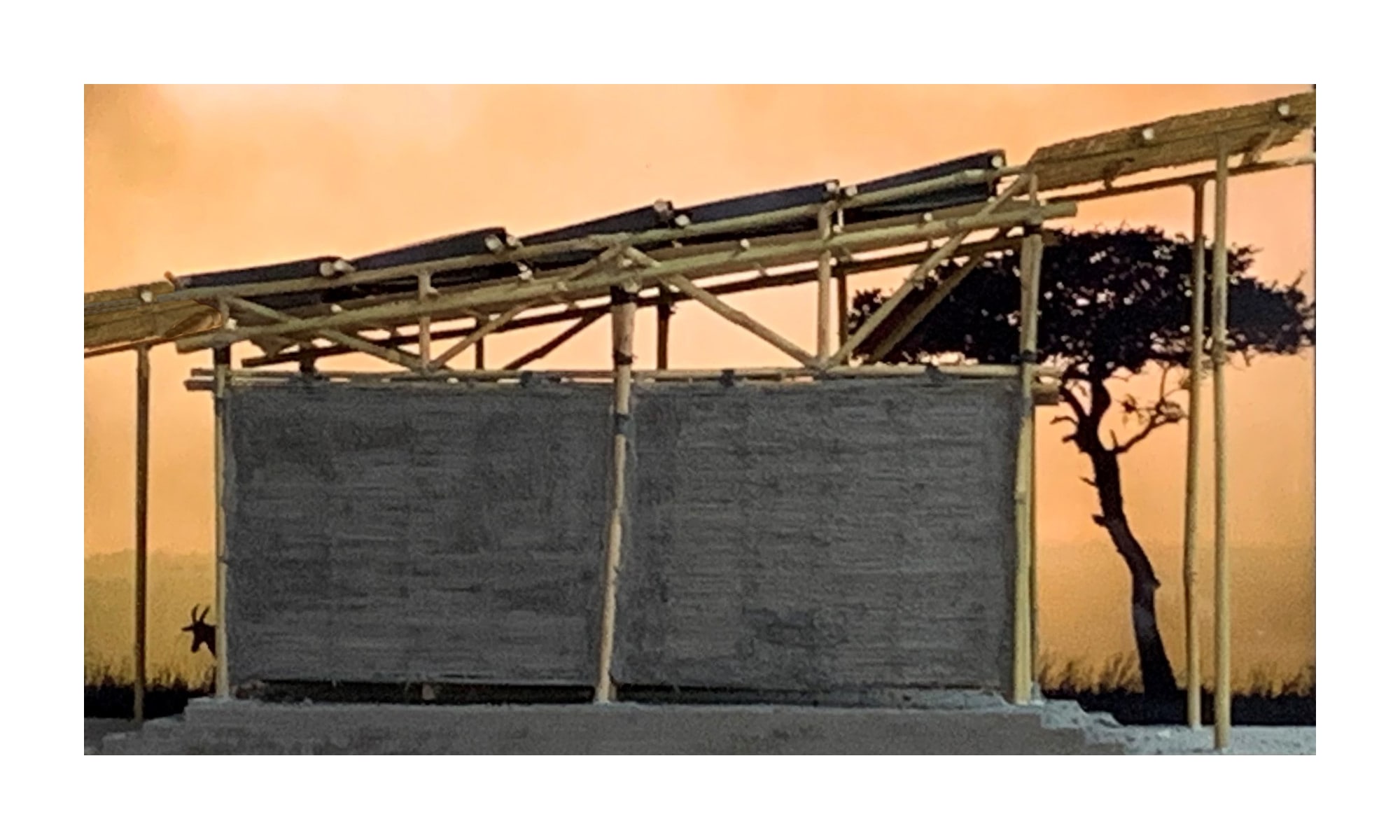
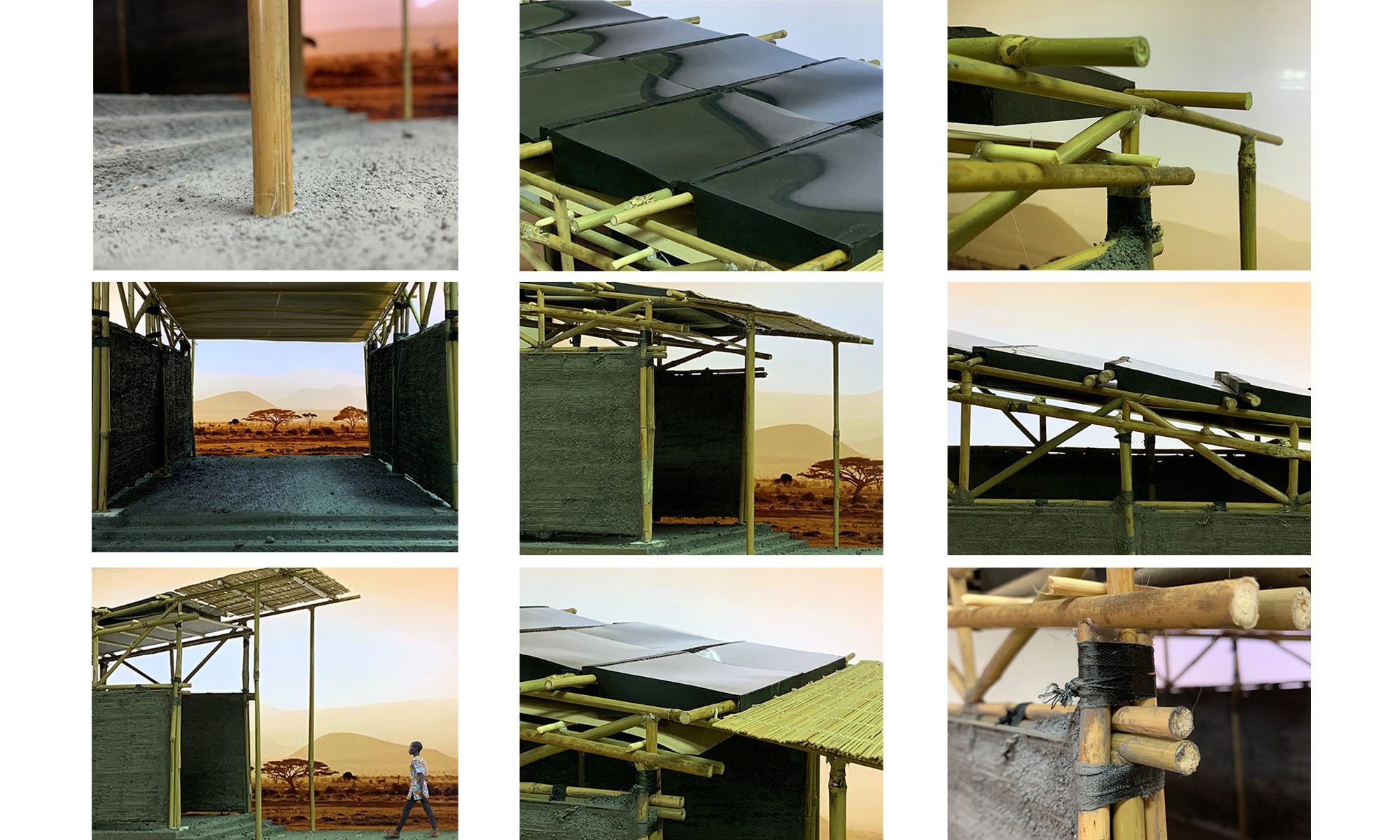
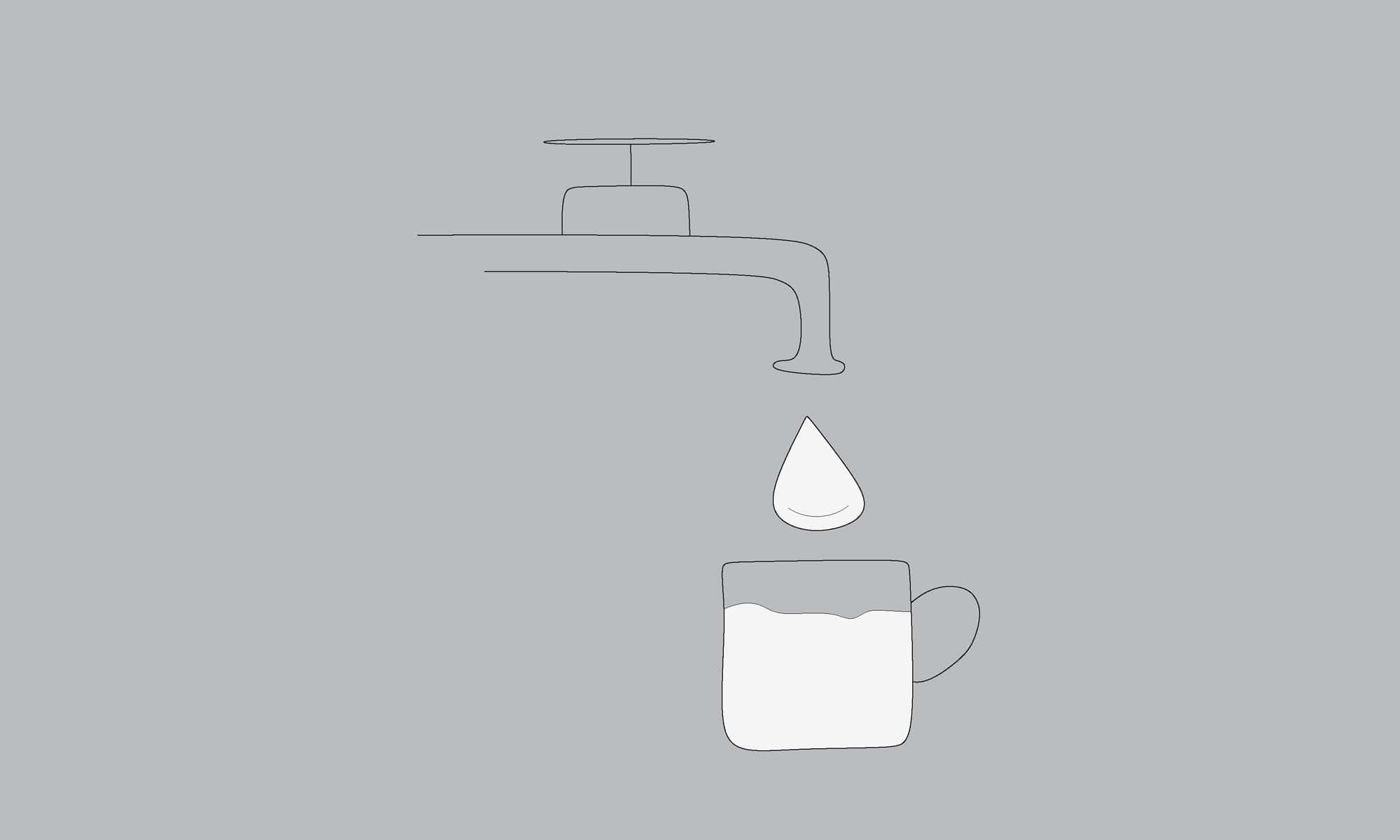
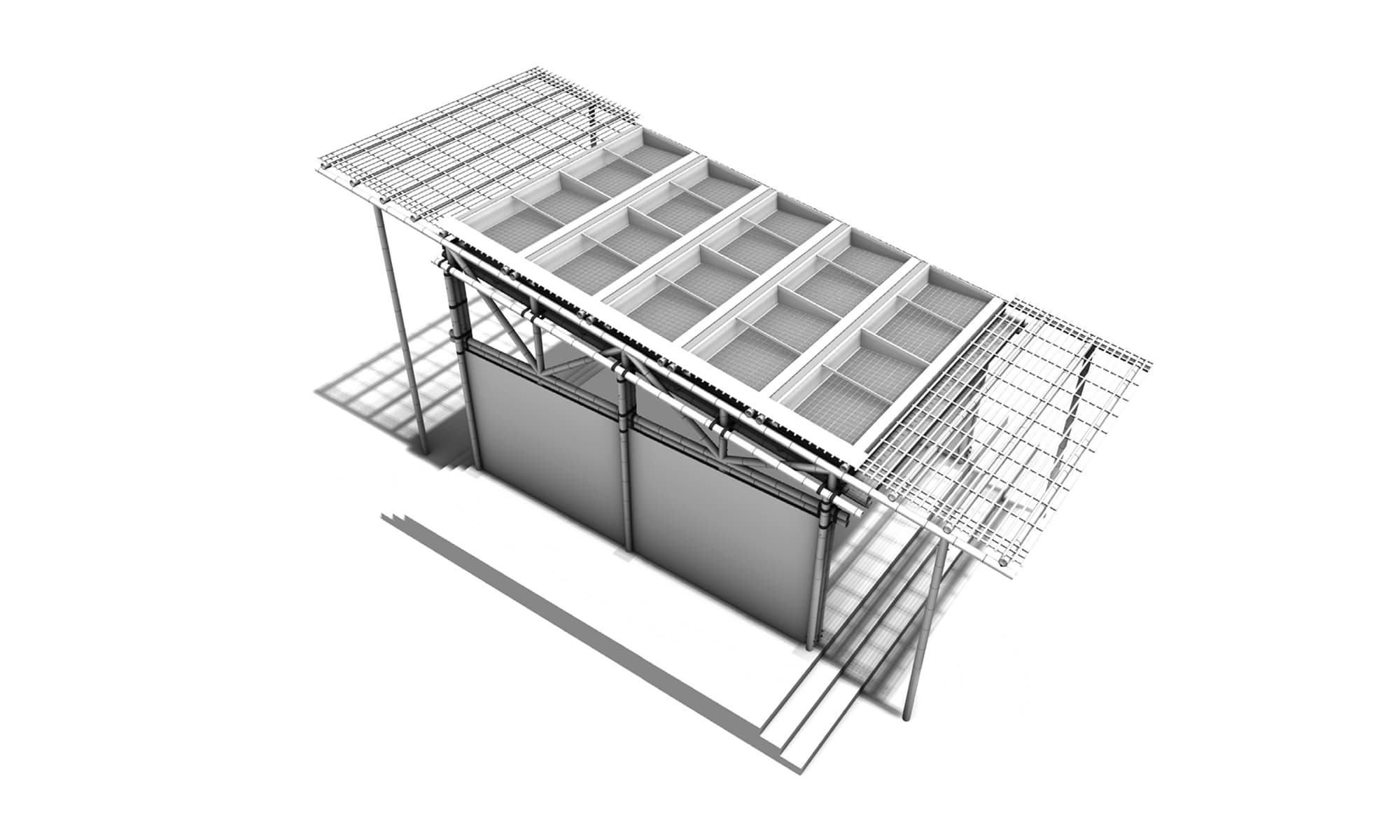
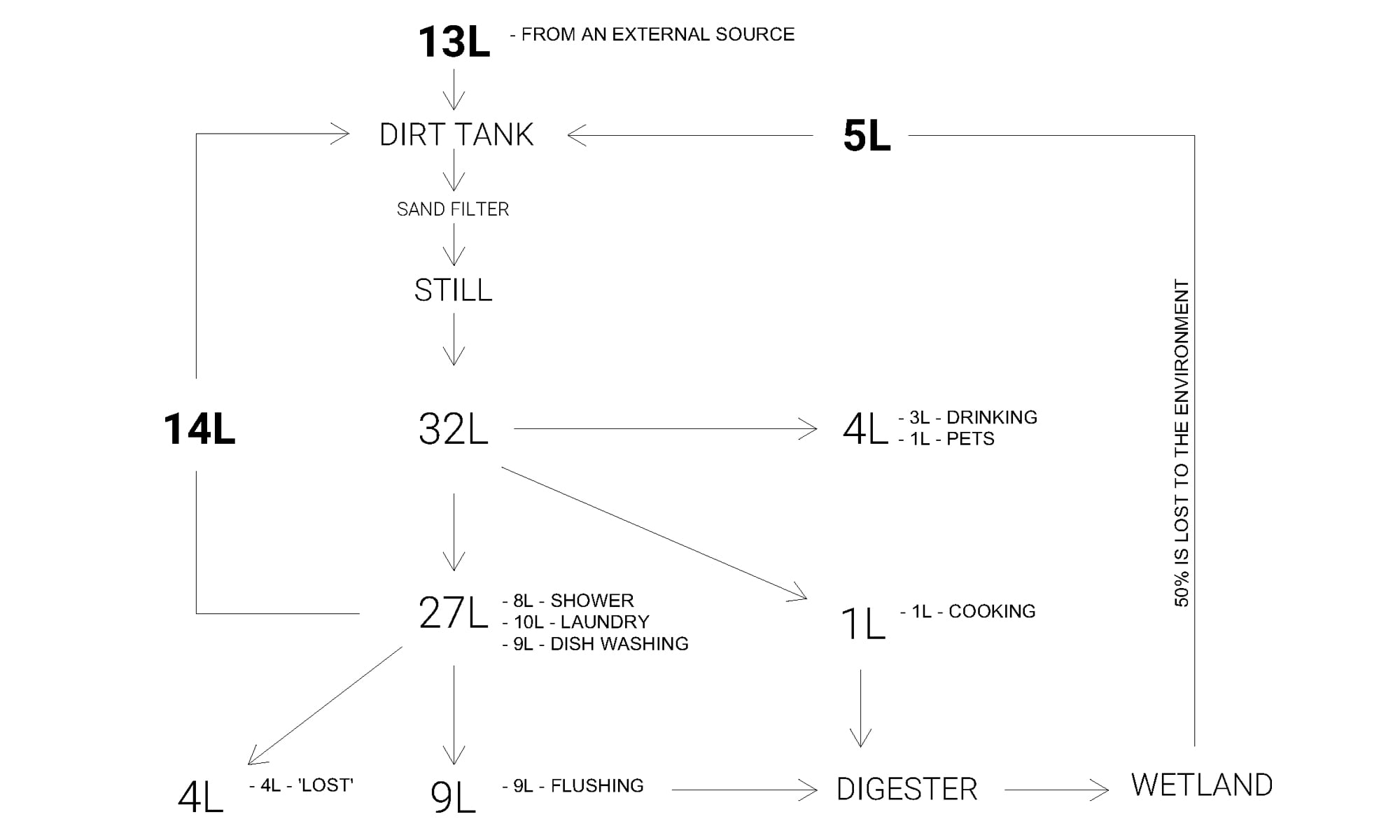
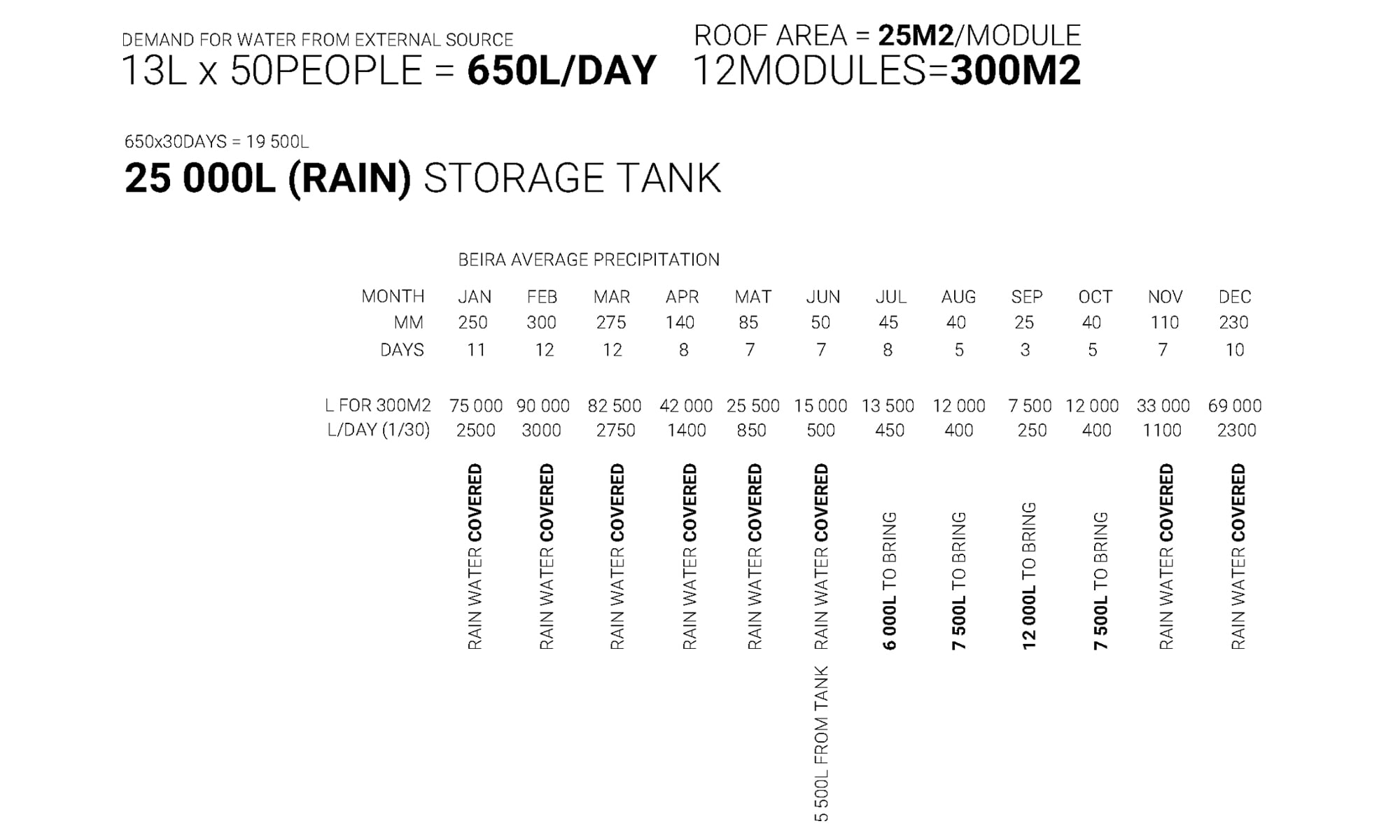
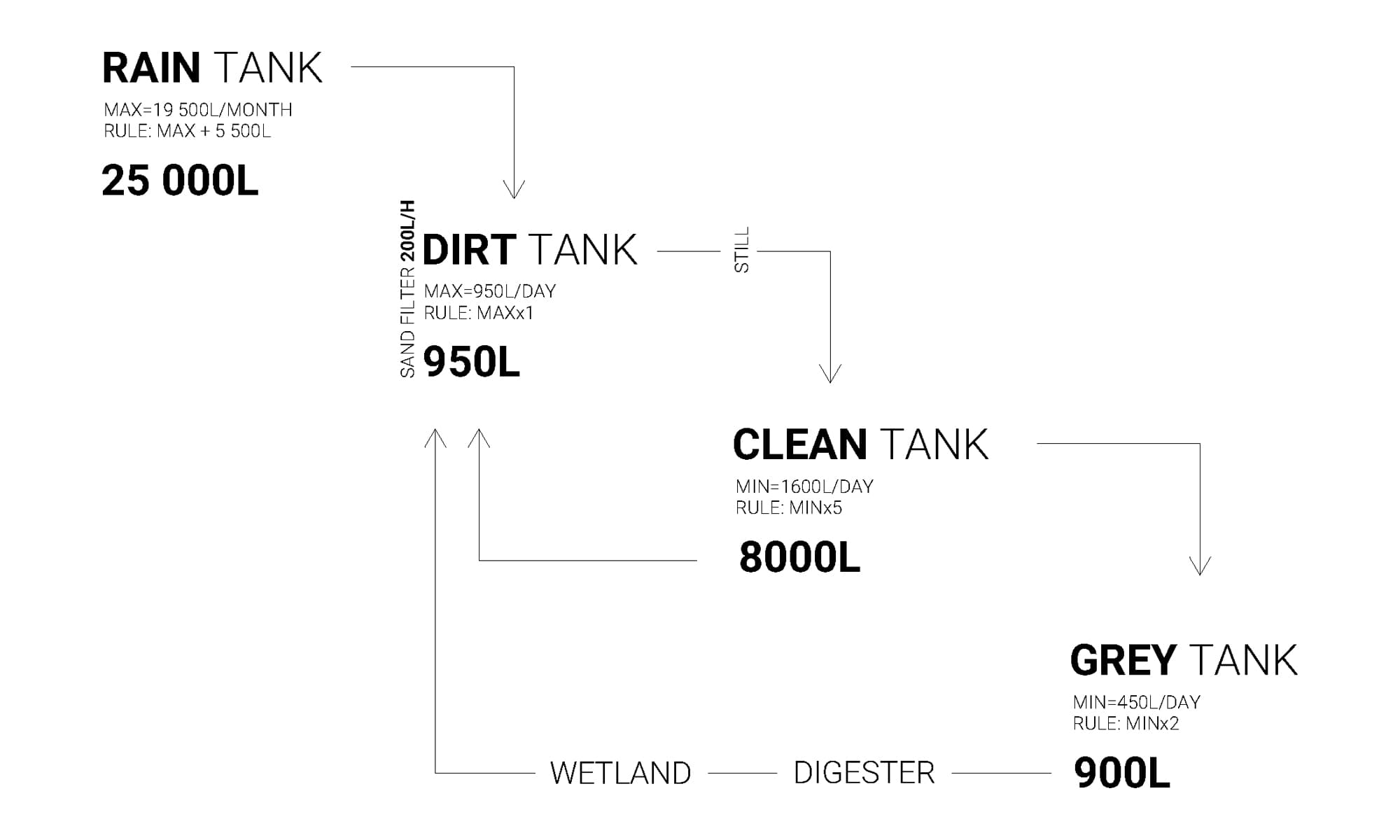
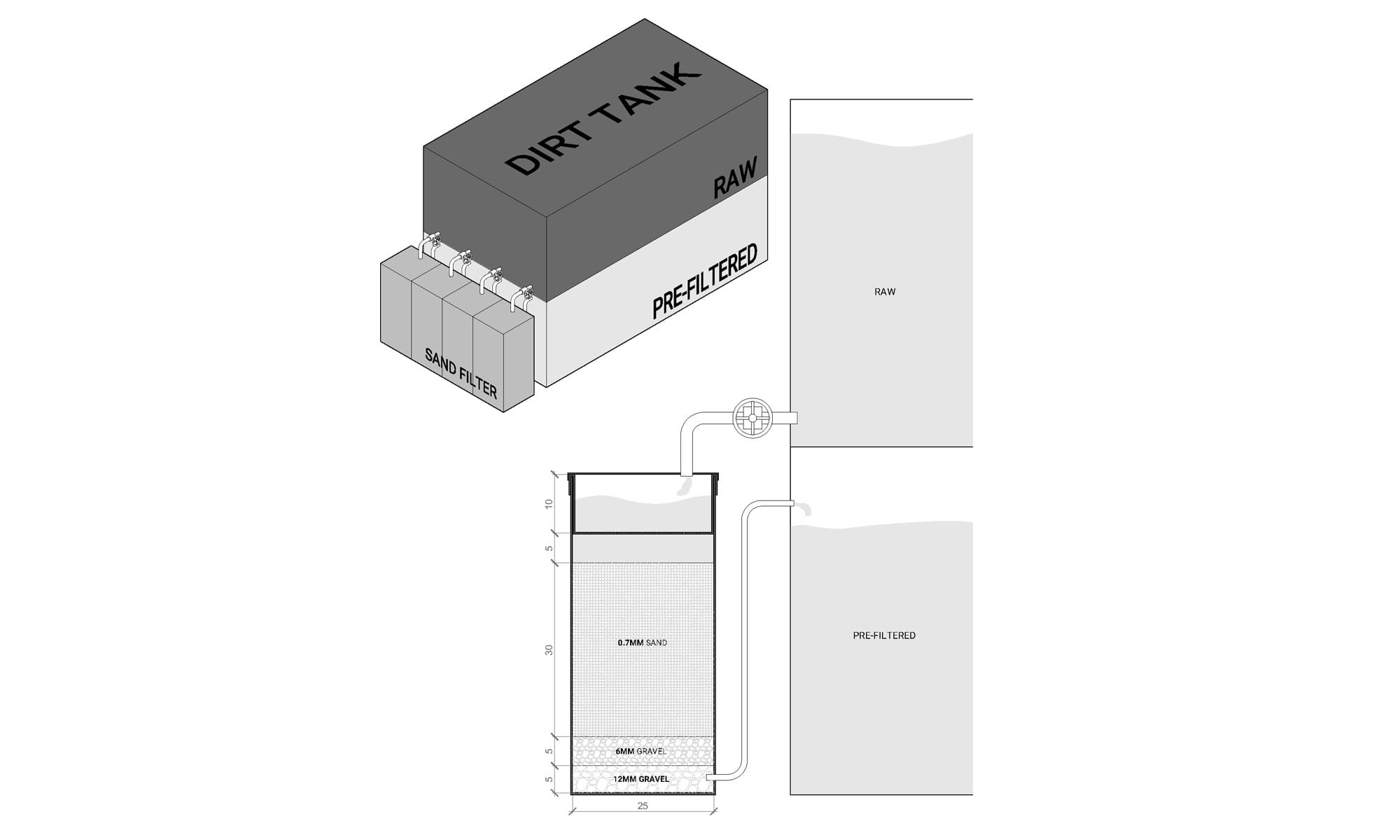
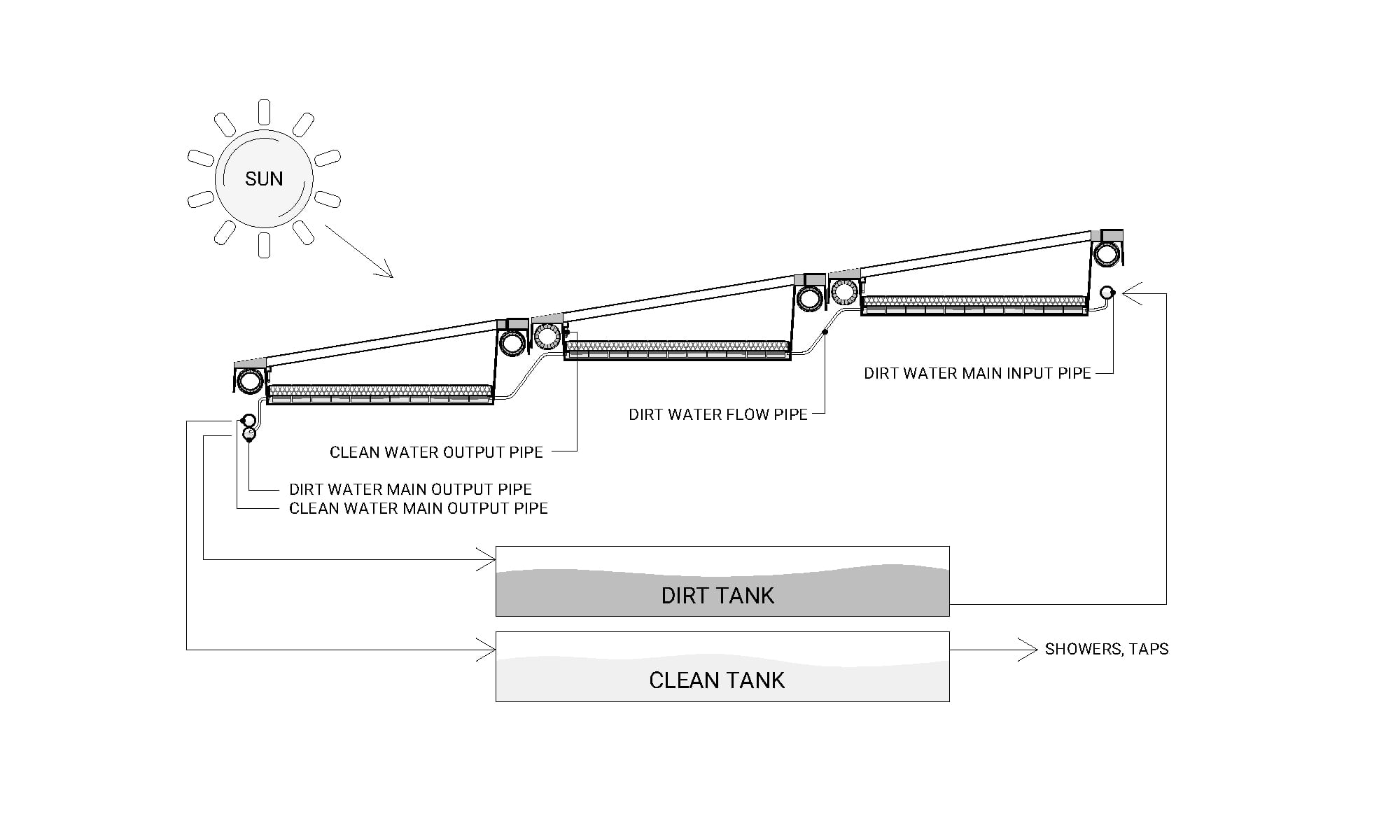
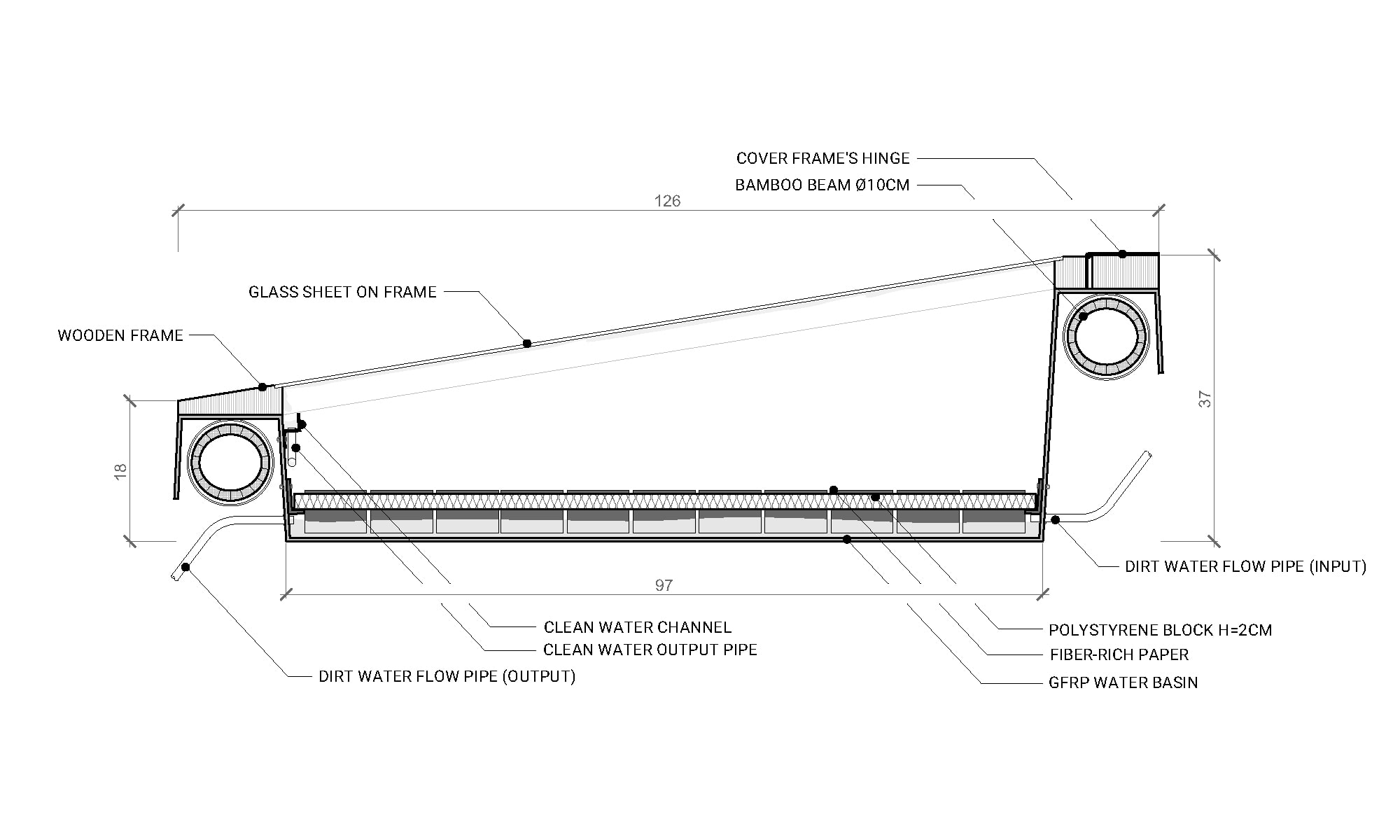
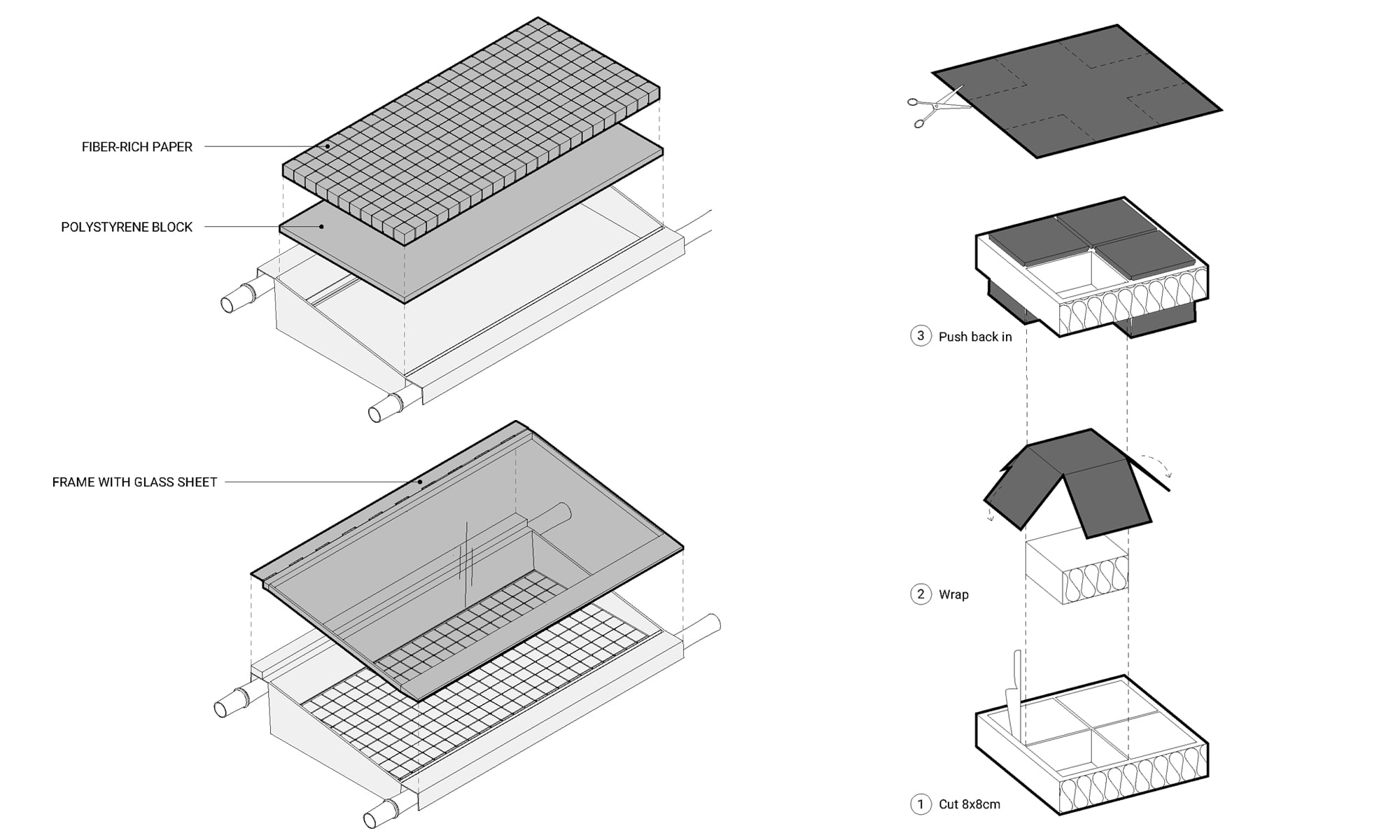
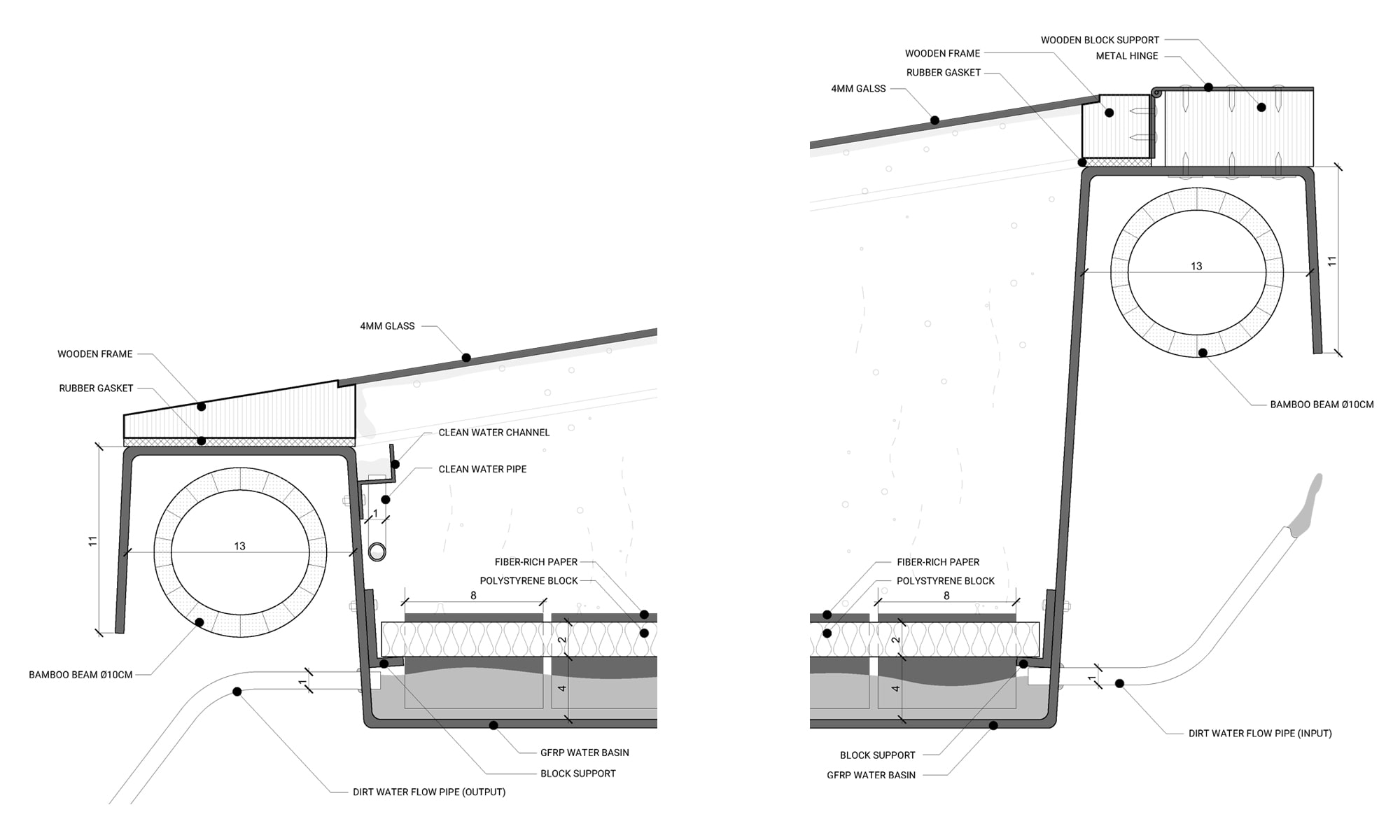
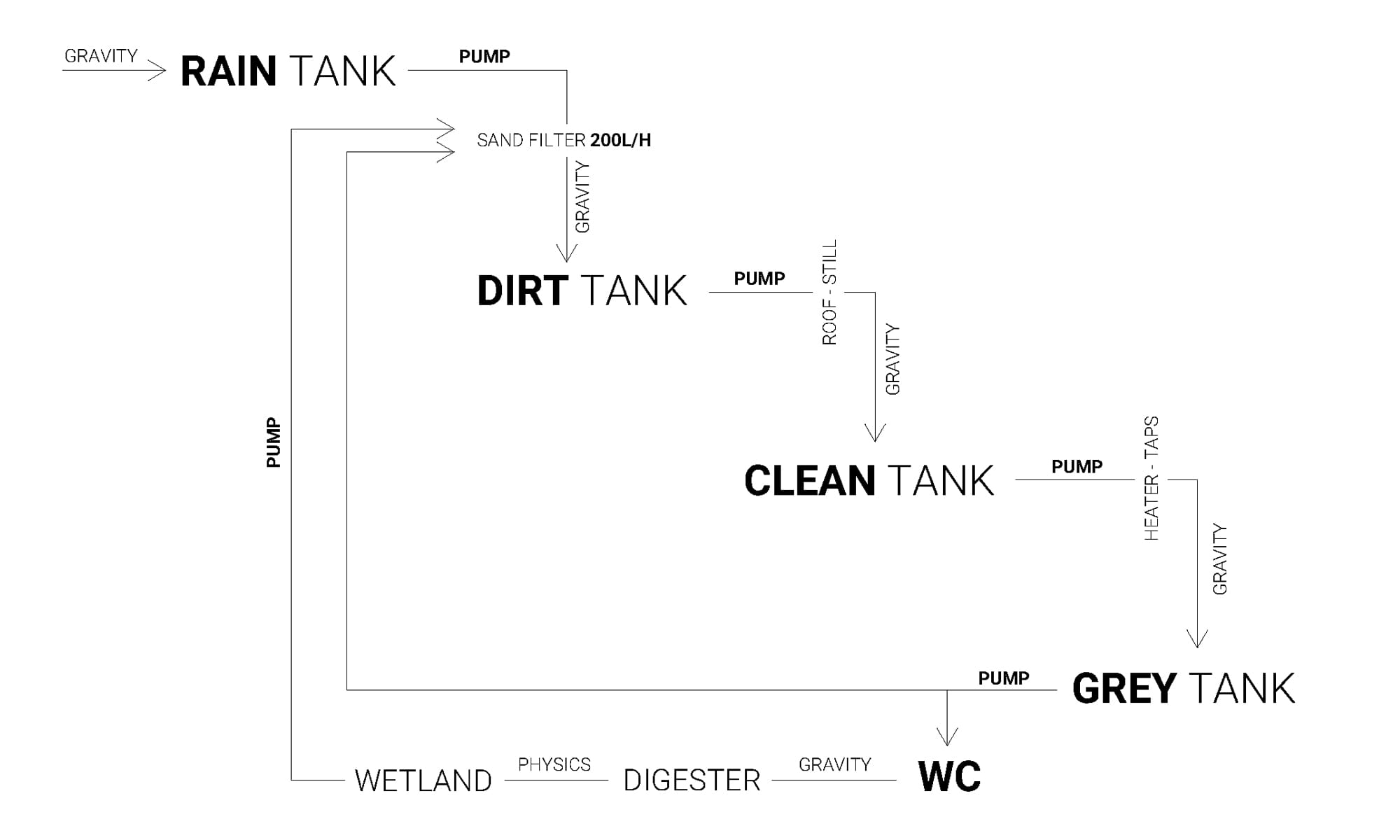
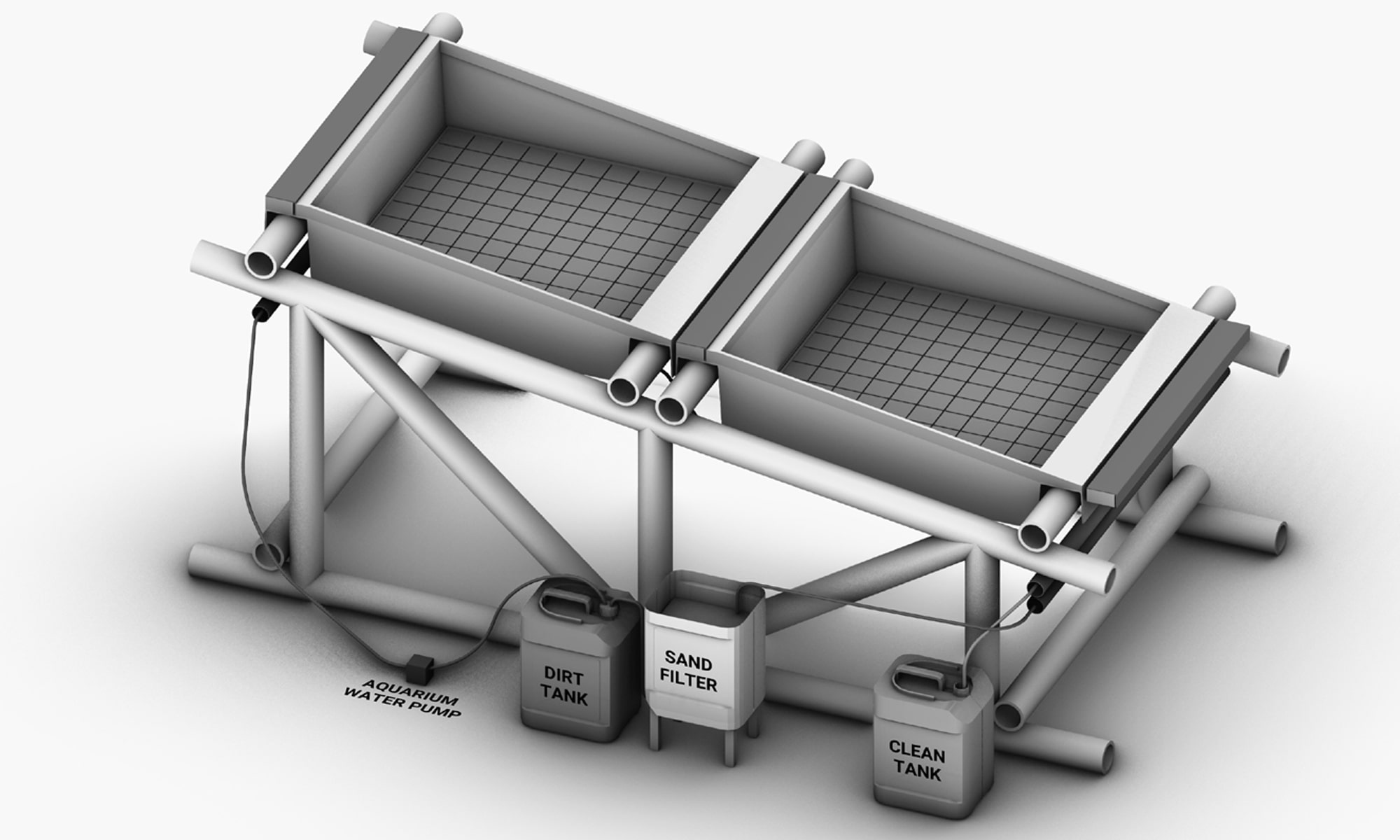
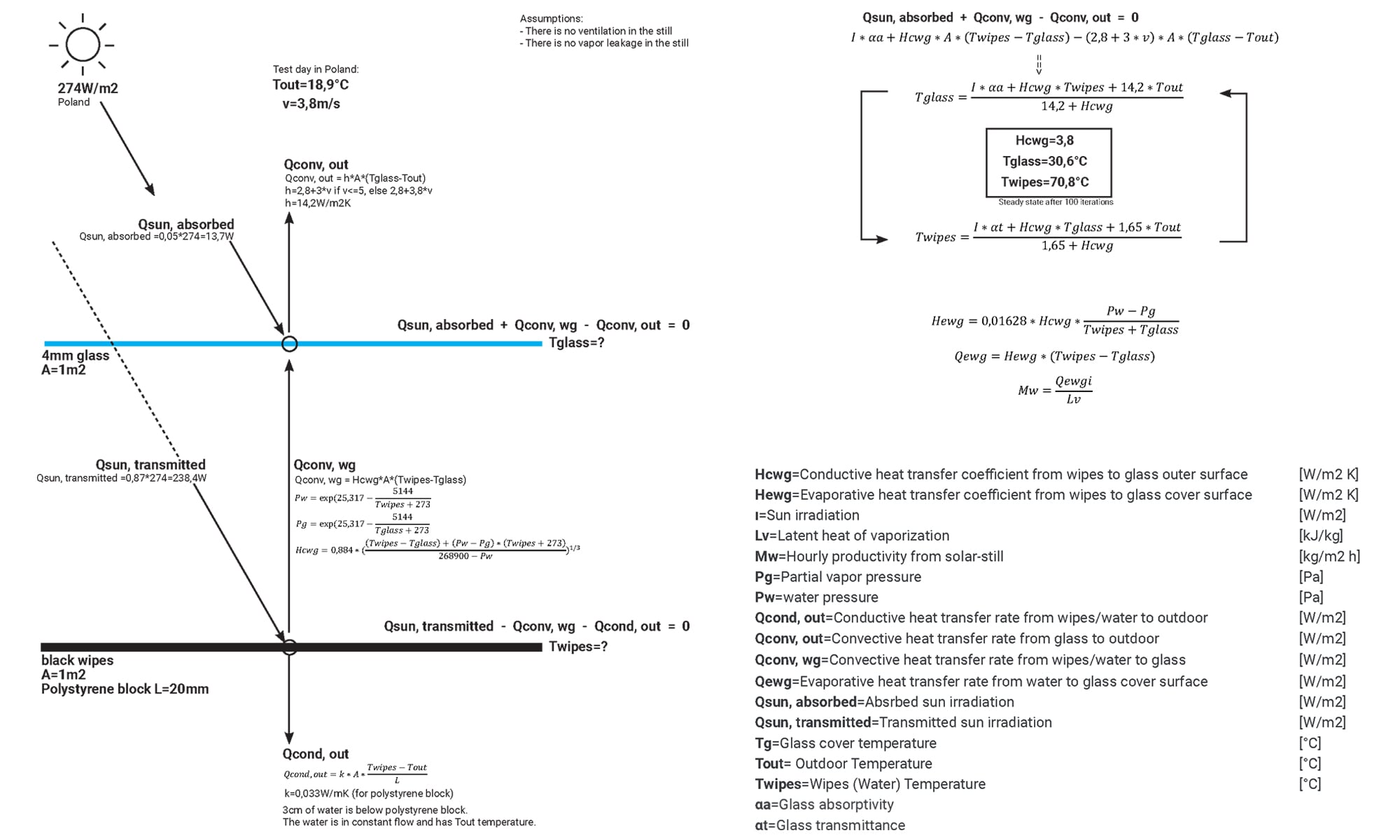
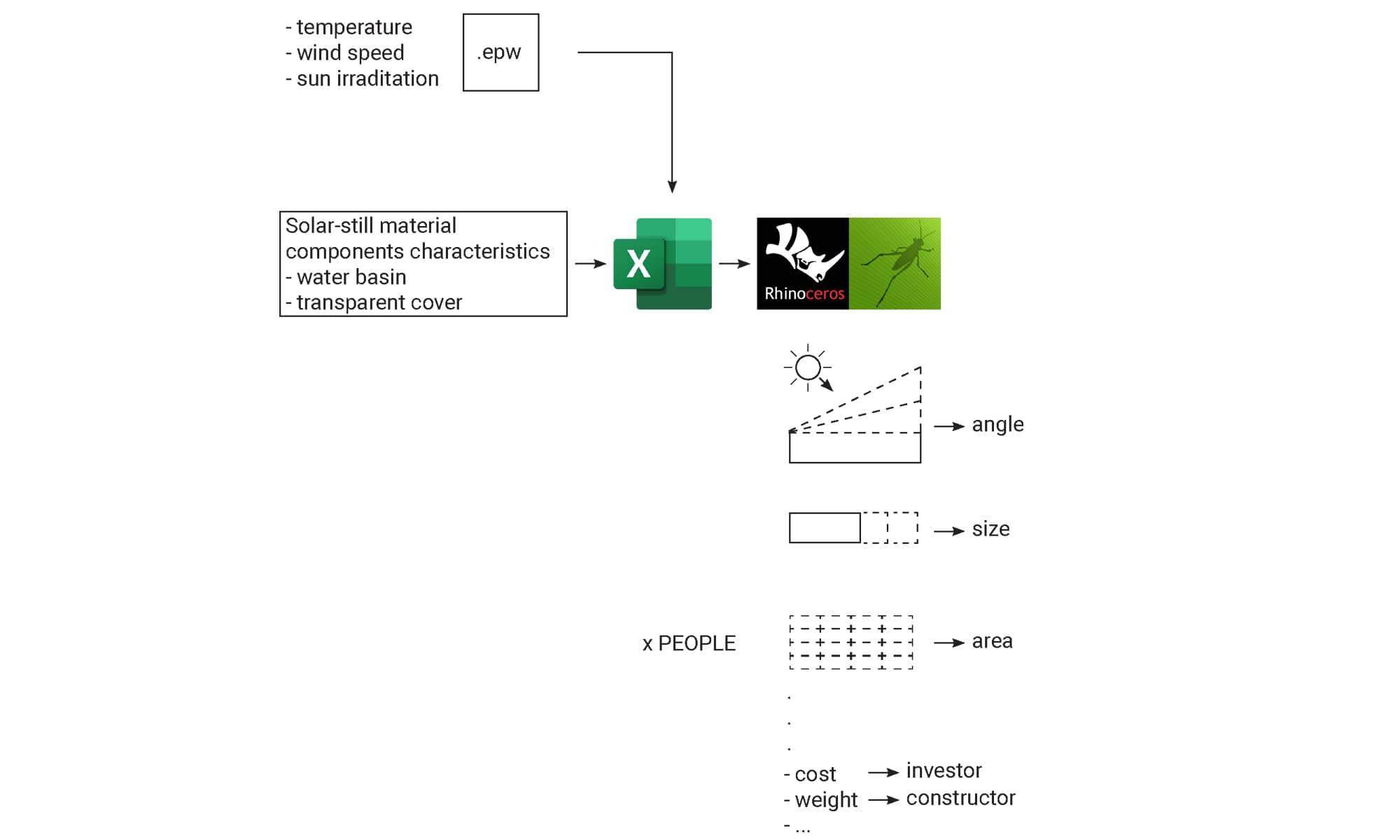
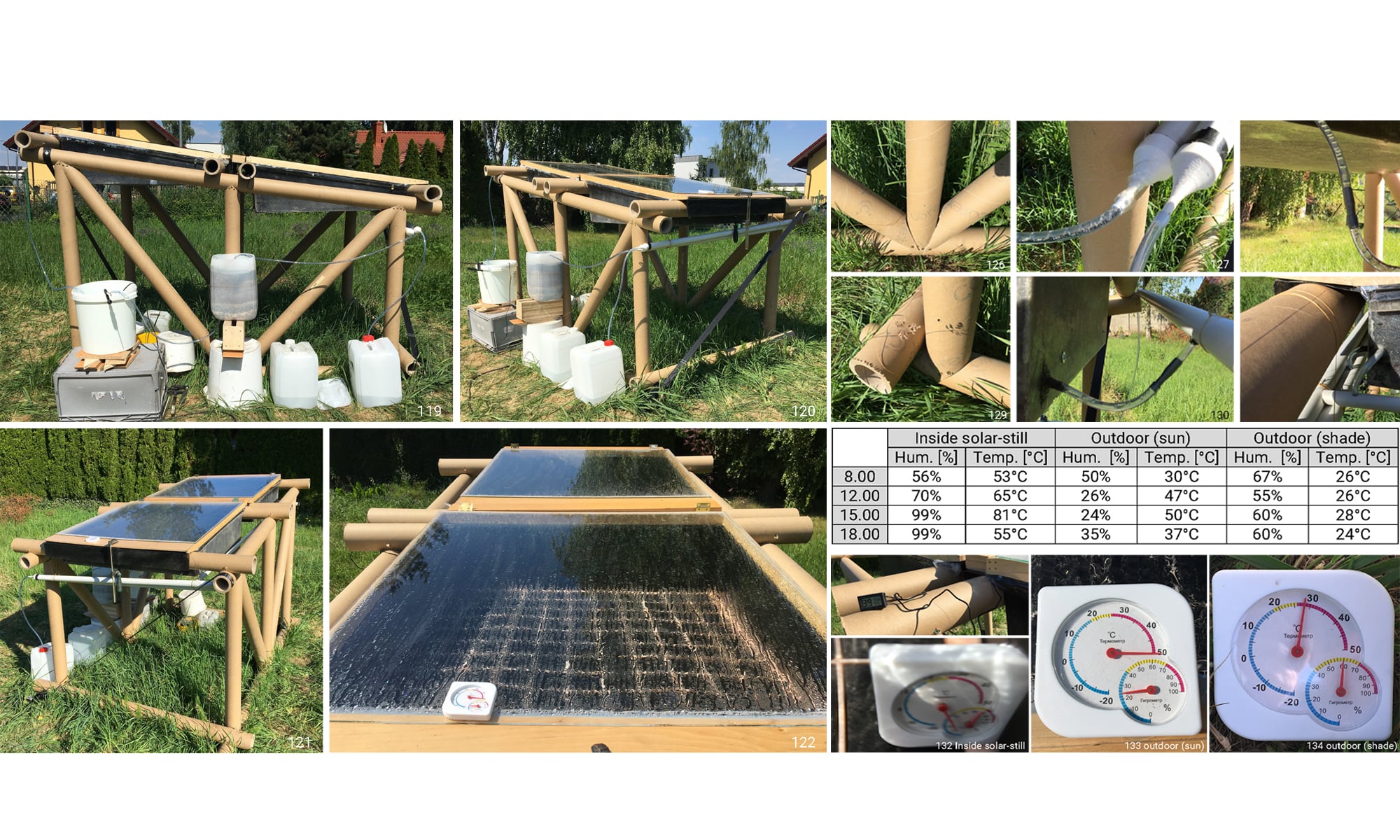

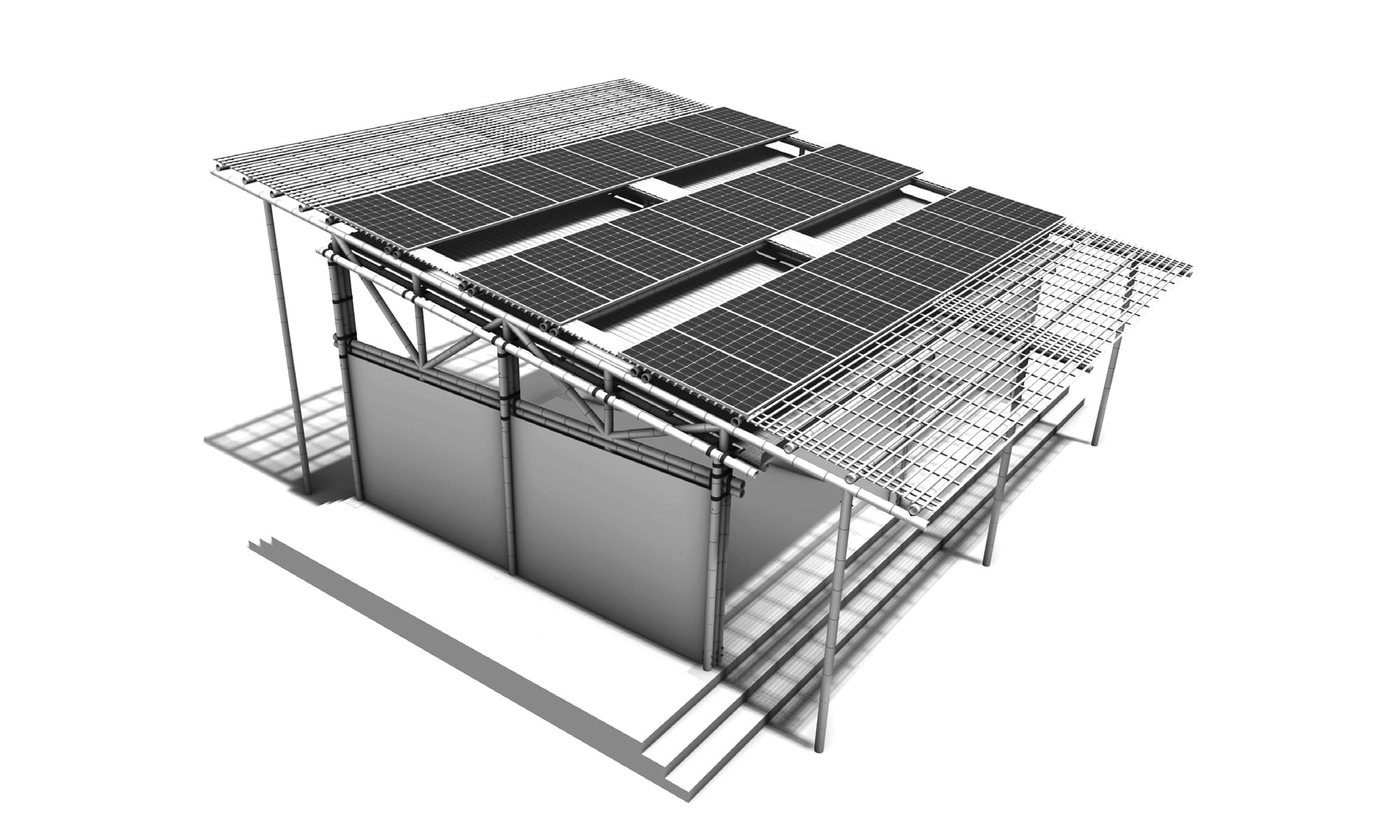
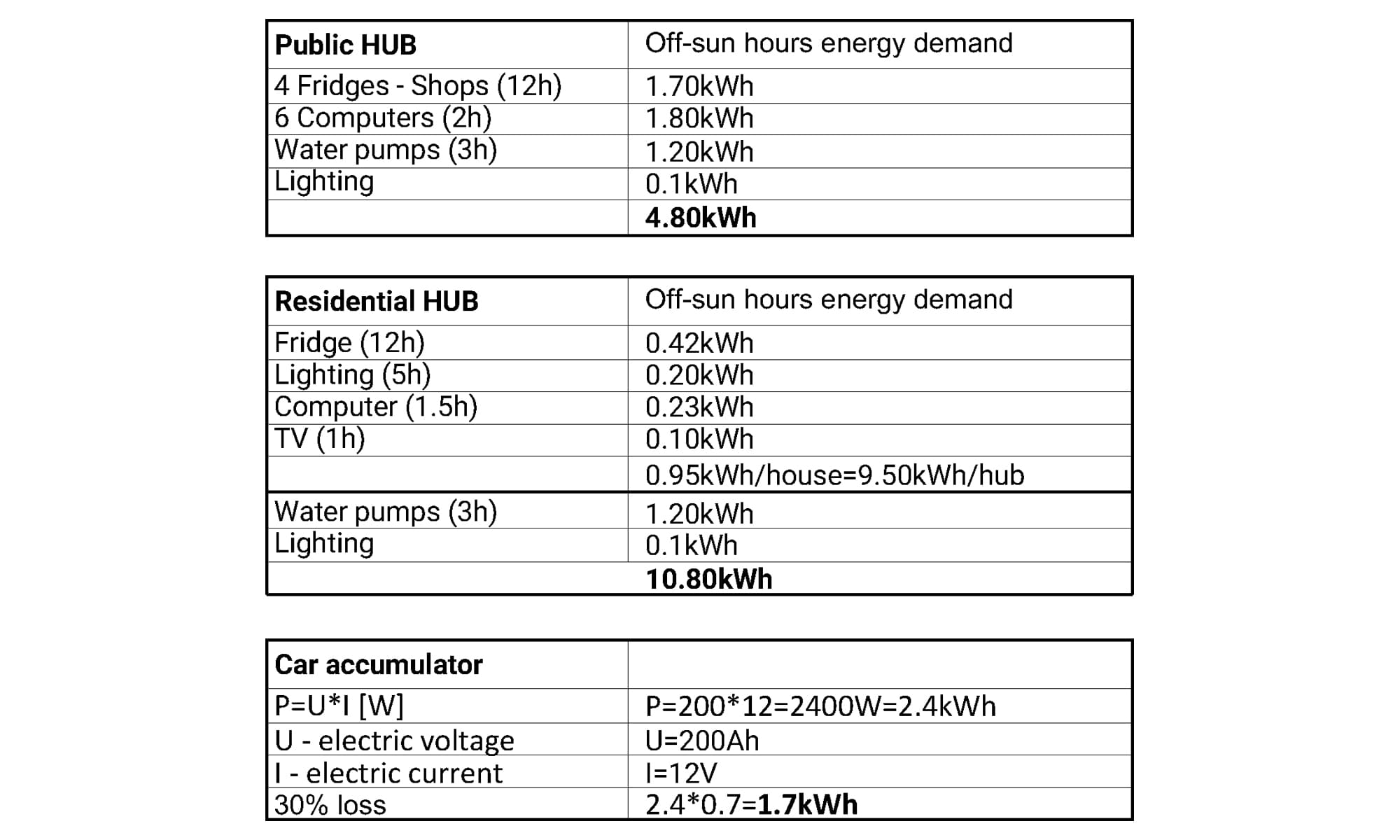

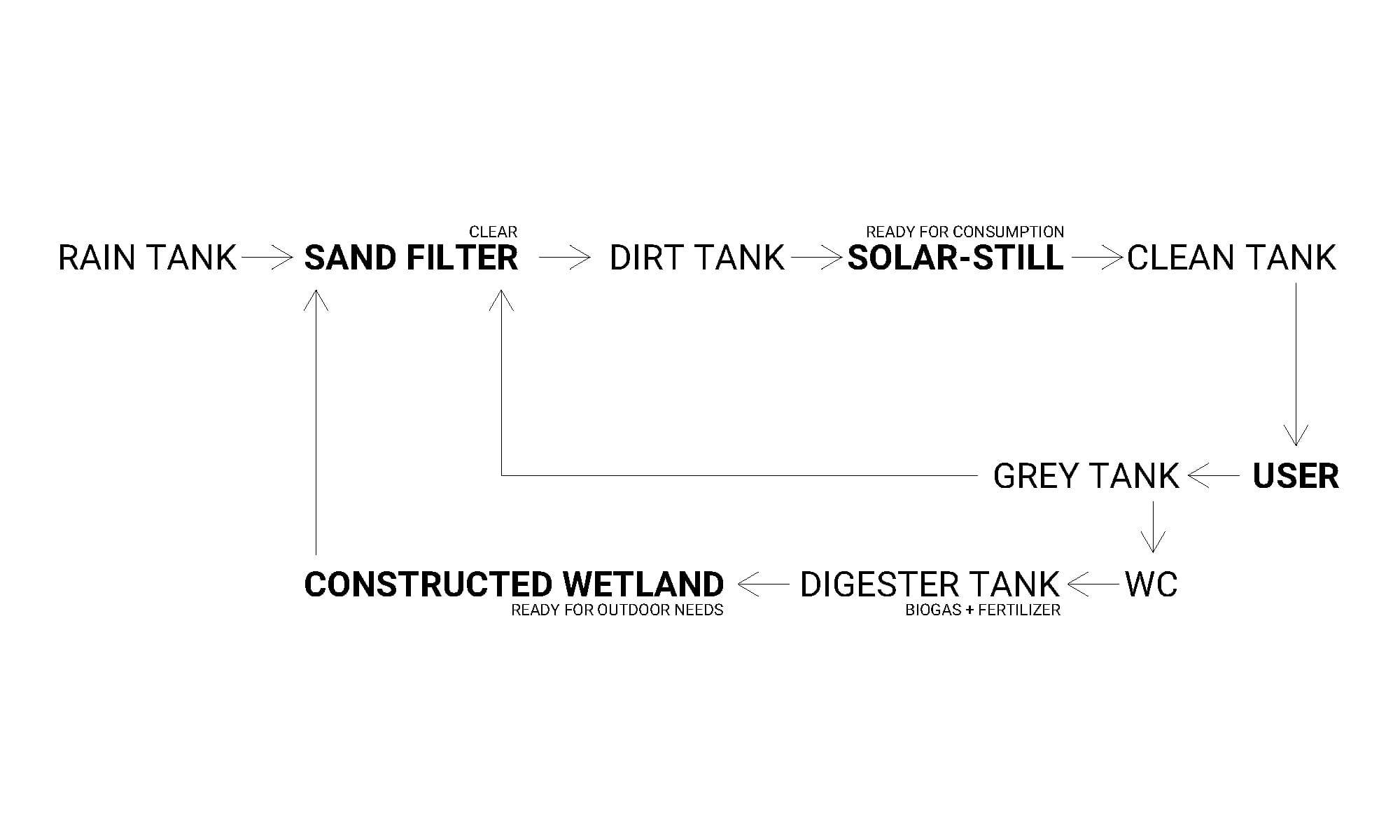
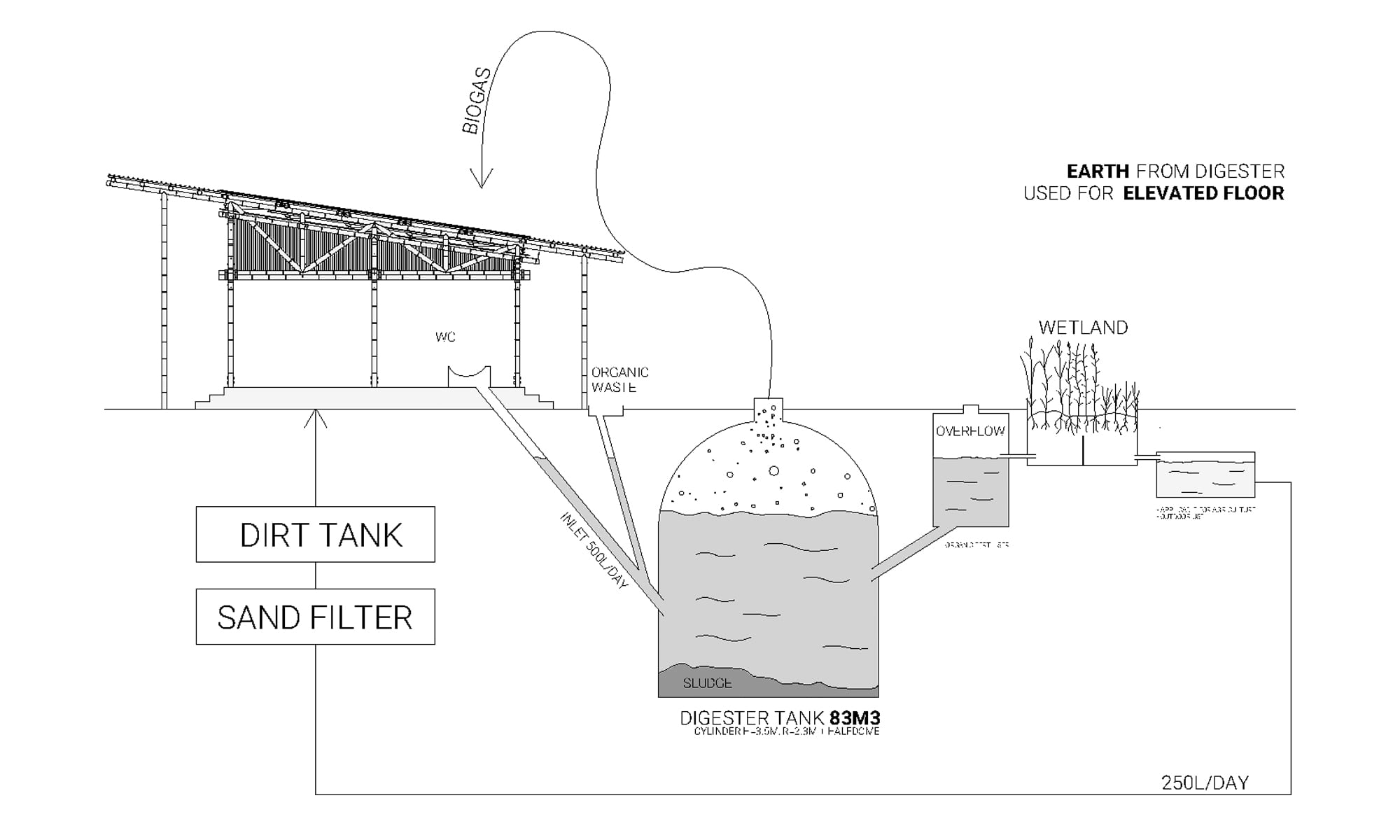
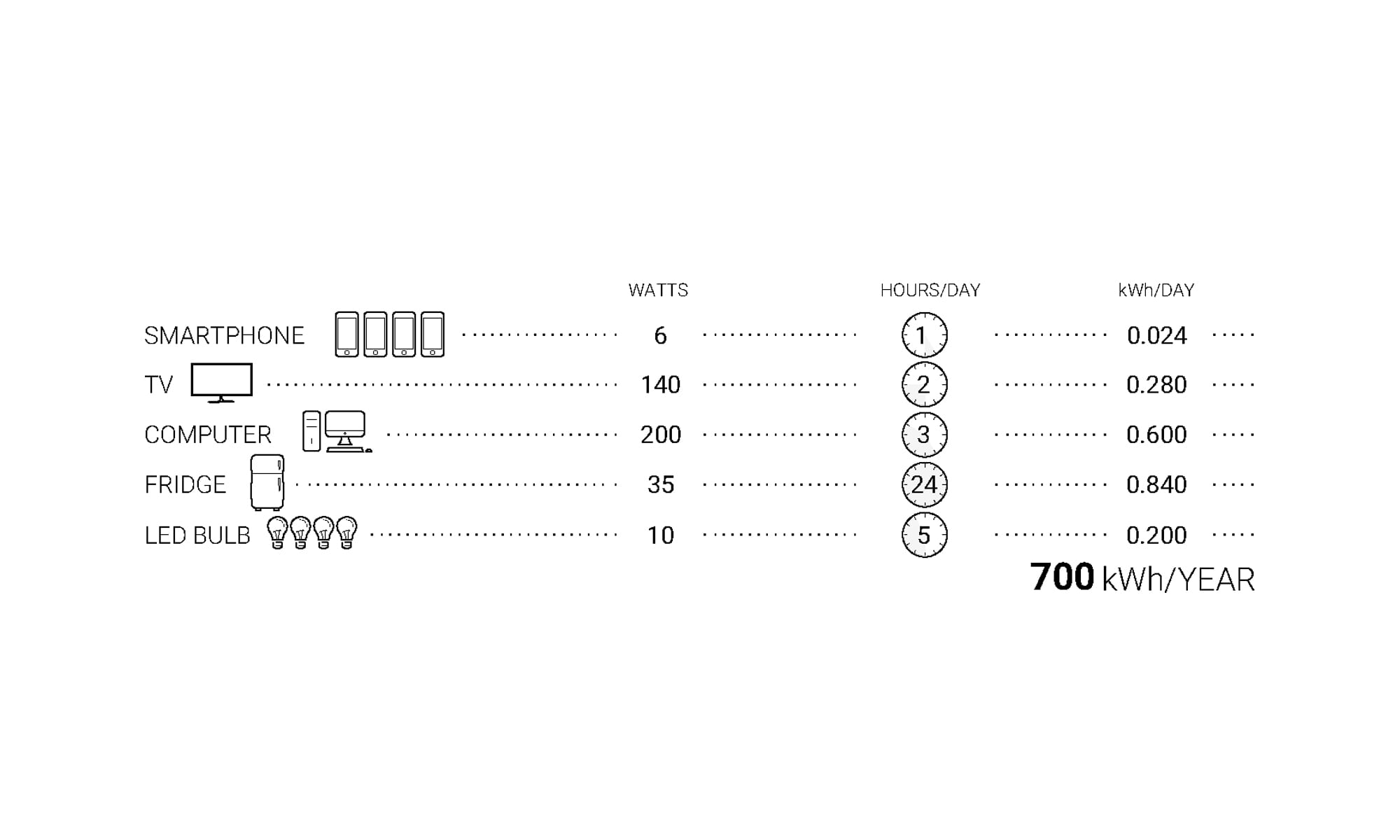
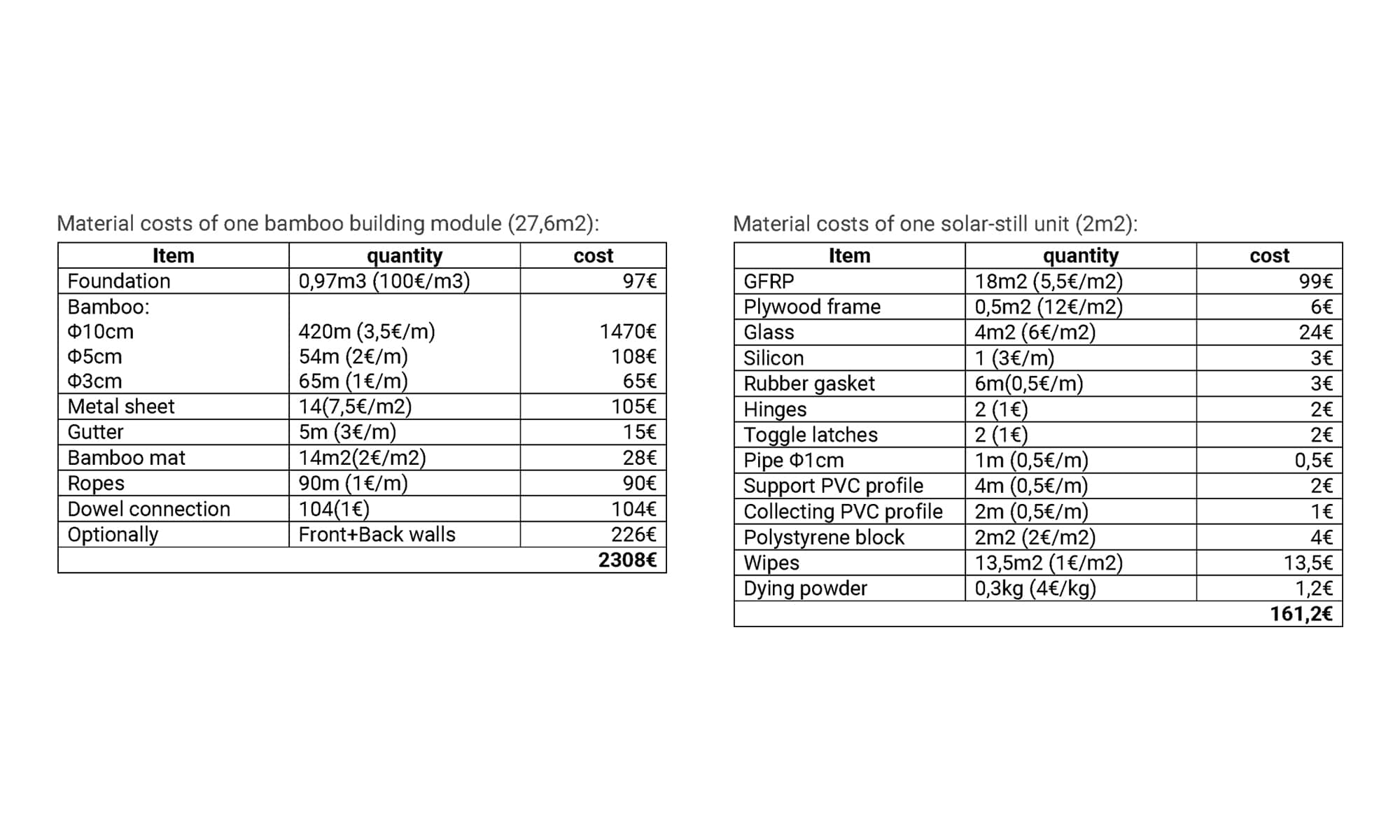
Water and Energy HUB
adres:
Beira, Mozambik
powierzchnia:
300m2
klient:
Delft University of Technology
status:
koncepcja
Filip Zieliński
Mentors:
Dr.ing. Marcel Bilow
Ir. Eric van den Ham


















































































Water and Energy HUB
typ:
2020, Usługowe, Future Vision
adres:
Beira, Mozambik
powierzchnia:
300m2
klient:
Delft University of Technology
status:
koncepcja
Filip Zieliński
Mentors:
Dr.ing. Marcel Bilow
Ir. Eric van den Ham
Praca została nagrodzona wyróżnieniem honorowym na kierunku Technologii Budowlanych Wydziału Architektury Uniwersytetu Technicznego w Delft.
Building Technology is seen as a binder between architecture and engineering. Technical innovation can become a starting point for architectural strategy and design. The project aims to use an innovative low-tech solution and introduce it as a utility product for a small rural community, providing it with better living conditions and the possibility of faster development. The project is based on extensive technical research and existing case studies. It scales the technical, solar-based solution of providing clean water in a survival situation to a building scale, a structure that can daily serve up to 50 people, improving their quality of life.
CLIMATE CHANGE
Climate change is one of the main concerns in the world nowadays. One of the most visible consequences of rising temperatures on our planet is the increase in the frequency and intensity of extreme weather events. Africa is a region of the world that is particularly suffering from natural disasters.
In March 2019, the tropical cyclone Idai hit the port city of Beira on the Mozambique coast before moving further into the region. Millions of people from Mozambique, Malawi, and Zimbabwe have been affected by the worst natural disaster that has been registered in the last two decades in southern Africa.
WATER ACCESS
WHO estimates that more than a billion people around the world have limited or no access to clean drinking water and most of these people come from rural areas where the low population density makes it difficult to build typical water networks. A lot of Mozambicans must use unsanitary water for living.
ELECTRICITY ACCESS
Around 610 million people in Africa have limited or no access to electricity and cuts from the national grid occur on a daily basis in most of the African countries.
SANITATION ACCESS
According to the World Health Organisation, diseases caused by unhealthy sanitation cause two million deaths globally each year. Effective sanitation is one of the most crucial humanitarian issues in Africa today. UNICEF reports that due to lack of sanitation facilities 40 percent of Mozambicans still need to defecate outdoor.
TESTING
To prove the concept and numerical simulations 1:1 Mock-up was build and tested. Results are promising and will be the starting point for the next stage of the project

